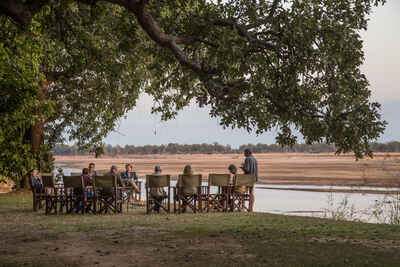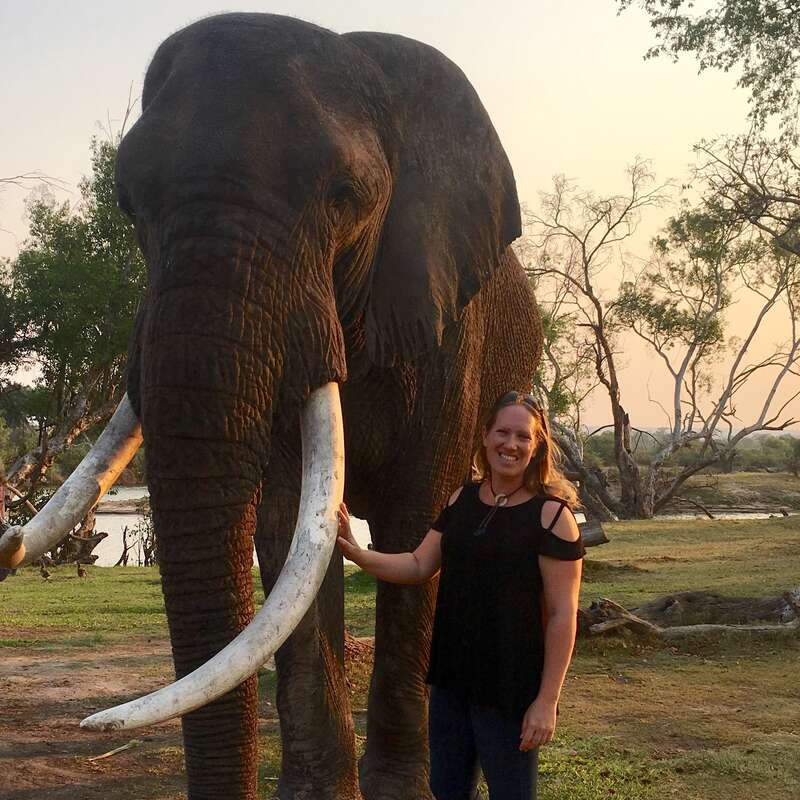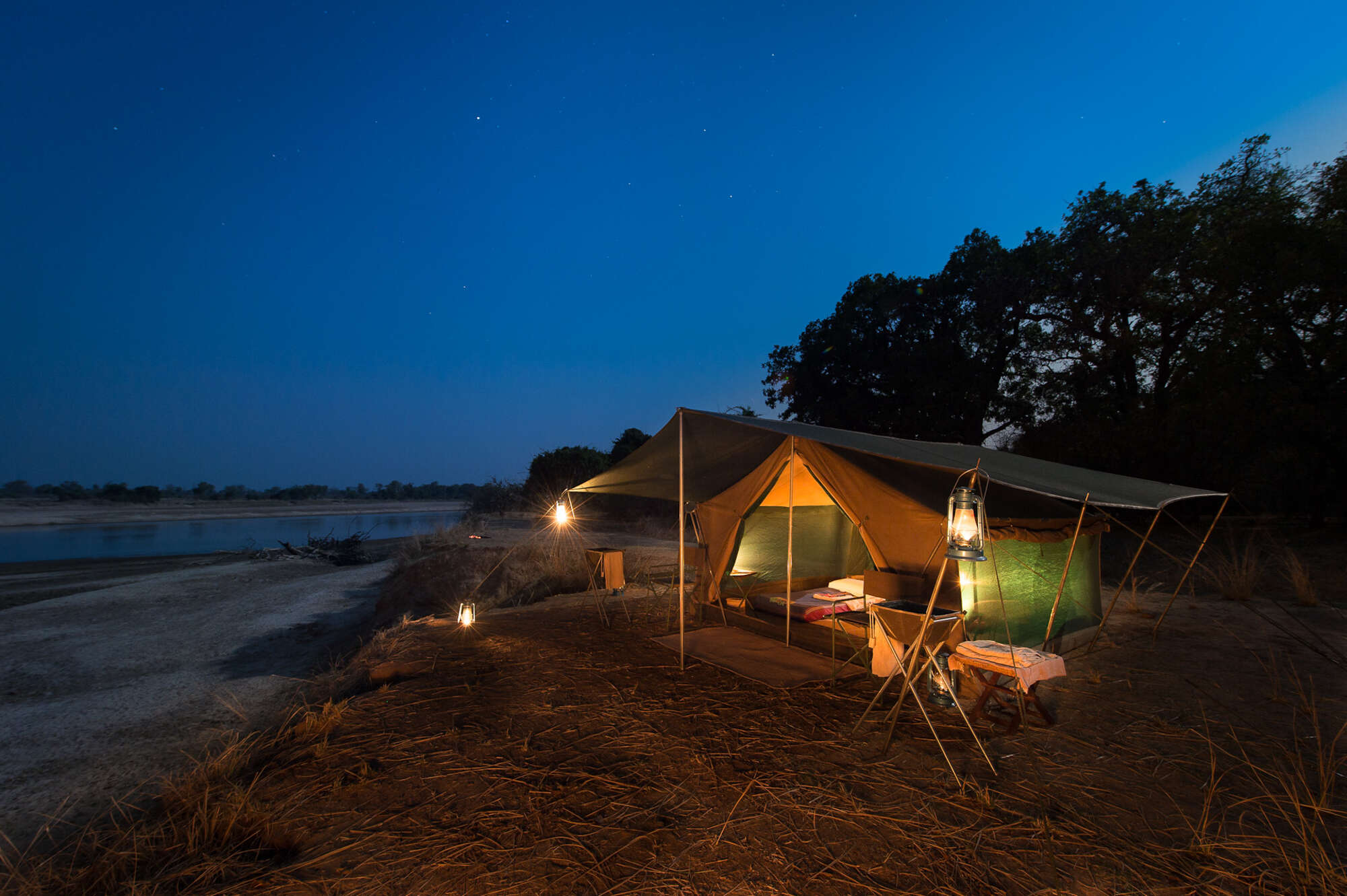About Tafika
Unique, owner-run and with genuinely warm hospitality, Tafika combines some of Zambia's best guiding with great food and strong community connections.
Tafika is rustic luxury at its best: rooms constructed with golden reeds, an elevated riverside setting, excellent cuisine and top-notch guiding.
Spread out on the banks of the Luangwa River, it's a captivating camp. Most guests are return visitors and it's easy to see why they come back time and time again. Owners John and Carol Coppinger have lived here for over 20 years, bringing up their children here, and welcoming guests to their corner of the Luangwa. Their daughter Jennifer, herself a qualified guide, and her husband Nick now skillfully manage the lodge alongside them, bringing new ideas to this experienced team, yet retaining same calm efficiency and authenticity that have long given Tafika its down-to-earth, family feel.
The camp itself is lovely. Only 6 chalets, spread across lush lawns, are ingenious. Crafted from reeds and thatch, they're rebuilt every year after the rains, and filled with home comforts amid the rustic ambience – huge beds with colourful linen from local business Tribal Textiles, USB charging ports, flushing toilets and hot showers under the stars.
From delicious meals, shared with the super team, to a productive wildlife hide at the centre of camp; fresh coffee round the campfire at dawn to the excellent safari activities – it’s a treat to stay here.
Guiding is second to none: by 4x4 or on foot. And consider walking to Tafika’s sister camps along the Chikoko Trails to get a real sense of Luangwa’s wilderness, with people who know the wildlife and landscape here like the back of their hands.
Our view
Although Tafika's reed-and-thatch rooms give it a consciously rustic appearance, don't be deceived into thinking that this is a basic bushcamp. It is one of the very best camps in Africa, with highly experienced guiding, excellent food and consistently high standards throughout. It is also one of the longest-standing, and last-remaining owner-run camps in Zambia. John and Carol and their children have called Tafika 'home' for more than 20 years, and they remain dedicated to it, now running it in tandem with their daughter Jennifer and her husband, Nick. You won't find another camp that retains such a genuinely 'bush' feel, combined with food, furnishing and hospitality of such a high quality.
Accommodation
6 Chalets
Children
OK for ages 12+
Open
1 May to 15 November
Activities

4WD Safari

Birdwatching

Cultural excursion

Guided walking safari

Night drive
Traveller reviews of Tafika
344 real, un-edited reviews from Expert Africa's travellers.
Arrived 29 May 2025, 2 nights
"Tafika review"
Overall rating: Excellent
Arrived 21 May 2025, 3 nights
"Tafika Our First Camp"
Overall rating: Excellent
Arrived 13 May 2025, 4 nights
"Tafika review"
Overall rating: Excellent
Arrived 13 Oct 2024, 2 nights
"Tafika review"
Overall rating: Excellent
Arrived 24 Sep 2024, 1 nights
"Tafika Camp stay"
Overall rating: Excellent
Arrived 20 Sep 2024, 2 nights
"Tafika review"
Overall rating: Excellent
Arrived 25 Sep 2024, 1 nights
"Tafika review"
Overall rating: Excellent
Arrived 3 Oct 2024, 3 nights
"Tafika review"
Overall rating: Excellent
Arrived 30 Aug 2024, 2 nights
"Authentic and beautiful camp "
Overall rating: Excellent
Arrived 1 Sep 2024, 4 nights
"Tafika review"
Overall rating: Good
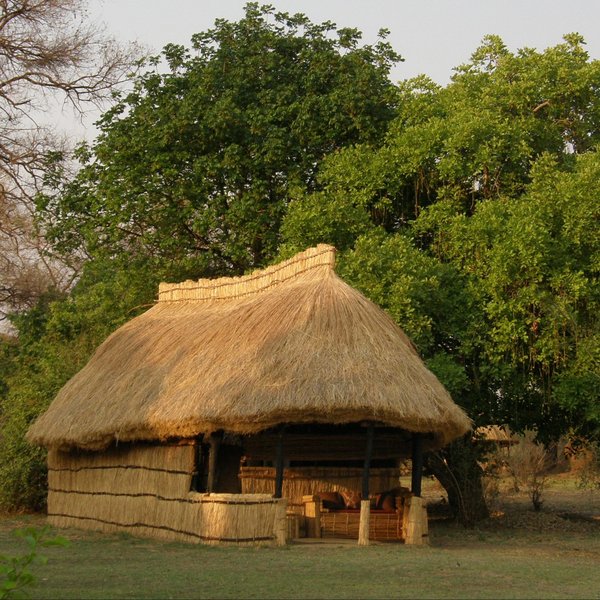
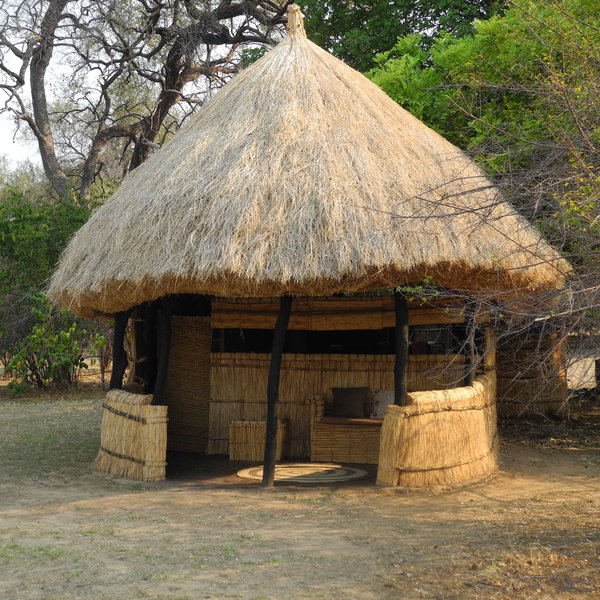
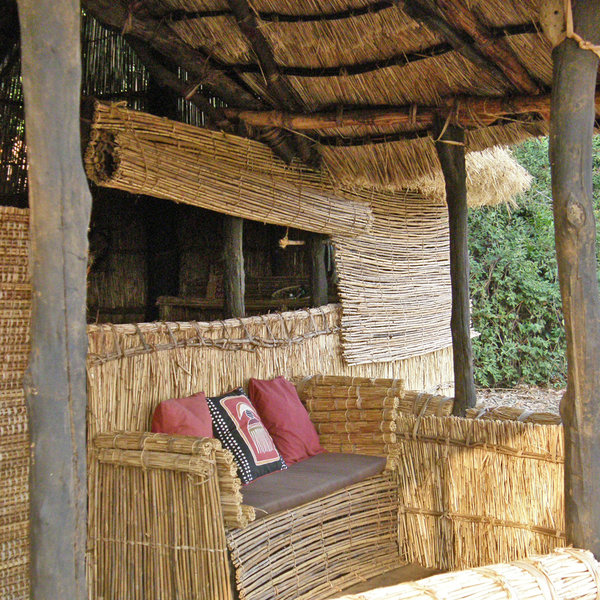
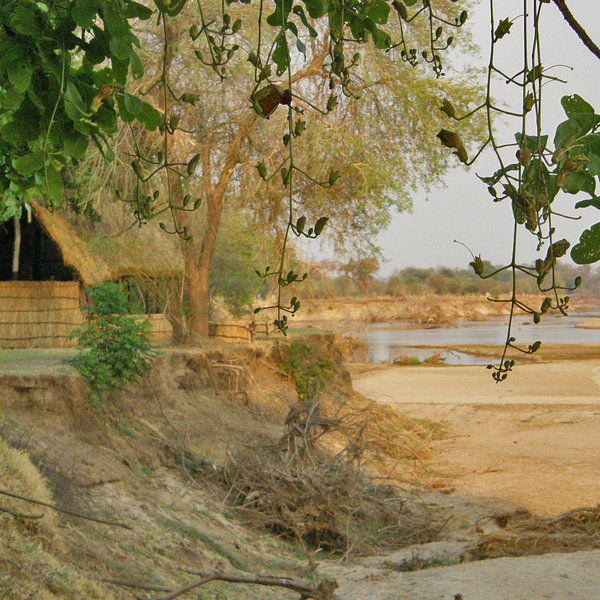
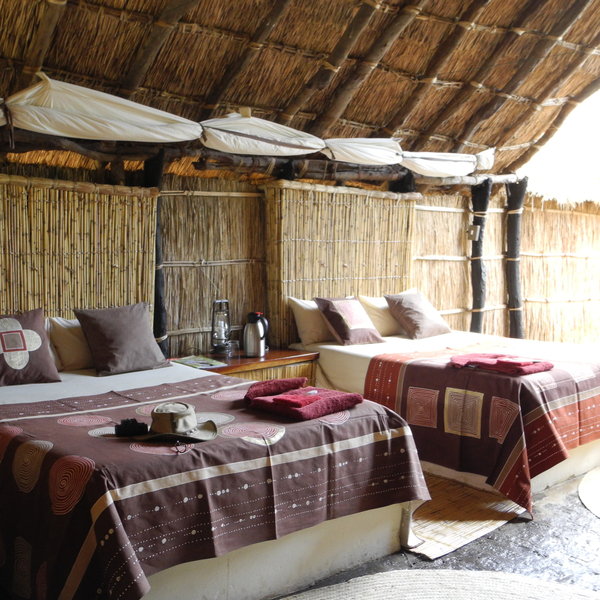
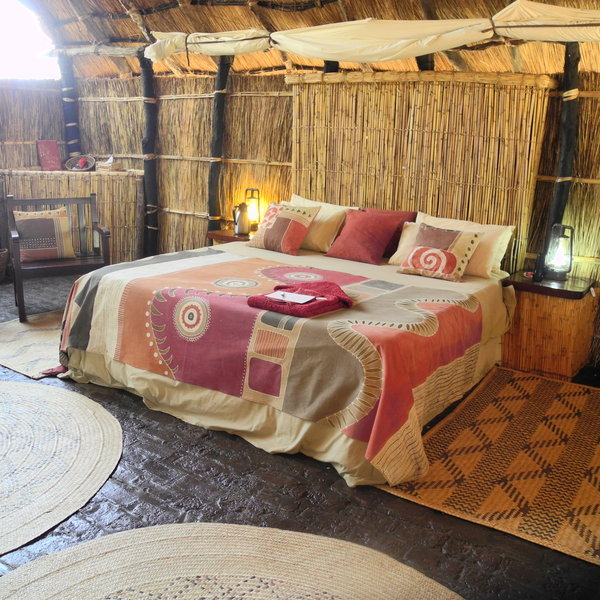
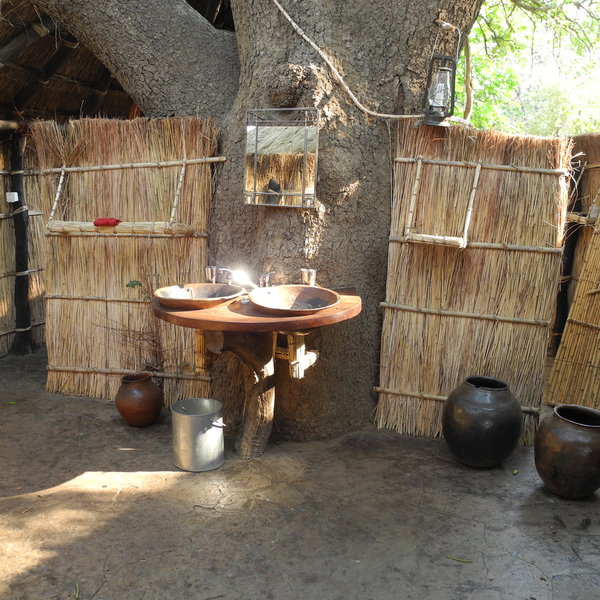
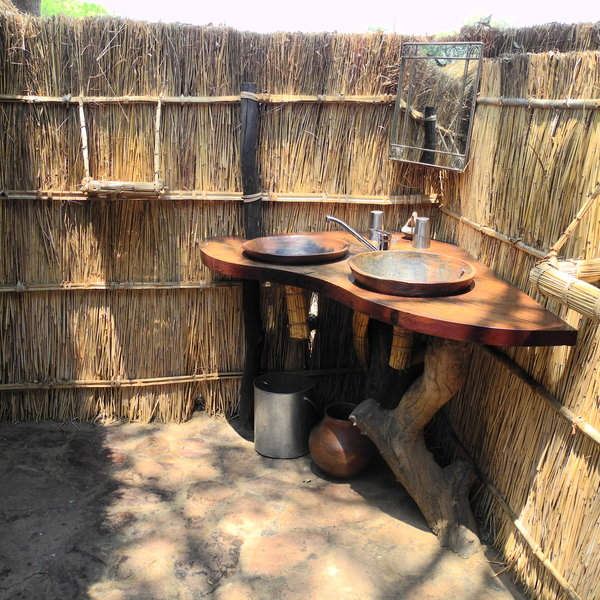
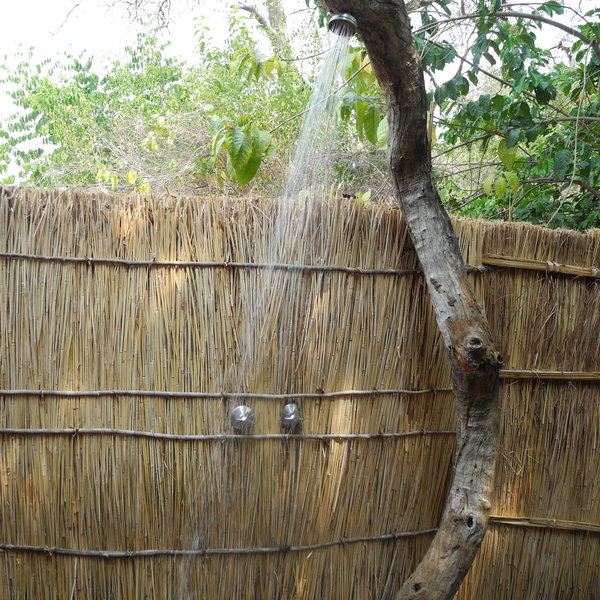
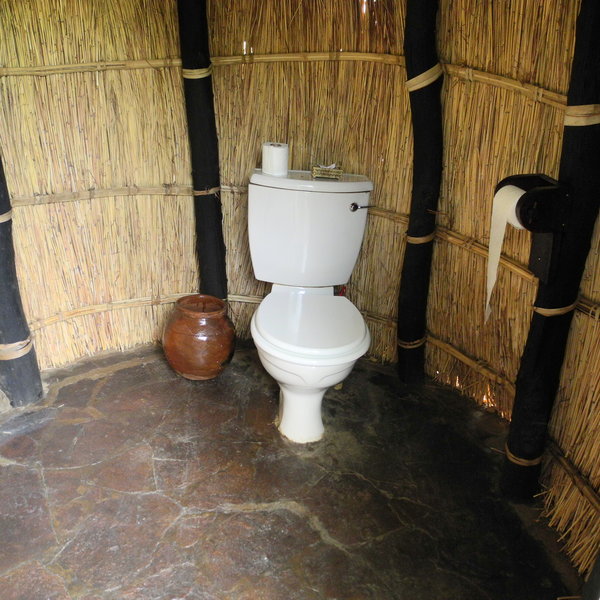
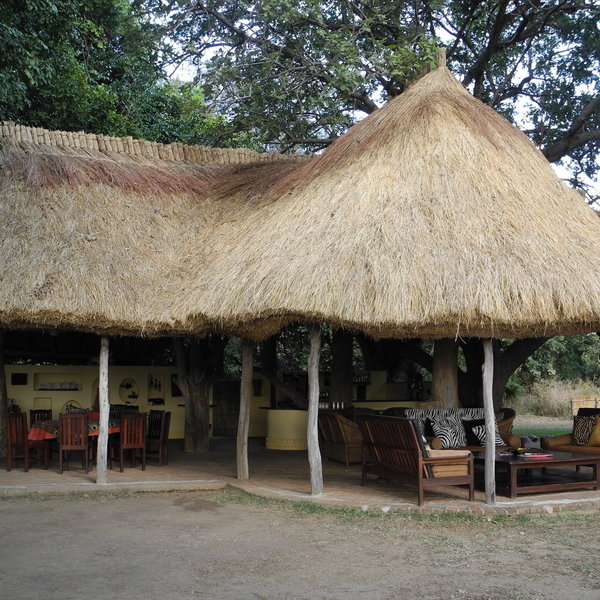
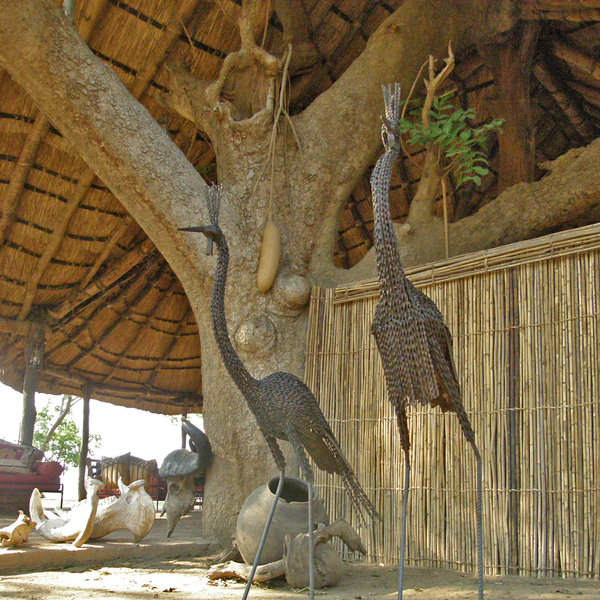
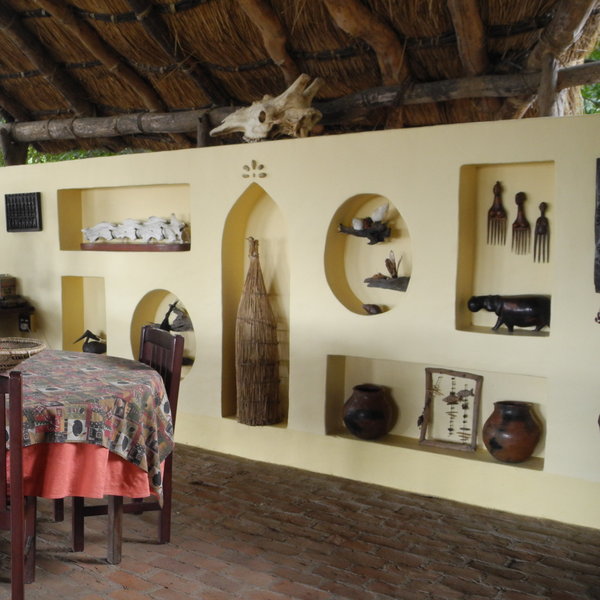
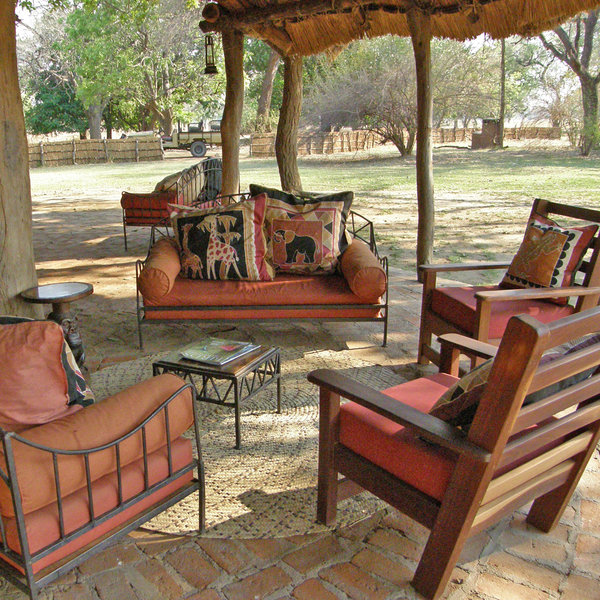
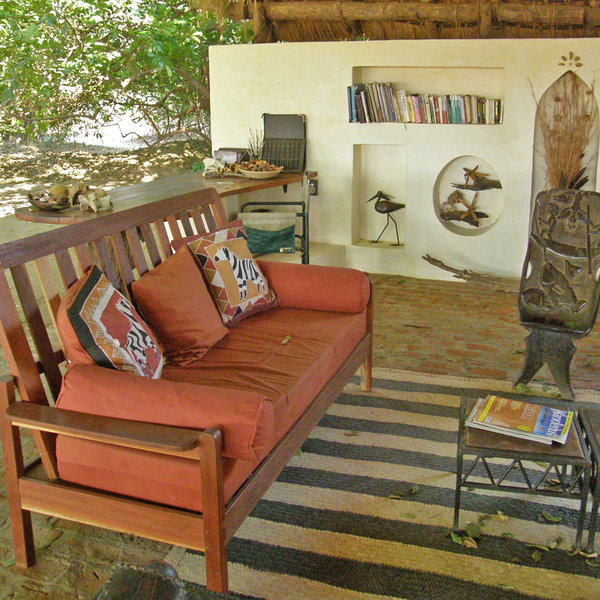
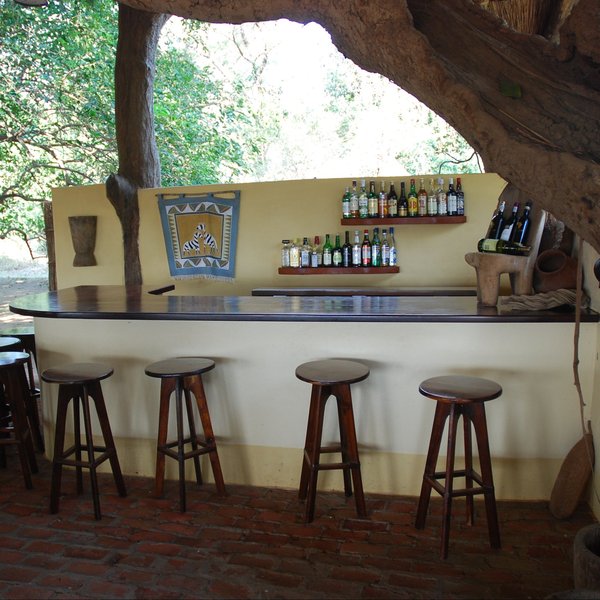
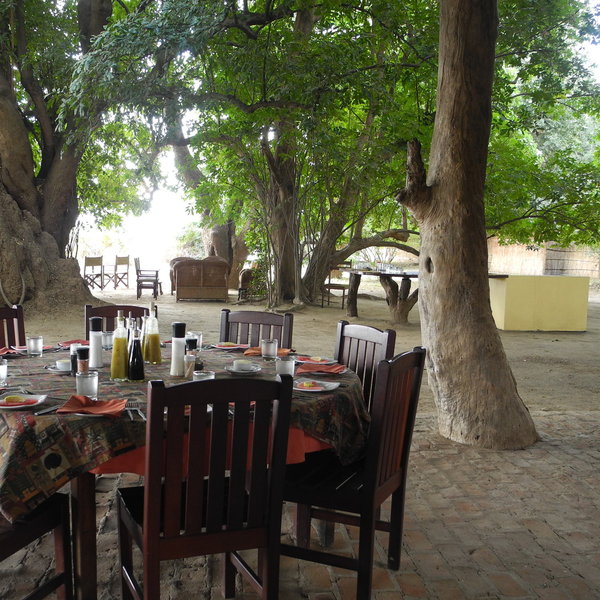
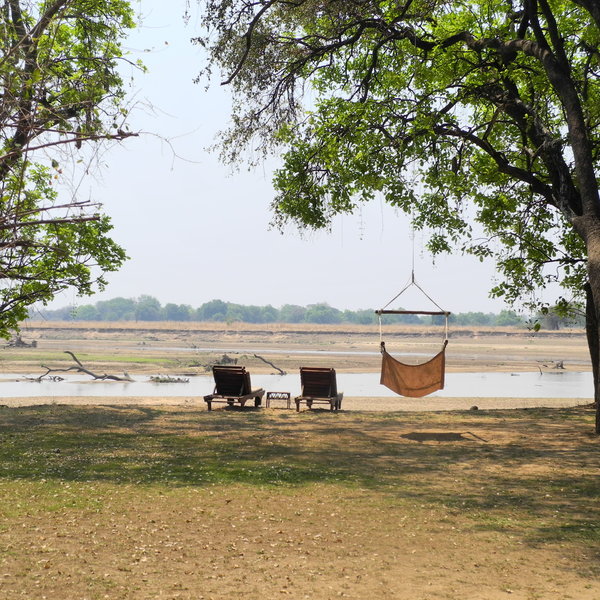
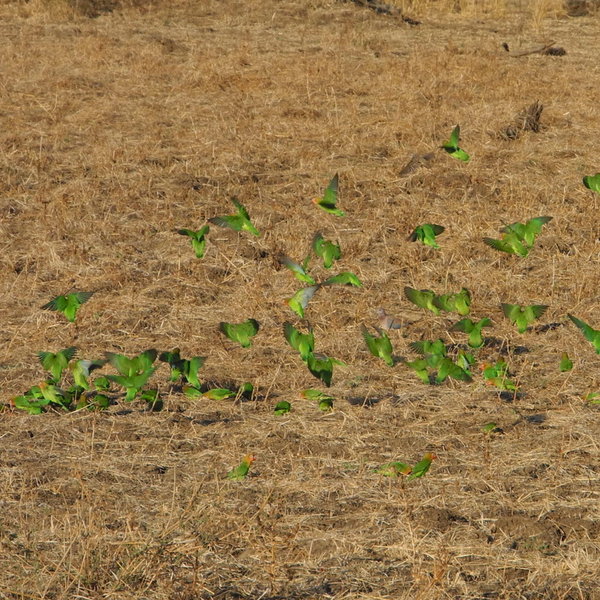
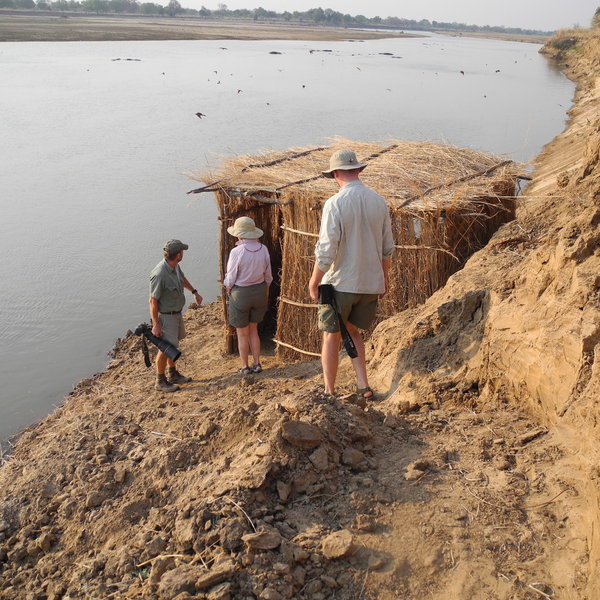
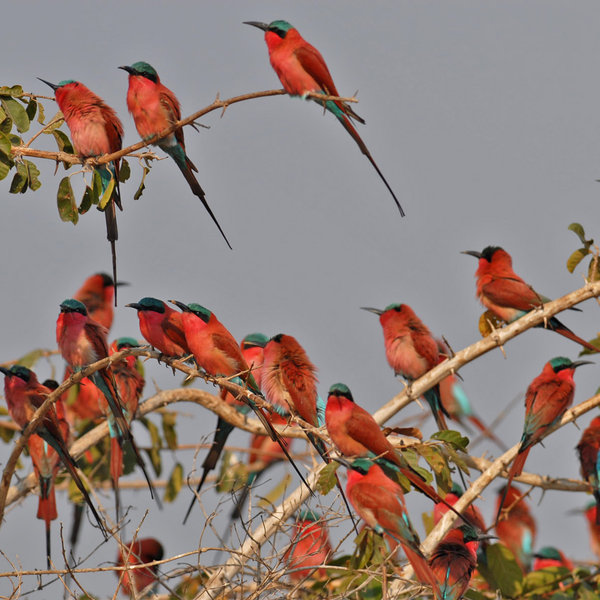
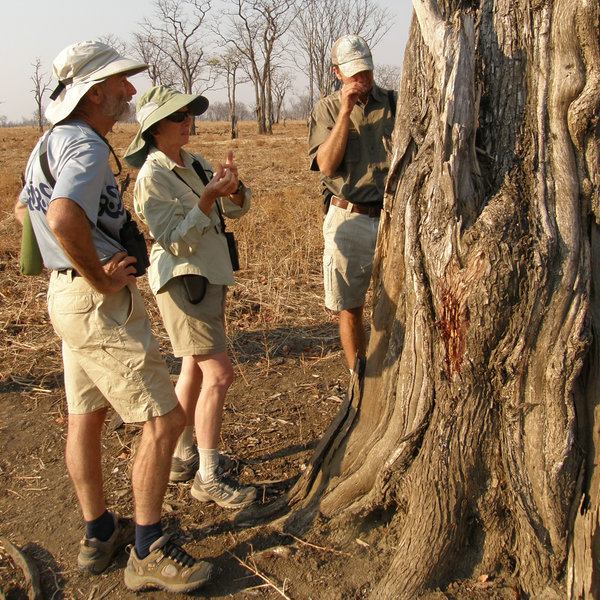
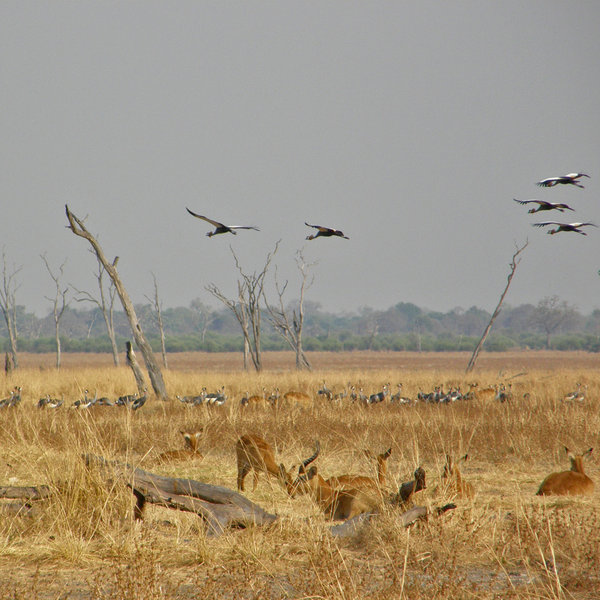
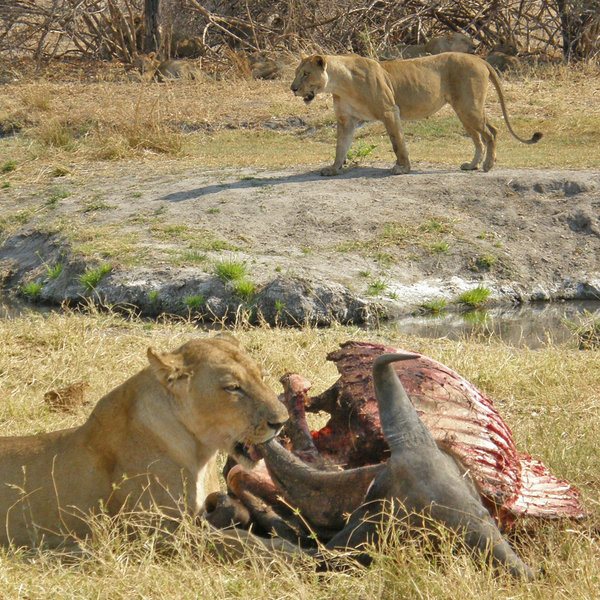
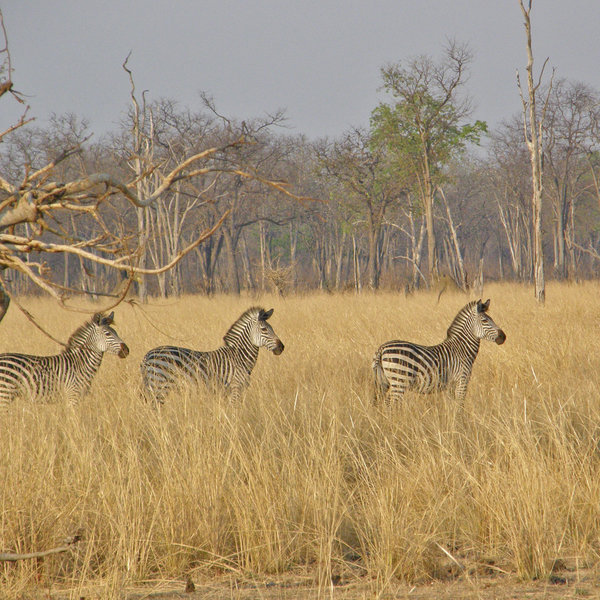
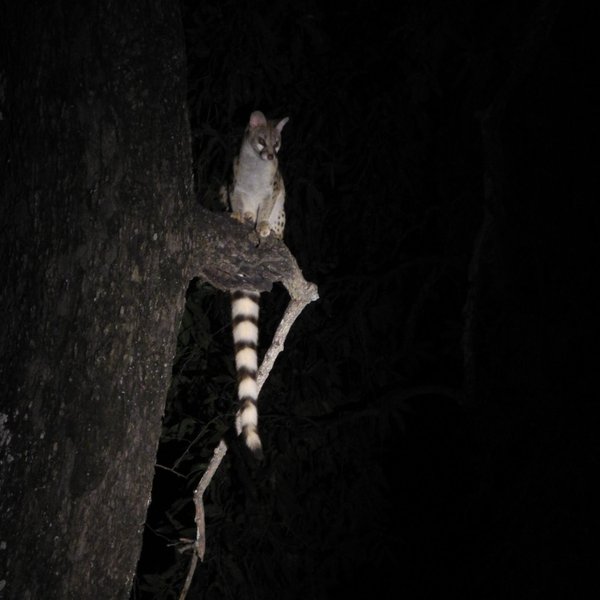
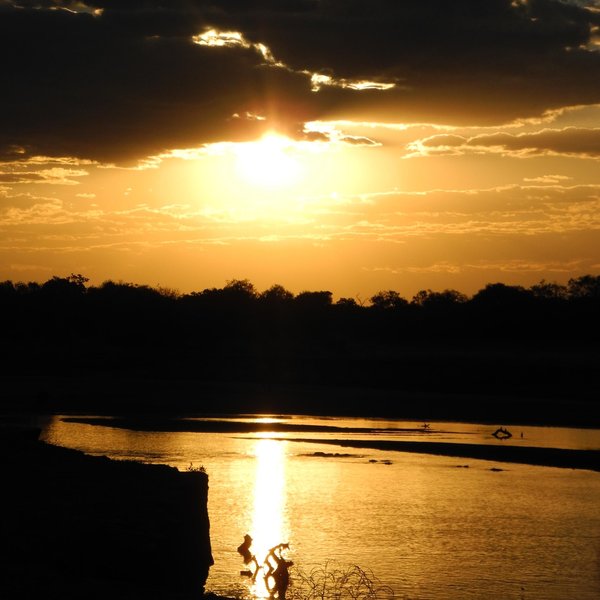
Expert Africa's gallery
When we travel we take lots of photos ourselves to give you a real and un-edited view of the safaris. See our 37 pictures and 2 videos of Tafika to get the candid view.
View gallerySafaris visiting Tafika
Just ideas, we'll always tailor-make a trip for you
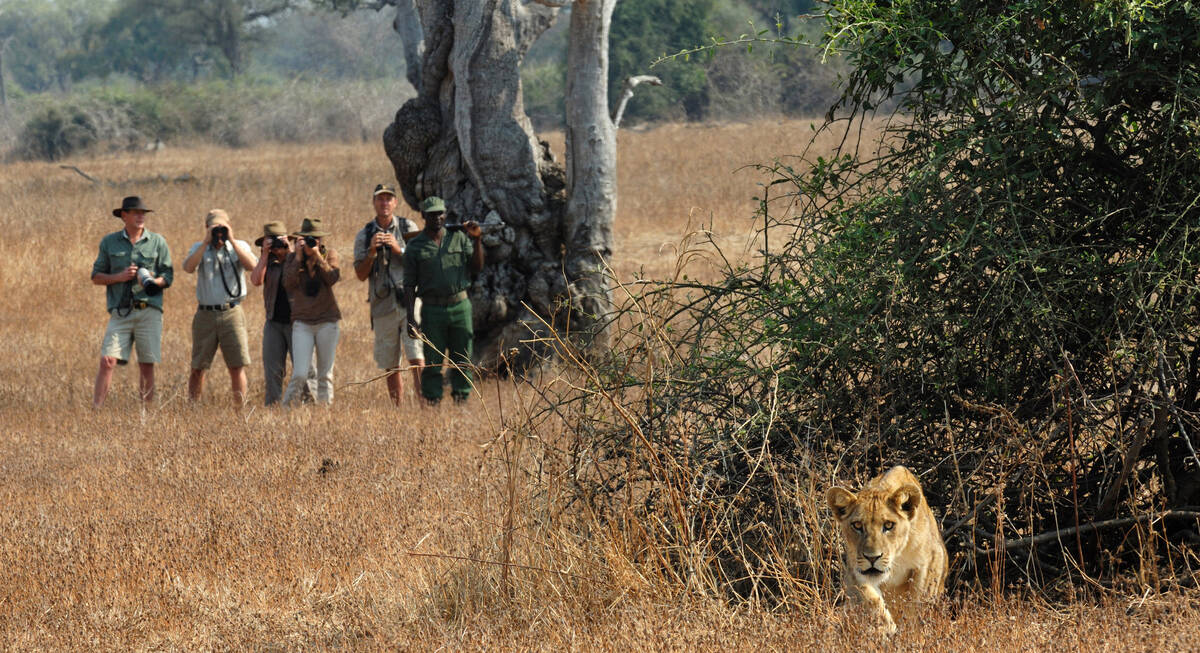
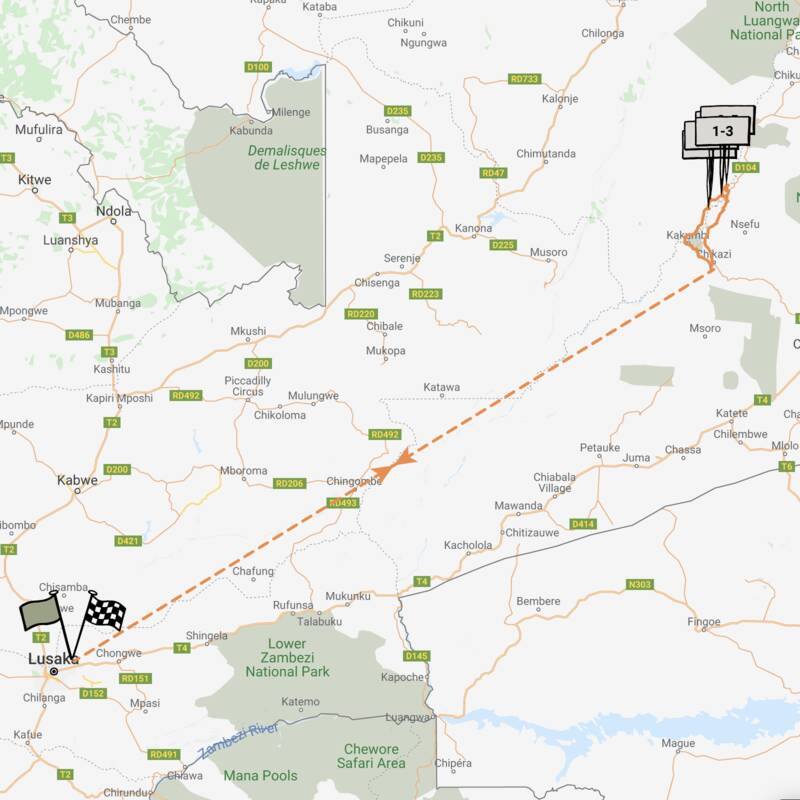
Perekani Walking Trail
10 days • 5 locations • 1 country
LUSAKA AIRPORT TO LUSAKA AIRPORT
Five smart but rustic bushcamps are the comfortable staging posts for this walking safari in South Luangwa. The route offers outstanding seclusion and rich wildlife with top-quality guiding throughout.
Visiting South Luangwa
US$9,940 - US$12,210 per person
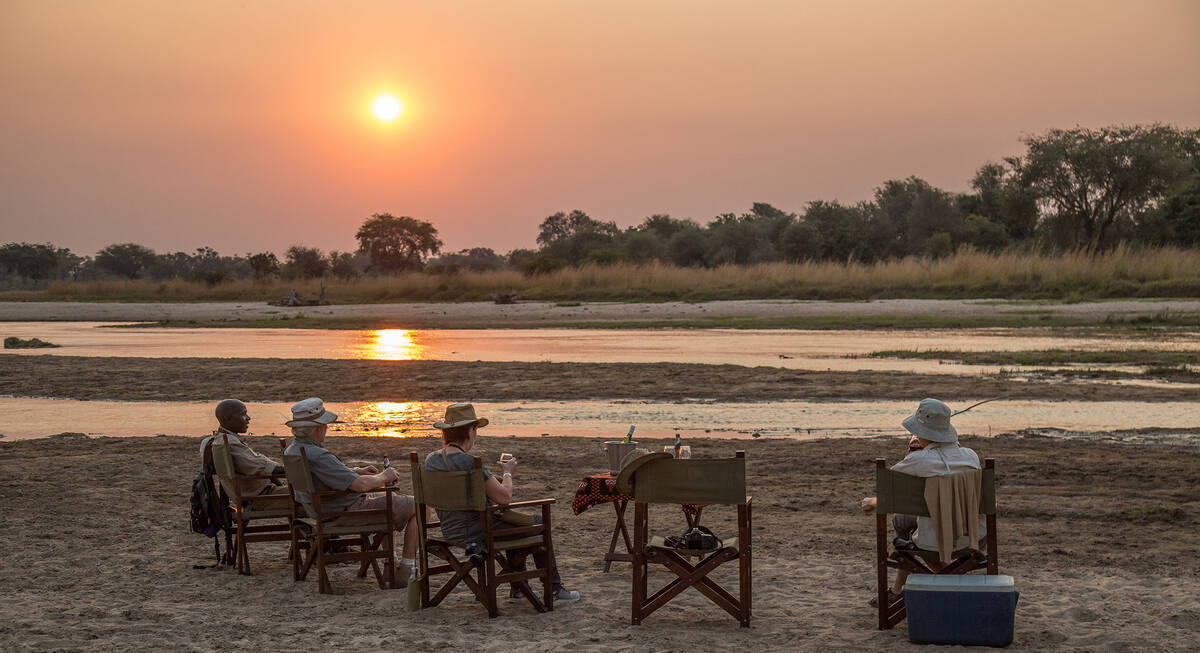
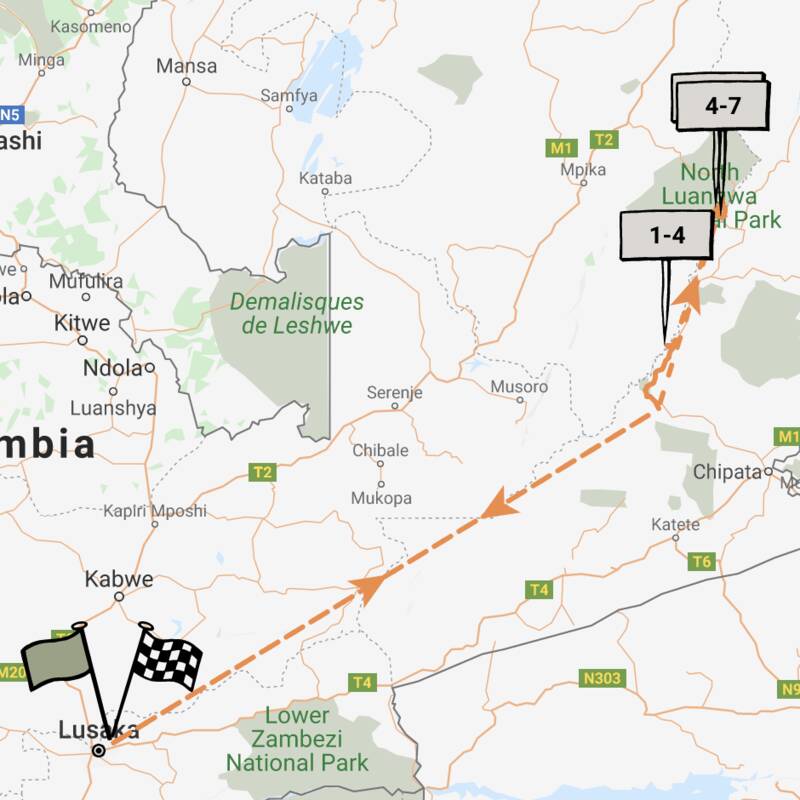
Giraffe Safari
9 days • 3 locations • 1 country
LUSAKA AIRPORT TO LUSAKA AIRPORT
A safari to the remotest parts of Zambia’s Luangwa Valley. Perfect for experienced safari goers and first-time Africa adventurers. Explore with expert guides whilst staying at small bushcamps.
Visiting South Luangwa, North Luangwa
US$8,700 - US$10,430 per person
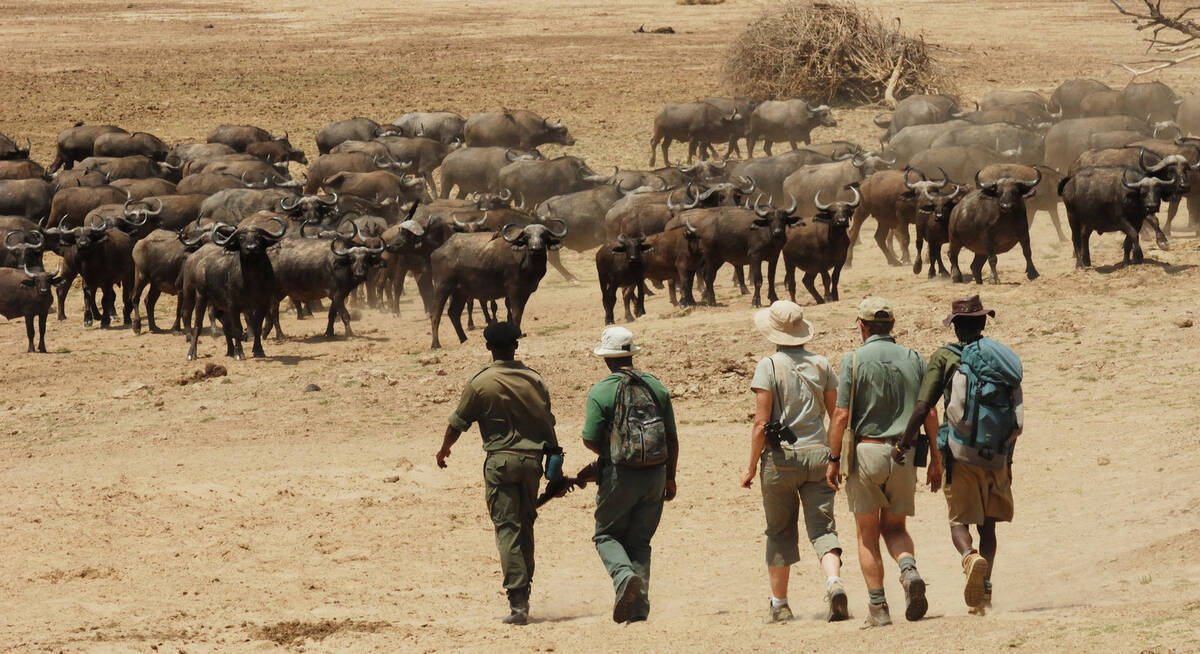
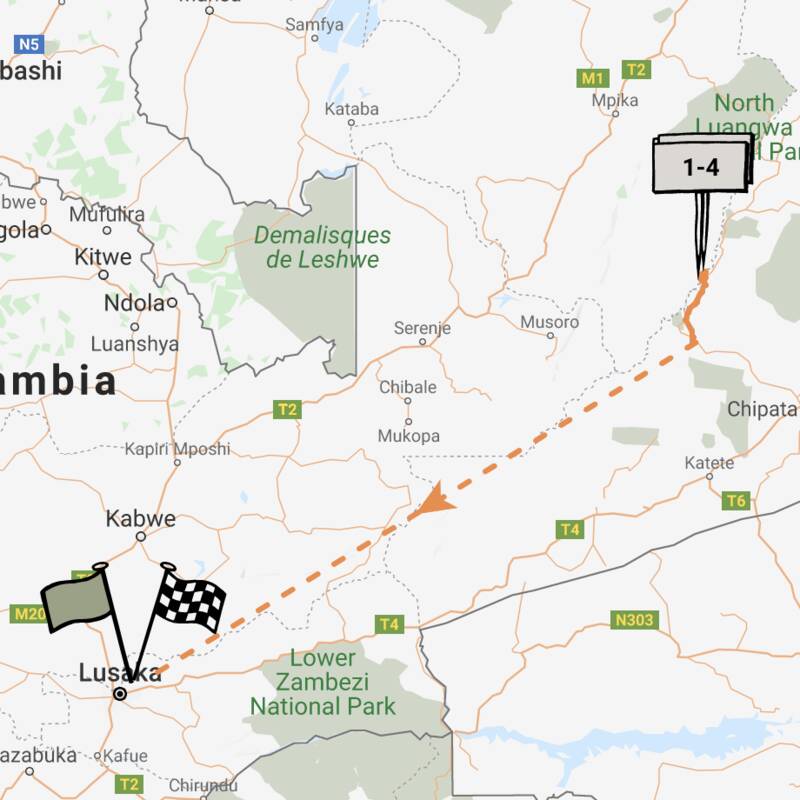
Scrub Hare Safari
7 days • 3 locations • 1 country
LUSAKA AIRPORT TO LUSAKA AIRPORT
Camps run by welcoming owners with a passion for their environment are rare, and Tafika is one of the best. Combine this with walking safaris at equally excellent bushcamps for the best of the South Luangwa.
Visiting South Luangwa
US$6,290 - US$7,630 per person
Tafika: Our full report
Home to the Coppinger family, Tafika is a small and outwardly rustic camp on the banks of the Luangwa River.
Its location, on the northern side of the beautiful Nsefu Sector within in Zambia's South Luangwa National Park, makes Tafika – along with its two satellite bushcamps on the other side of the river – the most northerly of South Luangwa's safari camps. This allows most activities to be carried out in quiet areas of the park, where you’ll invariably have wildlife sightings to yourself
We’ve delighted in visiting Tafika regularly since 1995, when John and Carol – the founders of Remote Africa Safaris – first moved here. We've seen it gradually evolve and refine over time but its heart and character has never really changed. And that is exactly why we love it!
Tafika has six chalets made to a high standard from locally sourced poles, reed and thatch. These include four doubles or twins, a honeymoon suite and a larger chalet sleeping up to four guests.
- The four double/twin chalets are almost identical in layout, each with two very comfortable queen-size beds made up with quality cotton bedding and colourful local textiles under their own large walk-in mosquito nets. As with everything else here, the rooms are spacious and comfortable, but not ostentatious – and very much in keeping with the feel of the bush. The floors are polished stone, scattered with locally made reed mats; there’s simple, polished wooden furniture and large decorative clay pots. The room is lit by efficient, solar-powered lights and boats a solar-powered fan for the warmer months, as well as a bank of USB port chargers for phones (there’s a solar camera charging station (220V) in the main area too).
A small veranda to the front of each chalet has a couple of chairs overlooking the Luangwa River. And a door at the back of the chalet leads to a private and enclosed bathroom that's completely open to the sky. Here, there's a large shower, with piping hot water at the turn of a tap, twin washbasins and, inside a small thatch-roofed hut – a very normal flushing toilet! - Tafika's honeymoon suite is very similar to the other chalets, but has a double his-and-hers shower and a king-size bed, plus a desk and some extra comfy chairs.
- Tafika's sixth chalet, which we often call the family chalet is very different. Its reed-and-thatch construction is the same as the other chalets, but it’s super-sized, with two large, adjacent bedrooms, separated by a central hallway, and a shared bathroom area: albeit with two separate toilet areas and two outdoor showers. It’s ideal for a family or two couples travelling together, and comfortable to share some communal areas. Each bedroom has a large, walk-in mosquito net covering either a king-size bed or two doubles, simple furnishings and lovely linens. The thatch is high and the rooms are comfortable, shady retreats. The back of the chalet opens out to the open-sir bathroom, with a shared double sink area and two, mirror-image toilet and shower areas, one of the latter being cleverly built around the trunk of a massive Kigelia africana or sausage tree, to give a little more privacy.
Tafika's main area is a large open-sided structure with a high, thatched roof that incorporates a comfortable lounge area, a small but well-stocked bar (which is always open and with a smiling staff member to assist you) and a dining area. Meals, eaten together at social circular tables, are deliciously fresh and imaginative, with produce grown in Tafika’s superb fruit and vegetable garden – itself worth a visit! It’s a terrific opportunity to chat about wildlife sightings and hear tales from the bush from the knowledgeable Remote Africa team. On our last visit, we dined together with other guests and some of the team, though private dining is available if guests prefer. When they're in camp, which is usually all season, John and Carol, or their daughter Jennifer and her husband Nick, as well as long-standing members of the team and guides, will join everyone for lunch – and occasionally also for dinner.
The standard of cuisine is consistently impressive, served politely and without fuss. If you’re interested, one of the staff will be more than happy to take you on a 'back-of-house' tour where you'll see that, despite being largely open, the kitchen is a hive of professional activity. It’s well worth having a look.
Tafika's plentiful fruit and vegetable garden, which is an extensive area surrounded by an electric fence, primarily to keep the elephants out, is a delight. A labour of love to plant and maintain, it's a major undertaking, professionally run, and ensuring that much of the camp’s produce is home-grown and exceedingly fresh. From papyas to aubergines and fragrant herbs, much of what you’ll eat here was picked the morning it’s eaten.
And much though it’s idyllic in camp, and good company is always on hand, there’s a great array of activities on offer to explore the park. Guests may choose what they'd like to do daily and it would be very unusual for the team not to be able to arrange your request.
As with many camps in the South Luangwa, activities focus on game drives (day and night) and walking safaris. The drives are generally conducted in purpose-built, open-sided and open-topped 4WD vehicles, which have just two rows of comfortable bench seats. There are no more than four guests per vehicle, a real feature of the activities at Tafika. On our last trip in August 2022, we walked from the river crossing near to Tafika up to Big Lagoon, Tafika's newest walking camp, and we’ve previously walked to Chikoko. The guides have always been exceptional, on occasion getting us as close as safely possible to an immense breeding herd of buffalo, and always pointing out a plethora of insects, plants and spoor along the way.
Custom-built hides near to the camp provide ideal opportunities to view and photograph animals at the waterhole and, in season, the nesting carmine bee-eaters (September – October). After one August lunch, we watched giraffe, bushbuck and mongoose enjoy a drink in the hide just paces from our chalet.
It's also possible to visit the nearby community of Mkasanga, where you are invited to visit the school, wander around the village and enjoy the church choir. Although they don't boast about it, Tafika is very much in touch with its local community, supporting its development through the Tafika Fund and providing considerable training and employment to the people who live there.
What distinguishes Tafika further is that it's virtually the same team of guides every year, including John Coppinger, Bryan Jackson and Isaac Zulu and Alex Phiri. The least experienced of these has been guiding for more than 20 years – guaranteeing the exceedingly high level of knowledge and experience that draws many of our travellers back to Tafika on a regular basis.
A stay at Tafika combines very naturally into a longer trip including its sister walking camps, Big Lagoon Camp and Chikoko Tree Camp, both of which are situated across the Luangwa River, in a section of the national park set aside exclusively for walking safaris. See the satellite map of the area around Chikoko for a view of these camps. Walkers will note that it's an easy three–four-hour walk between Tafika and Chikoko, or Chikoko and Big Lagoon Camp.
If you want to venture further, then Tafika and its bushcamps combine well into a ten-night (or longer!), fly-in trip that includes their more distant sister camps, Mwaleshi Bushcamp and Takwela Camp located in the remote North Luangwa National Park, famed for its burgeoning rhino population.
Season-dependent, trips from Tafika to Shiwa Ng'andu and Kasanka National Park are also on offer – using a small aircraft that is stationed at Tafika's airstrip.
Activities
4WD Safari
Birdwatching
Cultural excursion
Guided walking safari
Night drive
Families & children
- Attitude towards children
- John and Carol brought up their two daughters at Tafika, which was their home when they were growing up, so they're very relaxed with children. Their daughter Jennifer is now managing Tafika so knows exactly what it’s like to be a child in this area.
- Property’s age restrictions
- Tafika welcomes children of 12 years and older. Younger children may be accepted at Tafika's discretion – depending on the circumstances and season. Talk to us if you're thinking of bringing children here. Note that children must be 12 years or older to participate in walking safaris.
- Special activities & services
- None
- Equipment
- None
- Generally recommended for children
- Although children are welcome, the camp is largely one for older children or adults. We recommend Tafika for mature, well-behaved children over the age of 12.
- Notes
- Tafika is on the edge of the Luangwa River and is not fenced, so animals roam freely through the camp. Children must be supervised at all times by a parent or guardian.
Food & drink
- Usual board basis
- Full Board & Activities
- Food quality
- Tafika has always offered delicious, high-quality meals, and our last visit in August 2022 was no exception. The head chef, Rona, has been with Tafika for nearly 15 years, and the food has been consistently outstanding under her watch.
A buffet breakfast is normally available in the main area before the early-morning activity and guests generally eat on their laps around the campfire. There is a wide choice, from freshly baked bread, sweet or savoury muffins, cereals, fresh fruit salad and yoghurt. Accompanying this one morning, there was a platter of cold meats, cheese, pickles and tomato, with the option of scrambled eggs; while the following day we had a cooked breakfast with bacon, tomato, sausages and poached eggs.
Lunch is served at about midday, when everyone has returned from their morning activity. We enjoyed a selection of creative, fresh salads, an aubergine moussaka and freshly baked bread, and a platter of juicy fresh fruits.
Dinner is usually served once everyone has returned from the evening activity, and shared a drink at the bar. The meal is eaten around two large circular tables, although barbecues are frequently arranged on the banks of the river near to the camp. Though there is sometimes a buffet option, the kitchen at Tafika usually serves a set menu for dinner - and they're able to cater to a variety of dietary requests with advance notice. From hearty soup starters with sweetcorn fritters to rich beef stews with seasonal vegetables, and crowd-pleasing desserts, dinners are a feast of flavours and enjoyably sociable. - Dining style
- Group Meals
- Dining locations
- Indoor and Outdoor Dining
- Further dining info, including room service
- No
- Drinks included
- Filtered drinking water, soft drinks, house wine and spirits are included in the rates, but fine wines are charged as extras.
Our travellers’ wildlife sightings from Tafika
Since mid-2018, many of our travellers who stayed at Tafika have kindly recorded their wildlife sightings and shared them with us. The results are below. Click an animal to see more, and here to see more on our methodology.

100% success

99% success

99% success

98% success

93% success

92% success

90% success

85% success

46% success

40% success

10% success

3% success

1% success

0% success

0% success
Getting there
- Location
- South Luangwa National Park, Zambia
- Ideal length of stay
- In the dry season, it's perhaps most popular to start a safari in the South Luangwa at Tafika, staying for three or four nights before heading to its sateillite bushcamps – Big Lagoon Camp and Chikoko Tree Camp for a few nights each. Often trips will finish with a night or two at Tafika – although some will finish with a visit to Mwaleshi or Takwela in the North Luangwa.
To see if the camp has space on your dates, click the CHECK AVAILABILITY link, top-right of this page. You'll need to log in to see the details. - Directions
- It's around an hour’s flight from Lusaka to Mfuwe Airport, where you’ll be met transferred through the national park. It's approximately 1½–2 hours by road to Tafika.
A flight transfer from Mfuwe to Lukuzi airstrip (Tafika) takes 12 minutes. - Accessible by
- Fly-and-Transfer
Special interests
- Family safaris
- Tafika offers a family chalet, top guiding and excellent food and service during Zambia family safari holidays. Expect 4WD drives, walks and village visits! The owners raised their own children here, so under-12s are sometimes accepted.
- See ideas for Family safaris in Zambia
- Birdwatching safaris
- Tafika guides are knowledgeable birders. Highlights of the area include flocks of crowned cranes during the dry season, a yellow-billed stork colony May–July, carmine bee-eaters Sep–Oct, and Pel's fishing owl all year round.
- See ideas for Birdwatching safaris in Zambia
- Cultural Experiences
- The owners at Tafika have excellently integrated the camp into its local community. If you are keen to experience traditional cultures in Zambia you are welcome to visit the village, where you can expect a very warm welcome.
- See ideas for Cultural Experiences in Zambia
- Walking safaris
- Tafika is owned and run by John Coppinger, one of the most experienced guides in Zambia, who helps to monitor guiding standards in the valley. Camp-to-camp walking trails are possible between Tafika and its satellite bushcamps, Crocodile and Chikoko.
- See ideas for Walking safaris in Zambia
- Wildlife safaris
- Tafika’s excellent guides lead numerous activities, allowing multiple perspectives during a wildlife safari in Zambia. The camp is in the Nsefu Sector of South Luangwa National Park, which is an excellent area for big mammals and predators.
- See ideas for Wildlife safaris in Zambia
Sustainability
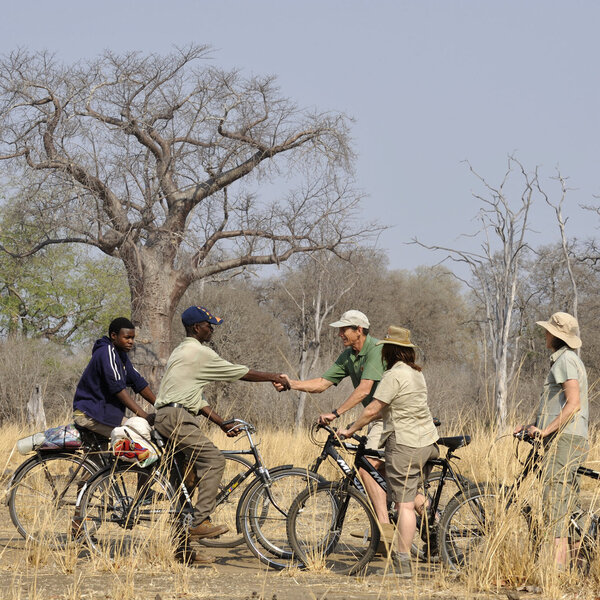
The Tafika Fund
Through the Tafika Fund, Tafika and its sister camps have committed to support the nearby government operated school, Mkasanga, by providing stationery and text books, desks, teachers' salaries, school renovations and maintenance. The Fund also provides pupils' scholarships, skills training and sewing classes for women with the view to support local industries producing safari clothing and school uniforms.
The people of Mkasanga Village, the local health authority and the Tafika Fund combined efforts to build an outpatient clinic in Mkasanga. Funds for medicines are provided, as well as wages for an assistant to the medical officer throughout the year. They have plans to extend the facilities to include inpatient services and a maternity wing when further funds become available. The opening of this health facility has been of tremendous benefit to all in the area.
These safari camps are situated in a wilderness area far north of the Mfuwe hub and the support provided through the Tafika Fund to the local communities in this area is vital. They provide direct employment in their camps for the local people, as well as seasonal employment to many others, as each of their camps is completely re-built each year using entirely local materials.
The Chikoko Trails bushcamps are situated in an exclusive walking only area where there are almost no roads and the environmental impact is thus greatly reduced. Accommodating a maximum of only six guests in each camp, their staff is mindful of the need to preserve this wilderness and keep any impact as temporary as possible. At Mwaleshi in the North Luangwa, the emphasis again is on walking safaris. All these bushcamp areas revert to pure wilderness for half of the year during the rainy season.
Waste disposal is carefully managed at all of their camps to leave no trace of their presence. Waste from the Chikoko Trails bushcamps is portaged back to Tafika for sorting – all non-biodegradable waste is packaged and sent back to Lusaka for proper disposal. Paper is distributed to the boilers for hot water at the camps; and bio-degradable waste is used to make compost for the vegetable garden at Tafika.
These camps actively support the anti-poaching work of the North Luangwa Conservation Project. They financed the installation of radios at the Chibindi Scout Camp and also provided a boat near Chibindi Camp to enable the anti-poaching patrols to safely cross swollen rivers during the rains. John Coppinger has flown hundreds of microlight hours on anti-poaching surveillance.
The 2010 season saw the introduction of the Luangwa Conservation and Community Fund charge to all bookings. This amount of US$10 per person per night is split equally between the Tafika Fund and conservation projects in both North and South Luangwa.
See more great sustainability projects in Zambia
Communications
- Power supply notes
- There are USB charging ports in the chalets for mobile phones, and a there is a central charging point in the main area for camera batteries, which can be used 24 hours a day.
- Communications
- Limited WiFi is available in the main area of the camp between 6am – 4pm, daily. There is no cellphone reception at Tafika, but in an emergency the camp has access to very good communications facilities. Discrete, essential-only use of mobile phones is encouraged.
- TV & radio
- There is no TV or radio.
- Water supply
- Borehole
- Water supply notes
- Basins and showers are plumbed in, and the showers have a 24-hour supply of hot and cold water. There are proper flush toilets in each of the bathrooms.
Health & safety
- Malarial protection recommended
- Yes
- Medical care
- There is a doctor in Mfuwe, about an hour's drive away, as well as a local doctor at the clinic closer to Tafika. For medical emergencies, Tafika has links with a flying-doctor service.
- Dangerous animals
- High Risk
- Security measures
- Several nightwatchmen patrol the camp at night
- Fire safety
- There are fire extinguishers and a bucket of sand in each chalet and the main area, as well as a high-pressure water point.
Useful info
- Disabled access
- On Request
- Laundry facilities
- A complimentary laundry service is included, but this does not include ladies' underwear; laundry soap for this is provided in the chalets. Note that clothes are hand-washed, air dried and coal-ironed.
- Money
- No exchange facilities are provided
- Accepted payment on location
- Tafika accepts cash payment for any extras in UK pounds, US dollars, euros and Zambian kwacha, as well as Visa and Mastercard payments, which will incur a charge of 4.5%. They cannot accept travellers' cheques.
Plan and book your trip with Expert Africa
All of our trips are tailor-made, so we'll always adapt them to suit you. Talk to an Expert and let us plan and arrange your perfect trip.

Talk to an Expert
Call or email us now! We’ll match you with the Specialist in our team who is best suited to help you. Then together we can start planning your trip.

Set up your itinerary
Based on our experience and your ideas, your specialist will create a detailed, costed itinerary. We’ll refine it together, until we have a trip that you’re perfectly happy with.

Prepare for your trip
The same Specialist will make the seamless arrangements for your trip, send you detailed travel documents, and be available to answer any questions before you depart.

Travel with peace of mind
After you set off, you’ll be cared for by our partners in Africa, most of whom have worked with Expert Africa for decades. And if you ever need us urgently, we’re available 24/7.

When you return
We love to learn about your trip, and so will always be grateful if you’ve the time to give feedback to your Specialist when you return.
Tafika's location
Look closer at the environment and surroundings of Tafika.
Excursions from Tafika
Optional extra day-trips and excursions possible whilst you're staying at Tafika. Talk to us: these are usually best arranged before you go.
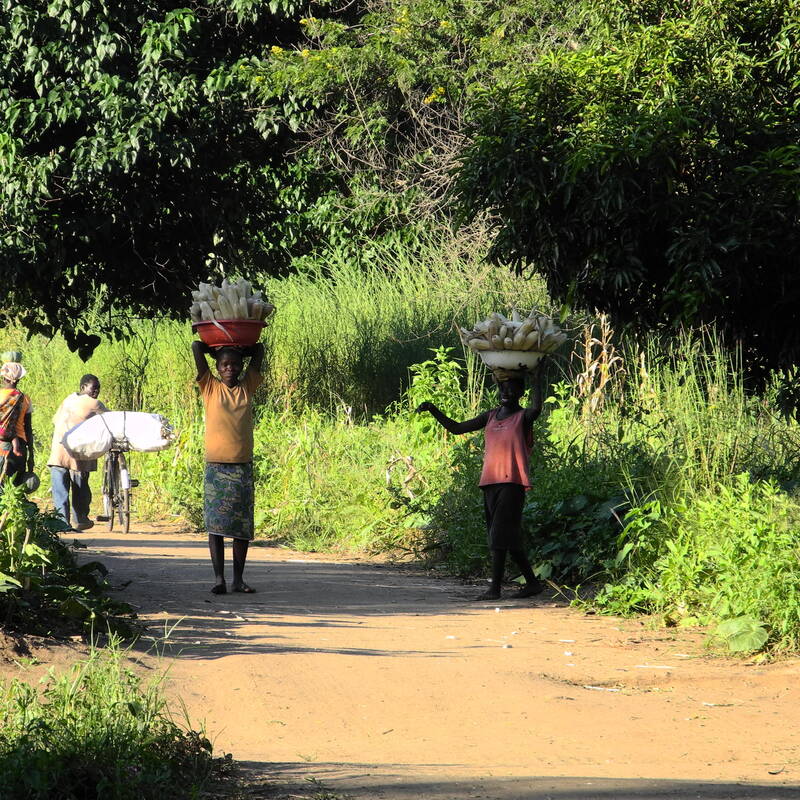
Kawaza Village Visit
Two to three hours
Just outside Zambia's South Luangwa National Park lies a normal, working rural African village which is open and welcoming to visitors to the Luangwa valley. There is nothing artificial or contrived about Kawaza Village, and it offers a rare opportunity to experience and appreciate Kunda culture, and meet local Zambians.
More about Kawaza Village Visit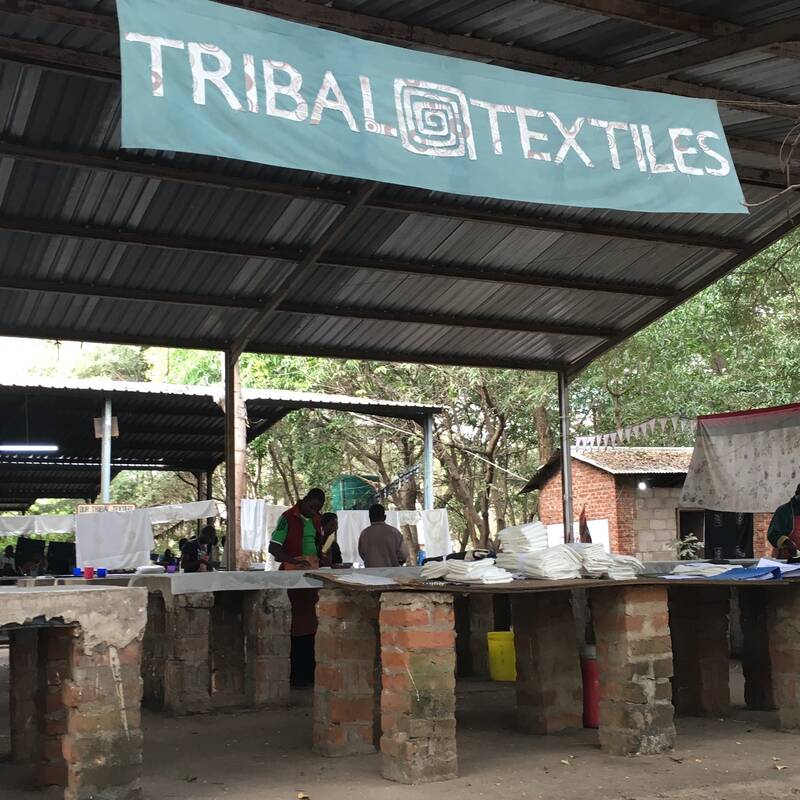
Tribal Textiles Tour
One - two hours
Visit the Tribal Textiles workshop, where hand-painted textiles are produced by more than a hundred local people. The workshop is close to Mfuwe Airport, so is ideally placed for a stop en route to/from the South Luangwa. With products ranging from cushion covers to bags and T-shirts, it's a great place for souvenir shopping while at the same time supporting the local community.
More about Tribal Textiles TourOther lodges in South Luangwa National Park
Alternative places to stay in this same area.
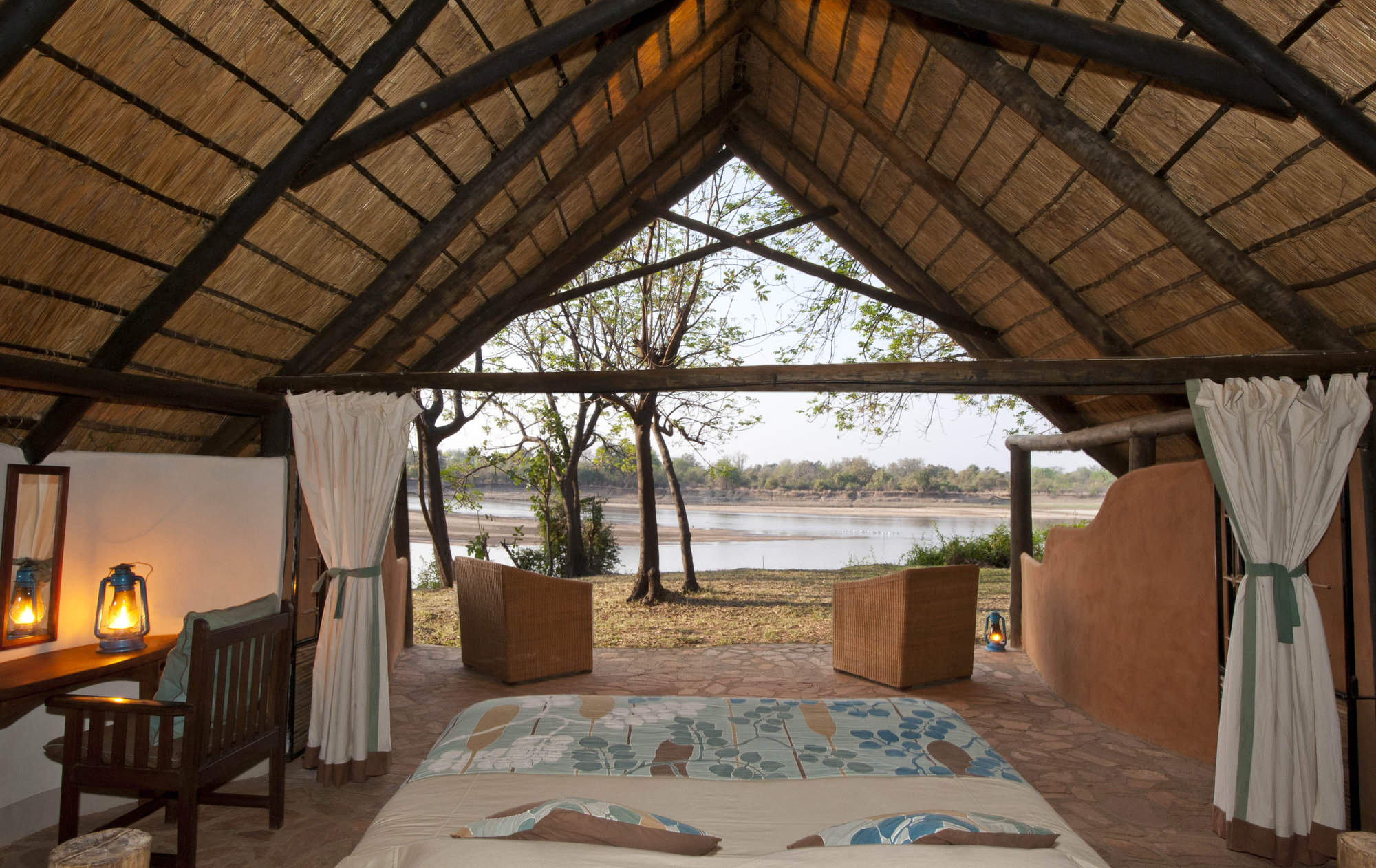
Nkwali
On the banks of the Luangwa River, with its own access to the national park, the intimate Nkwali is open year round.
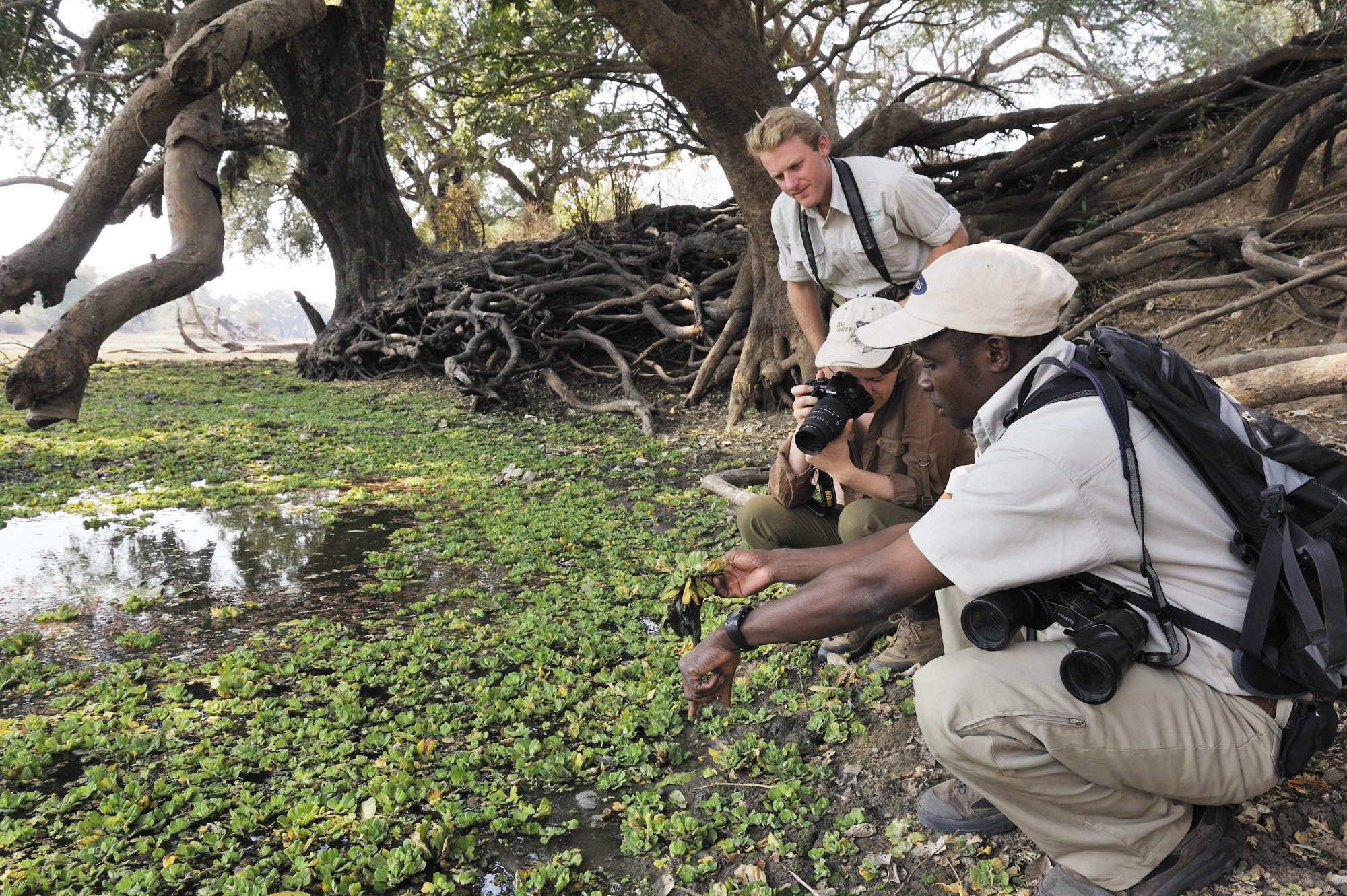
Kaingo Camp
Small and owner-run, the riverside Kaingo occupies a a quiet but excellent game area, with a series of wildlife hides and a focus on photography.
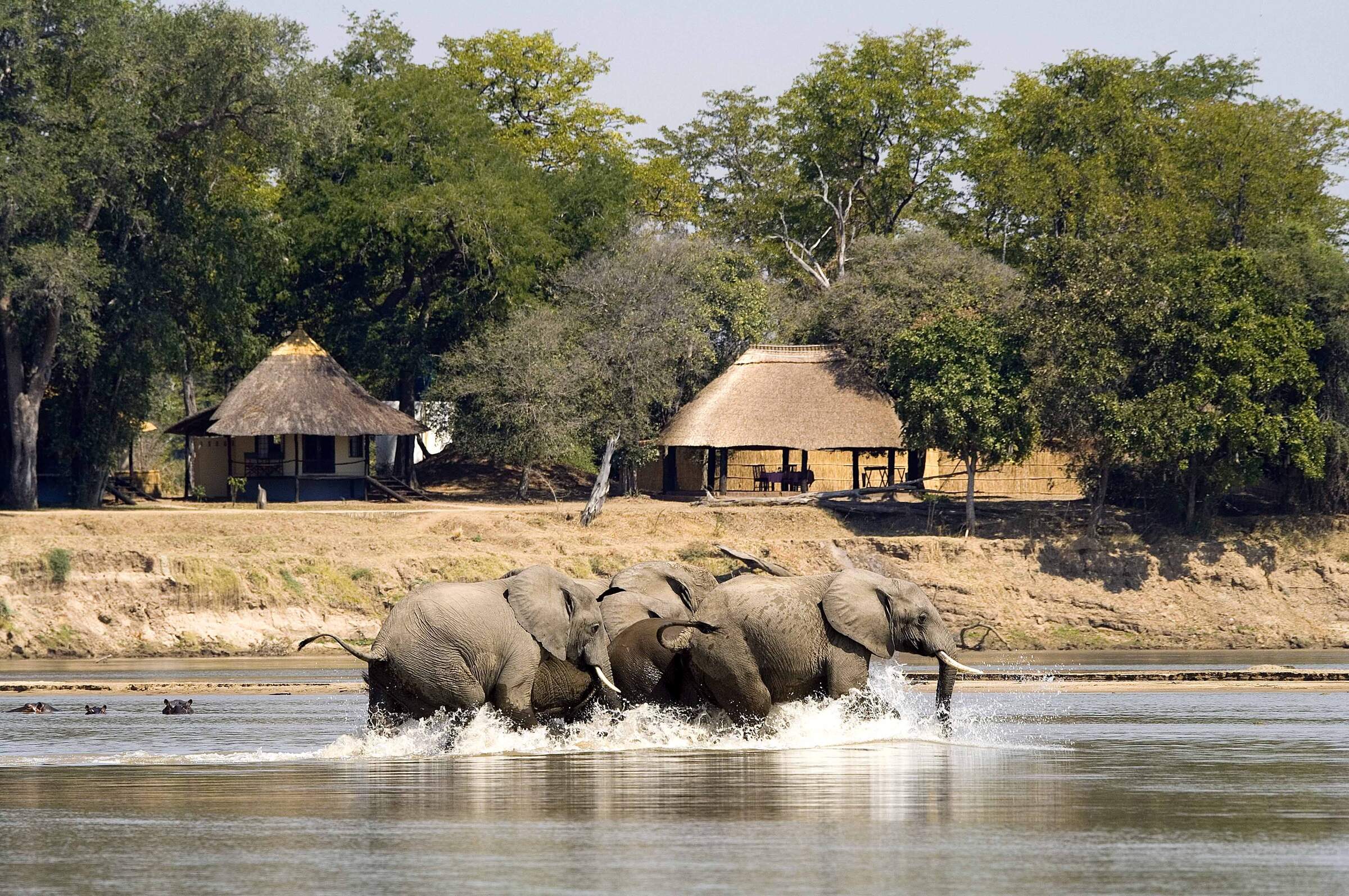
Nsefu
One of the Luangwa's oldest camps, Nsefu is a great safari camp in a remote, beautiful and game-rich location with top-rate guiding.
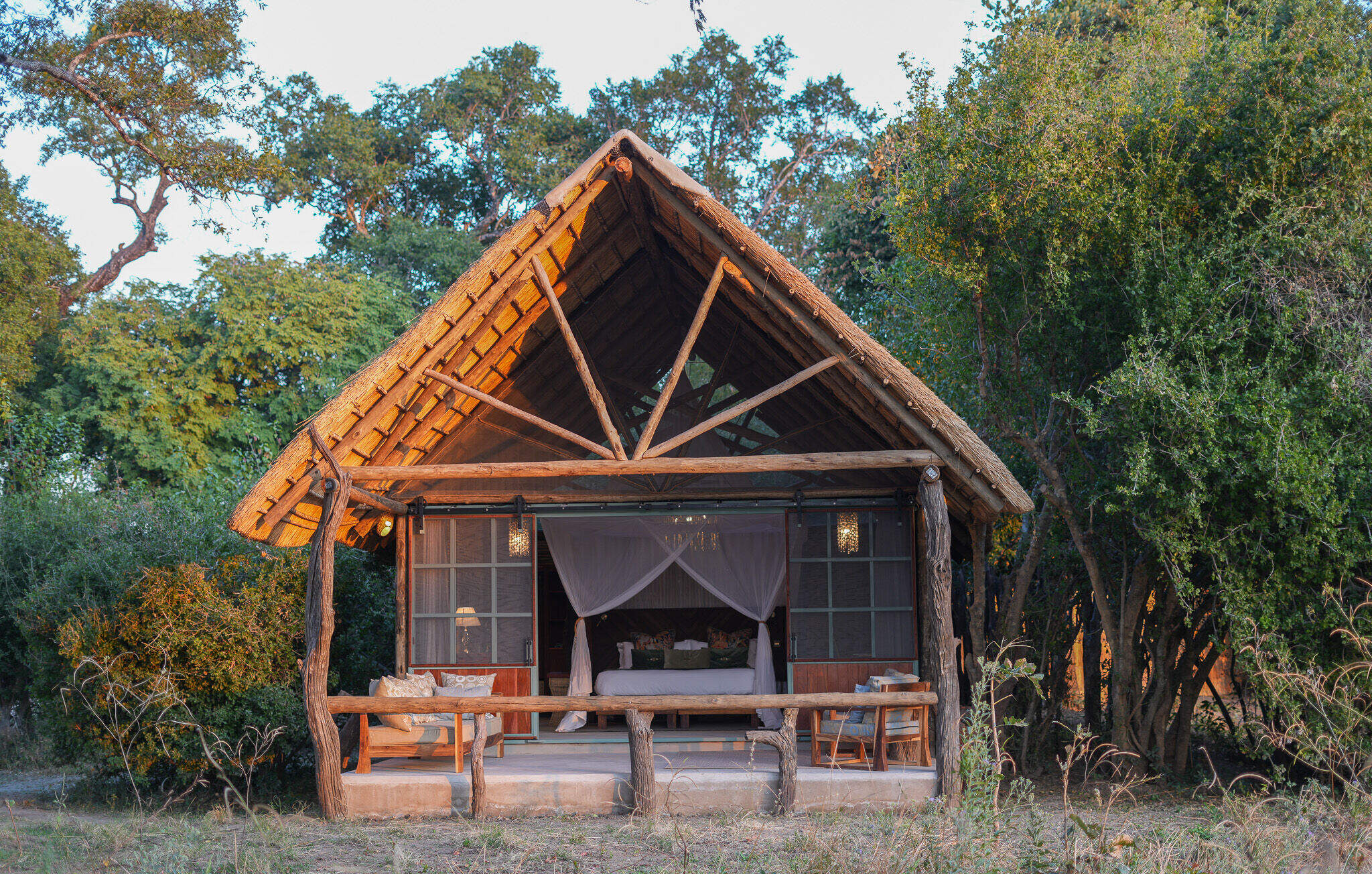
Mwamba Bushcamp
Small, remote and owner-run, Mwamba offers first-class walking, 4WD safari drives and superb hides, with excellent guides and a real bush feel.
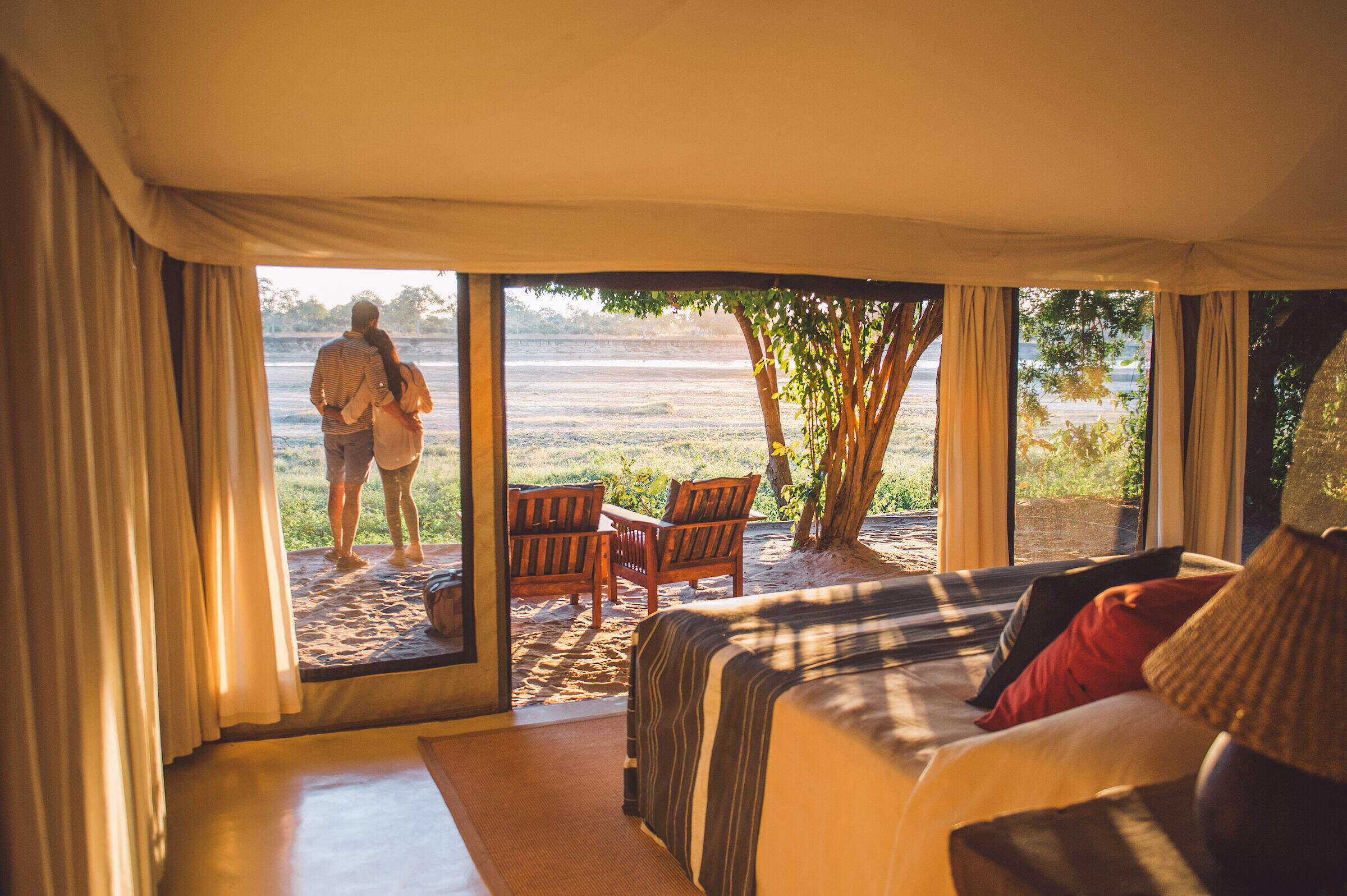
Tena Tena
One of the Luangwa's best camps, in a beautiful, remote bush location, Tena Tena is very small, exceedingly well-run and has top-rate guiding.
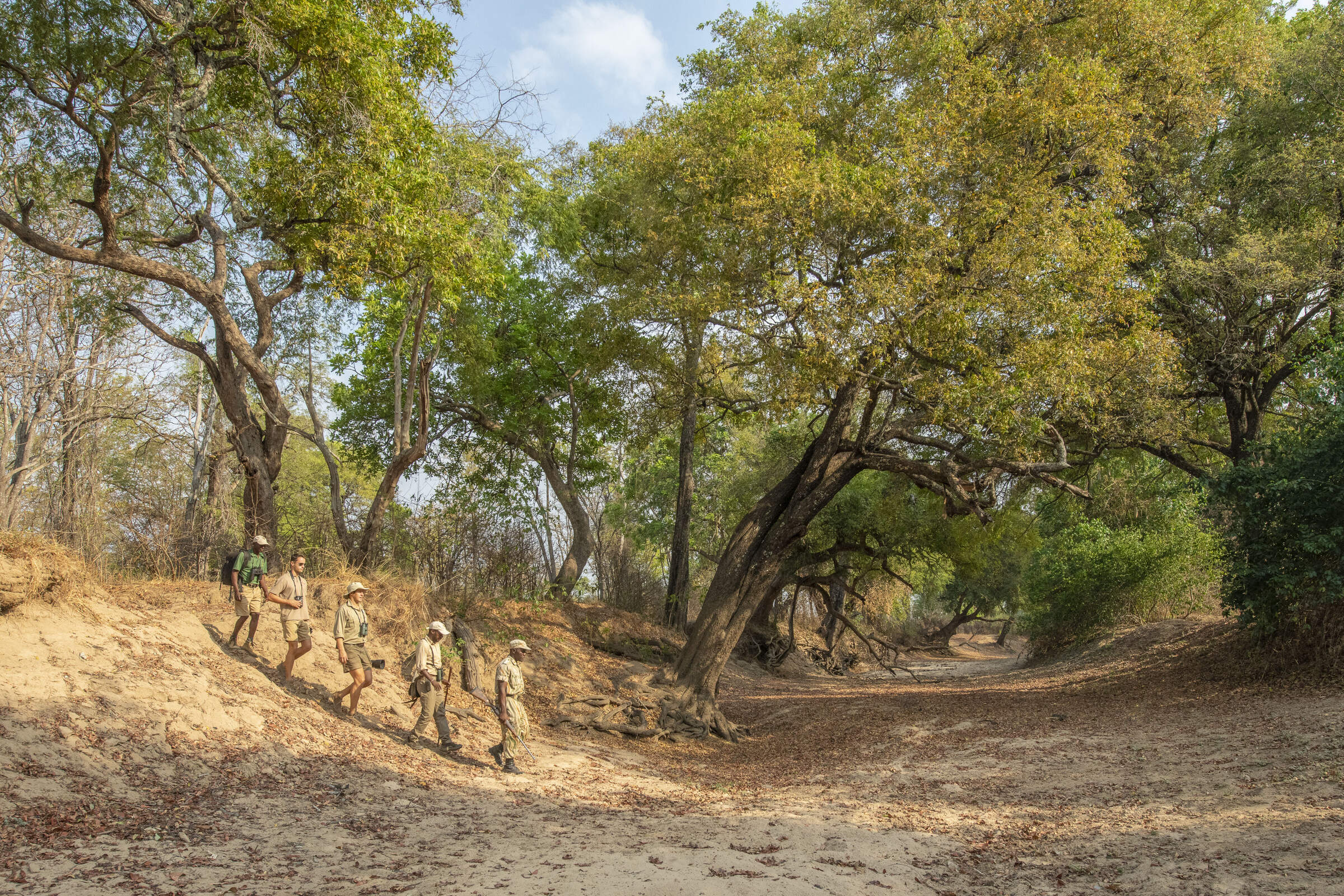
Chikoko Tree Camp
Chikoko Tree Camp is an excellent small, rustic bushcamp that concentrates on walking safaris, and is run by a top-quality operation.
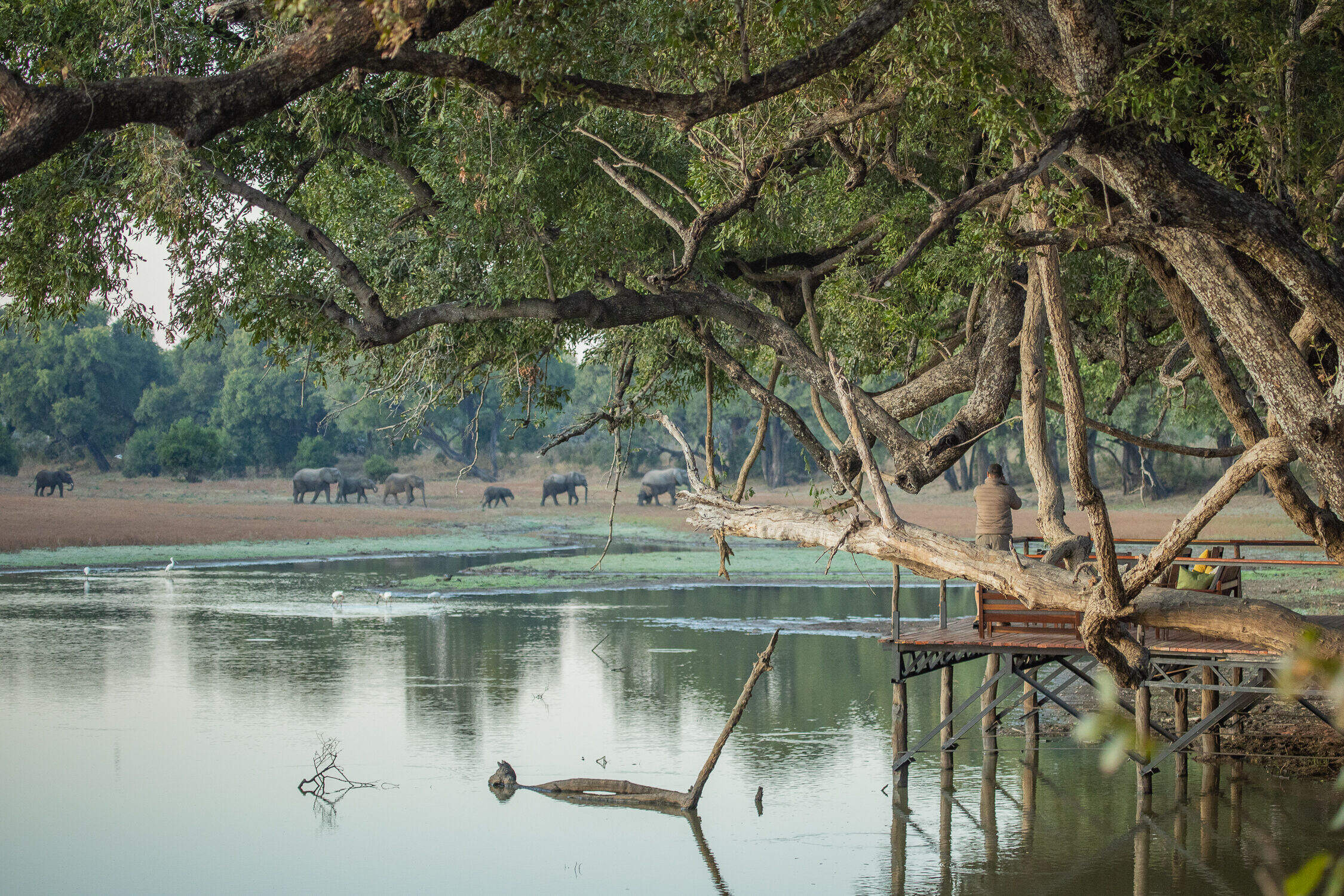
Big Lagoon Camp
Big Lagoon Camp is a great little rustic bushcamp built to high standards that focuses on excellent walking safaris, with the emphasis on top wildlife guides.
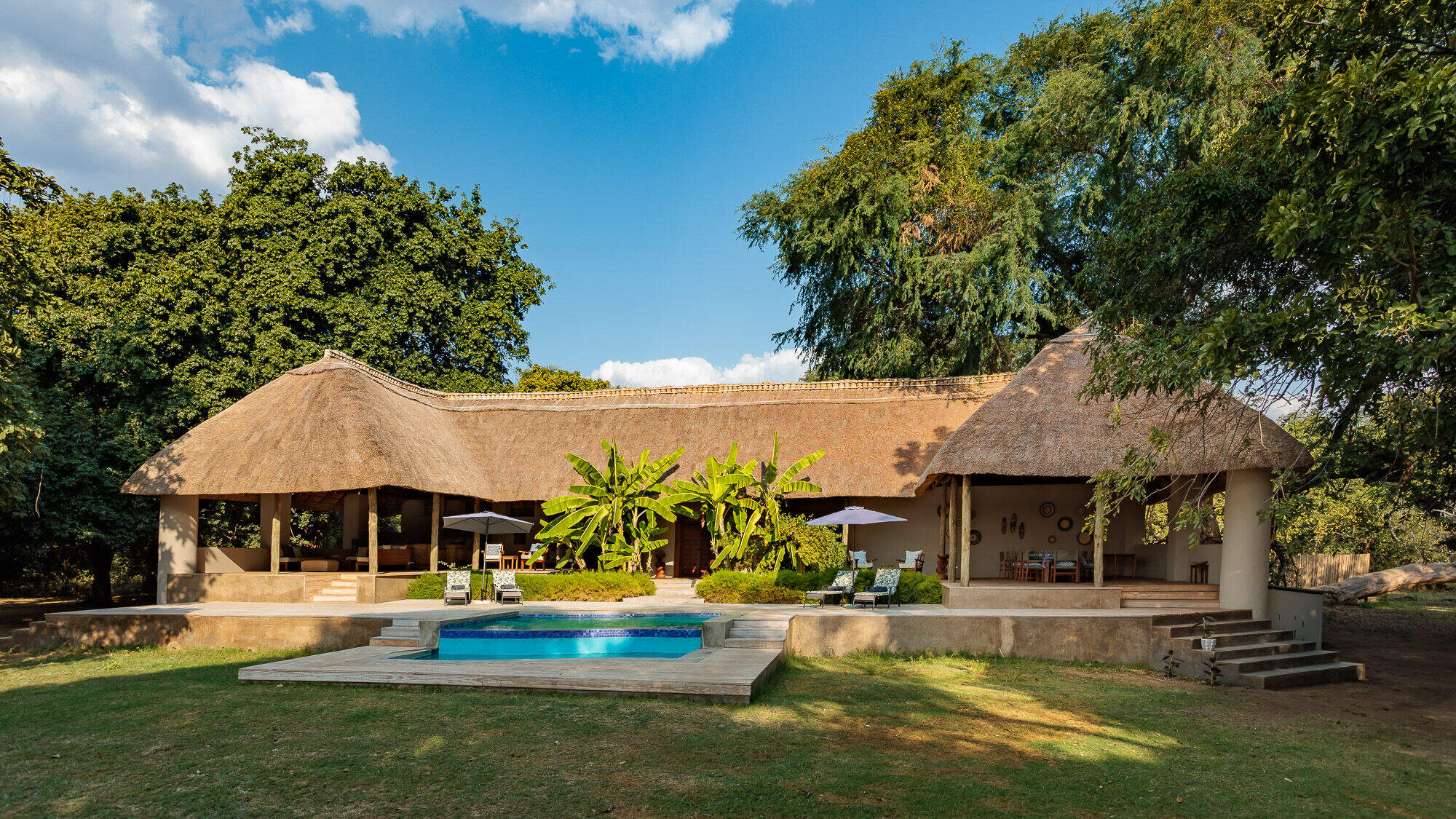
Luangwa River Camp
Luangwa River Lodge is a small and consciously stylish lodge in the Mfuwe area, overlooking the Luangwa River and the South Luangwa National Park beyond – an area renowned for great game.
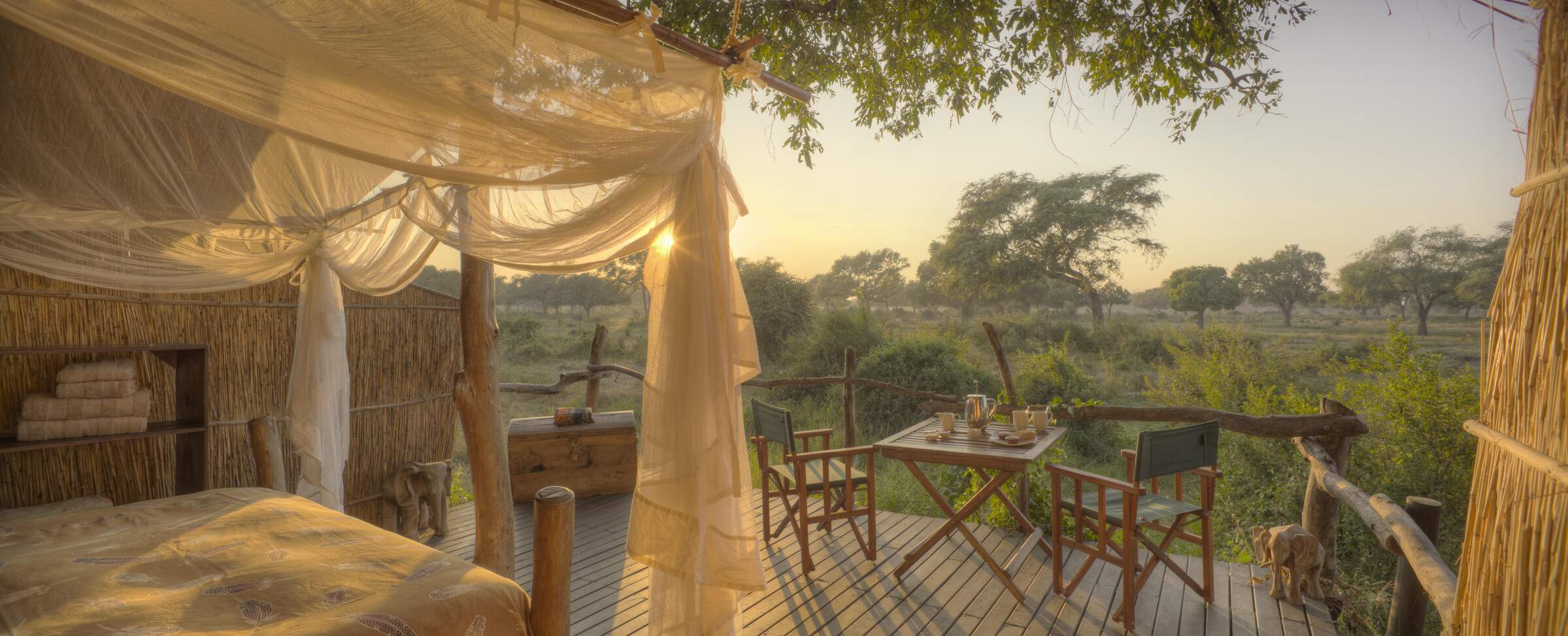
Flatdogs Camp
A relatively big safari camp, Flatdogs offers value for money with great guiding and good food in a comfortable, relaxed setting.
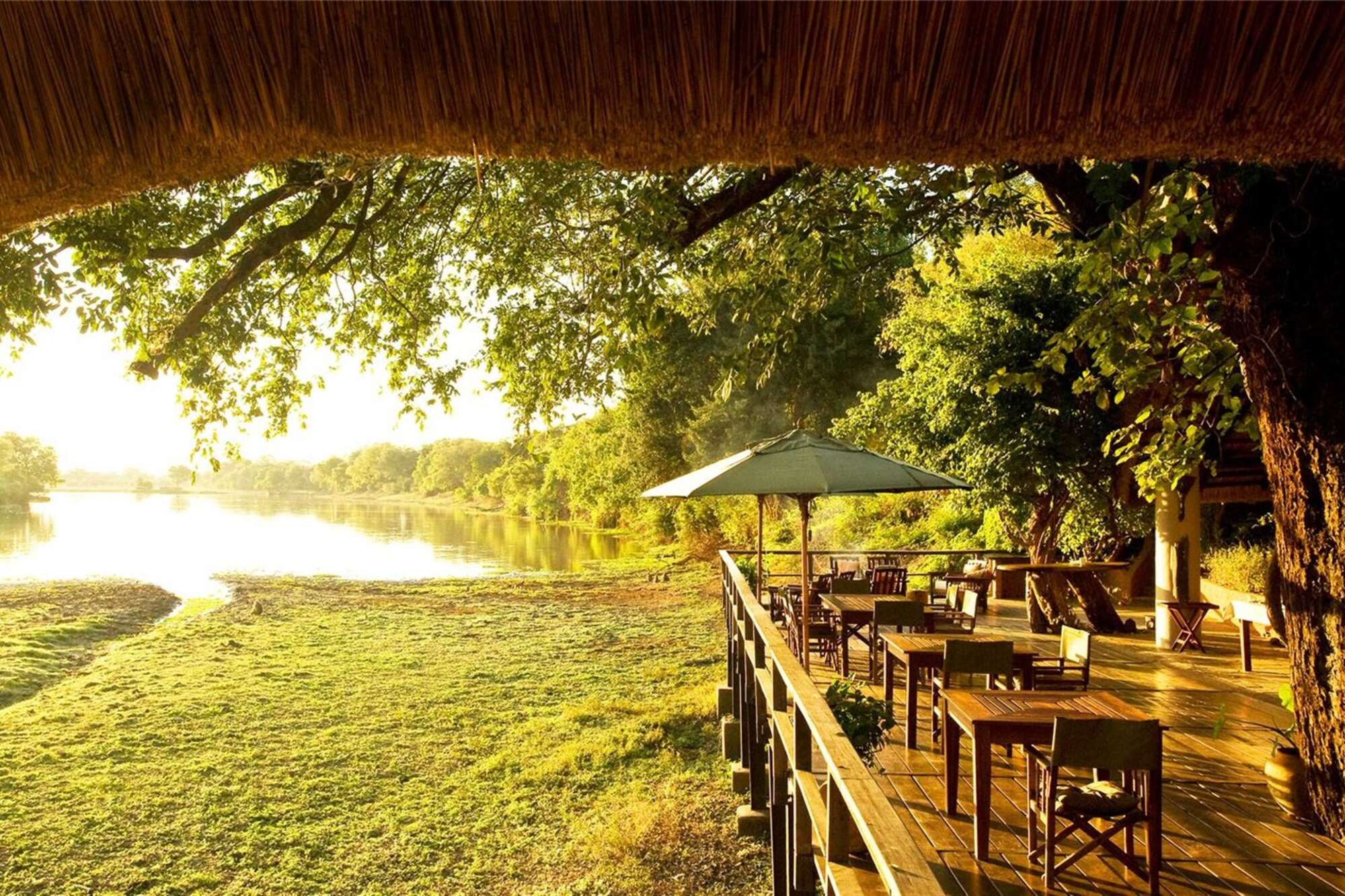
Kapani Lodge
Kapani Lodge is now the main office base for Norman Carr Safaris, one of the Luangwa's oldest safari operations.
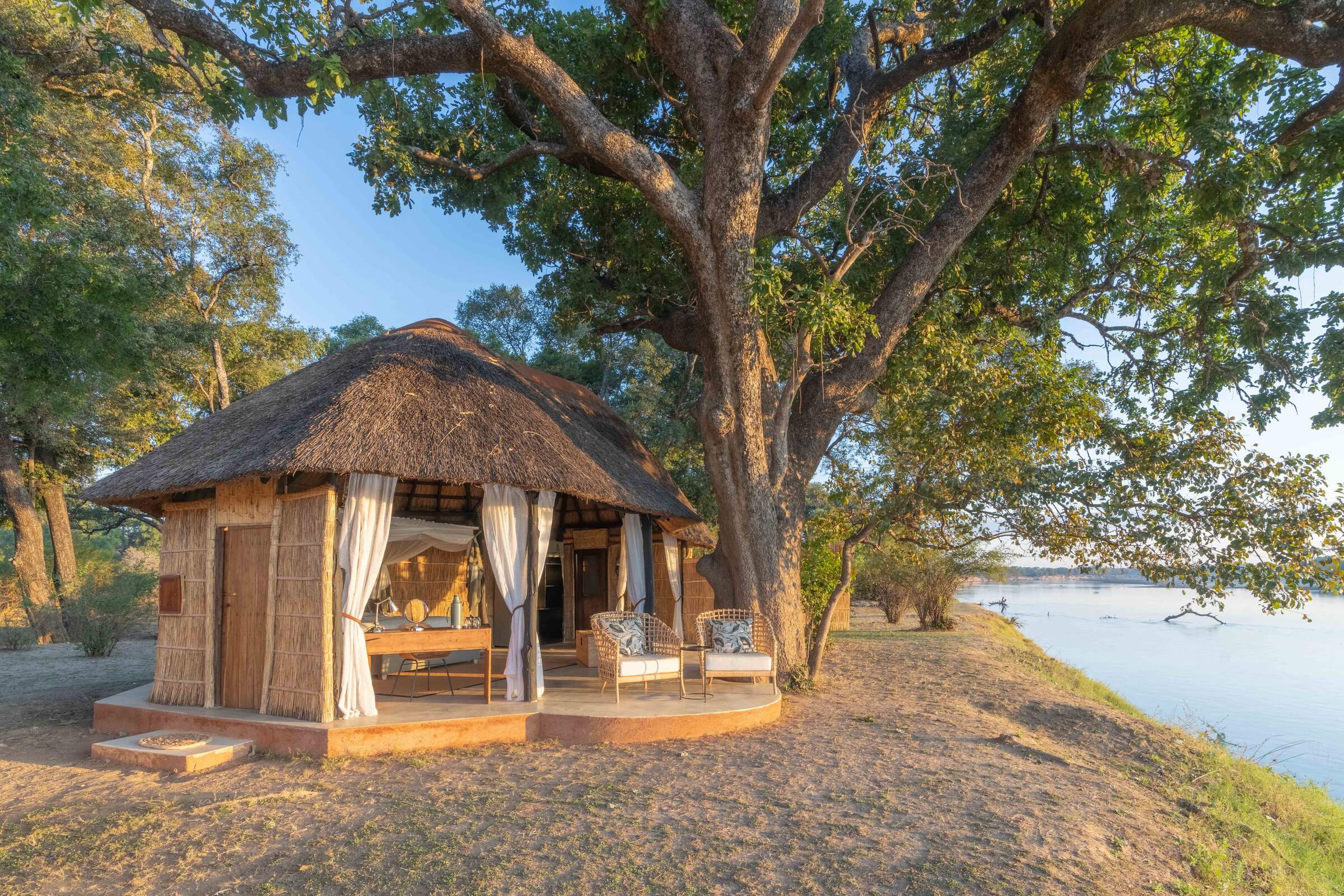
Mchenja Bushcamp
Set in a shady ebony grove on the banks of the Luangwa, Mchenja is a smart tented bushcamp. It combines well with Kakuli and Nsolo – its sister camps with a focus on walking safaris.
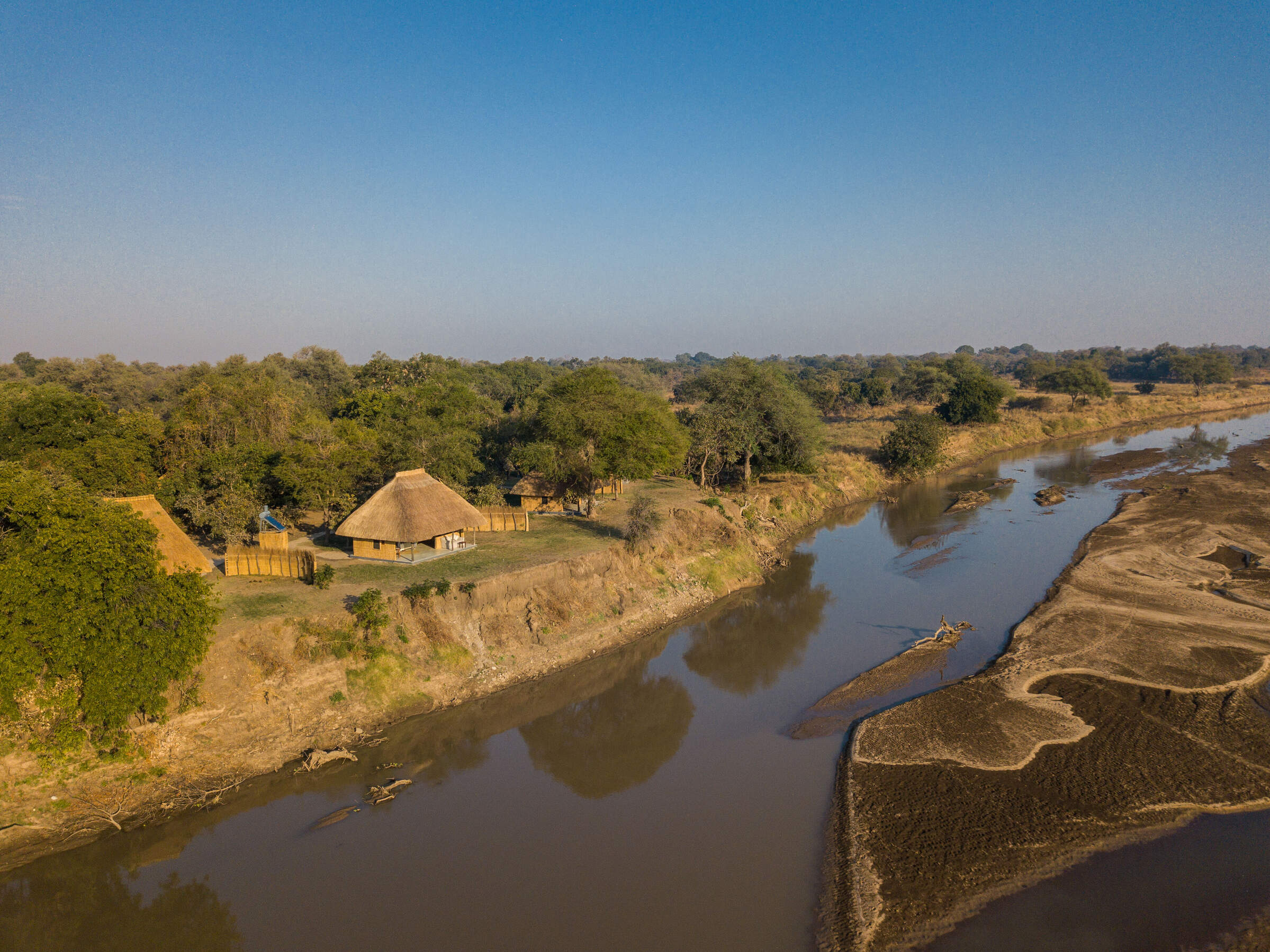
Kakuli Bushcamp
Beside the Luangwa River, Kakuli is a comfortable tented bushcamp offering 4WD safaris and walking safaris – the best of which are camp-to-camp walks linking Kakuli with its nearby sister camps.
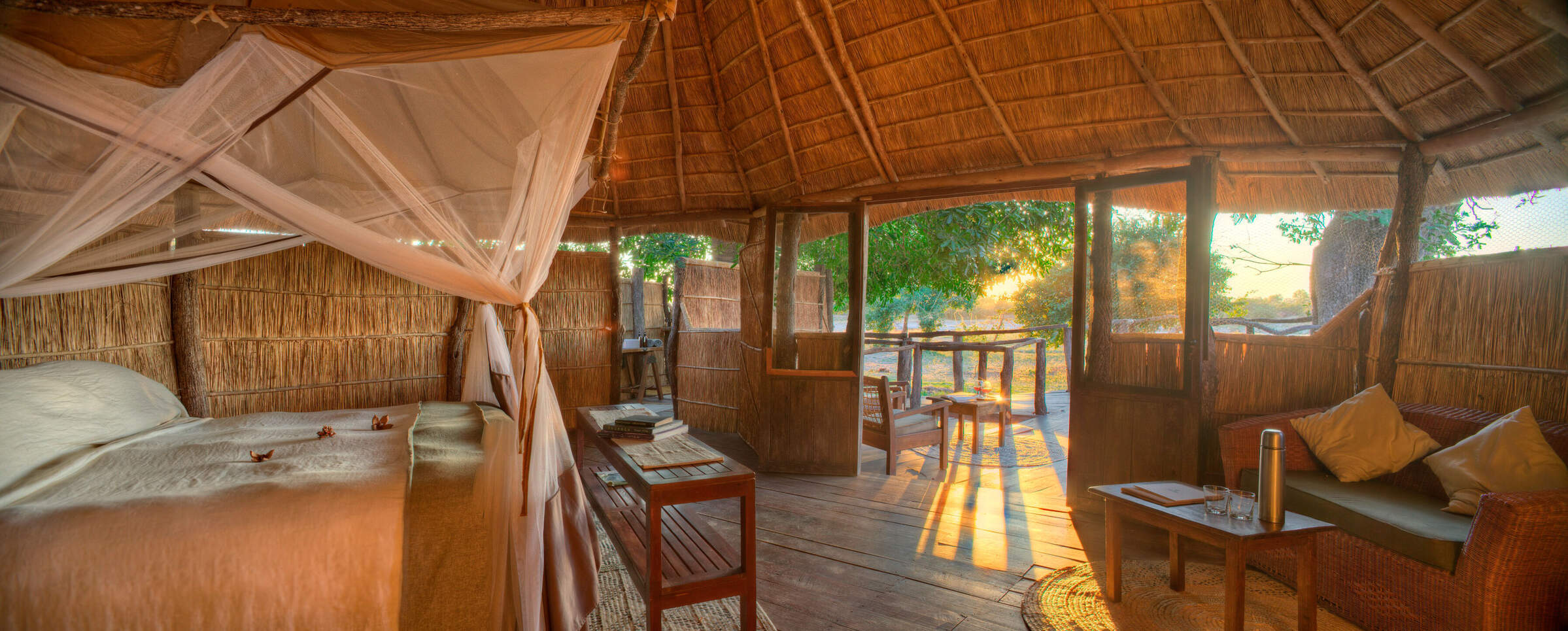
Nsolo Bushcamp
Nsolo is a small, comfortable bushcamp overlooking one or two pools in the usually dry Luwi riverbed. It concentrates on walking safaris in an interesting and diverse area, led by a knowledgeable guide.
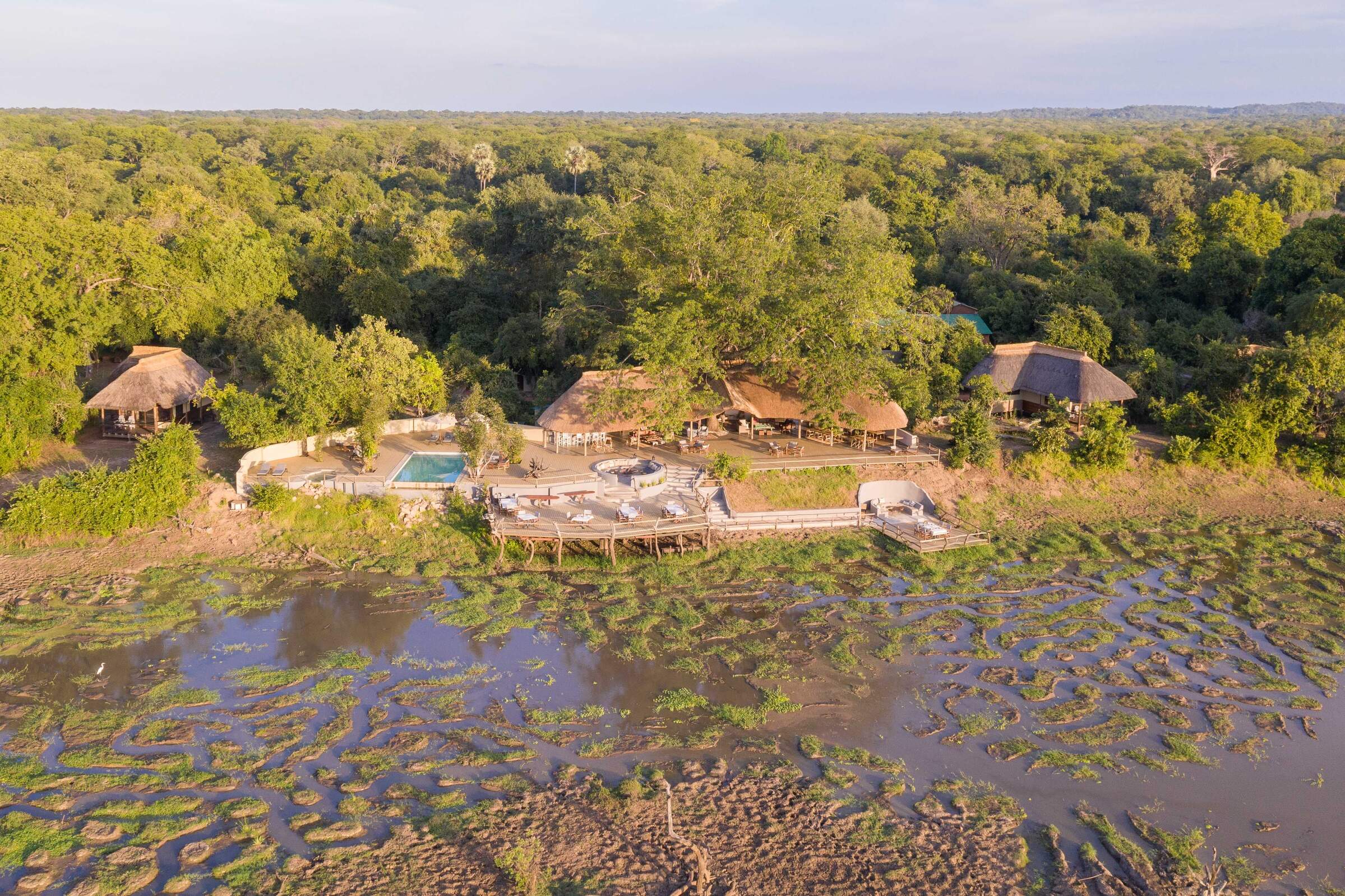
Kafunta River Lodge
Kafunta is a laid-back, friendly and good-value lodge on the outskirts of South Luangwa National Park.
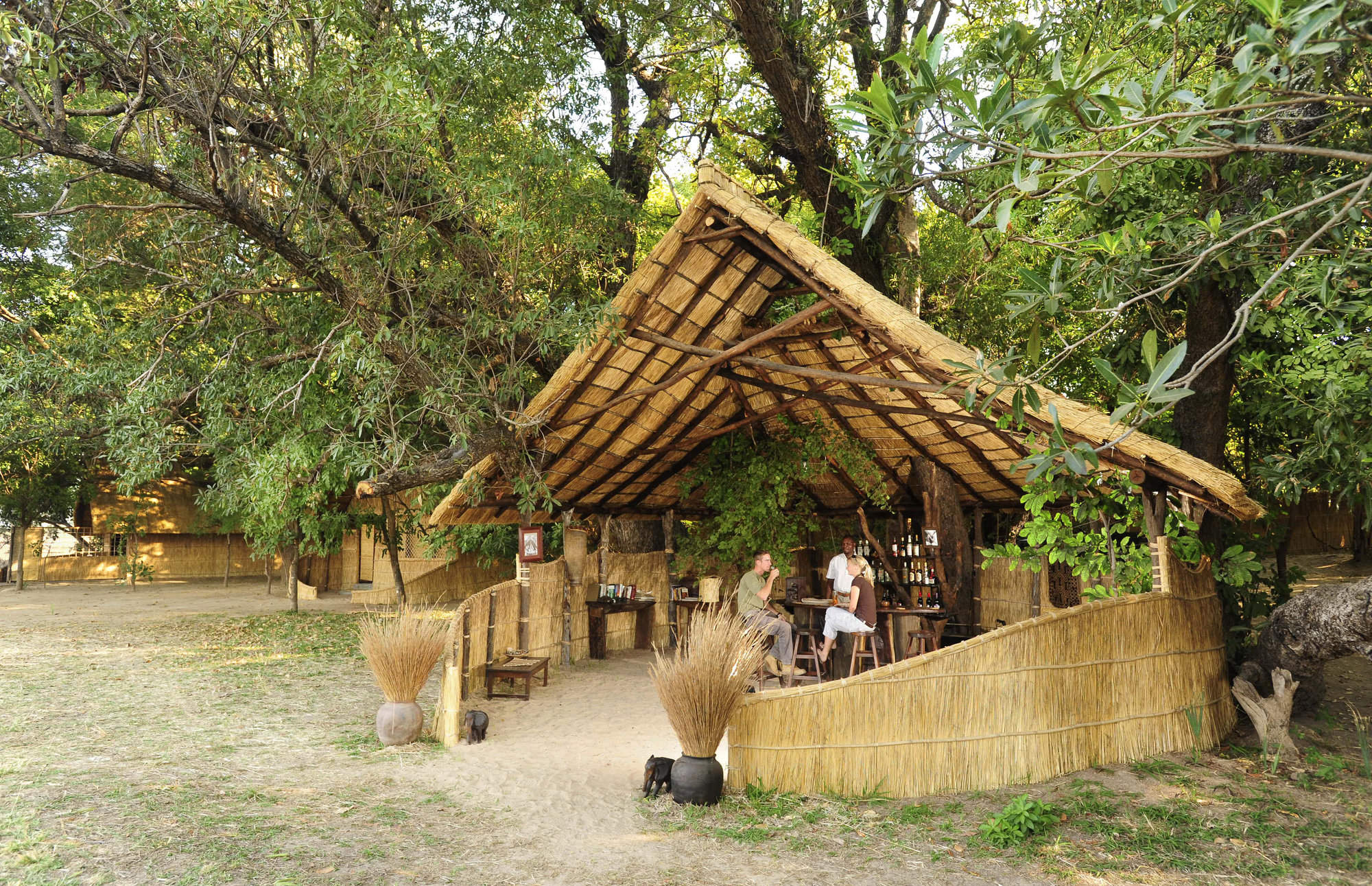
Luwi Bushcamp
In a remote part of the South Luangwa National Park, Luwi is a rustic bushcamp whose emphasis is on walking safaris with great guiding and a chance of seeing some rarely seen and elusive antelope.
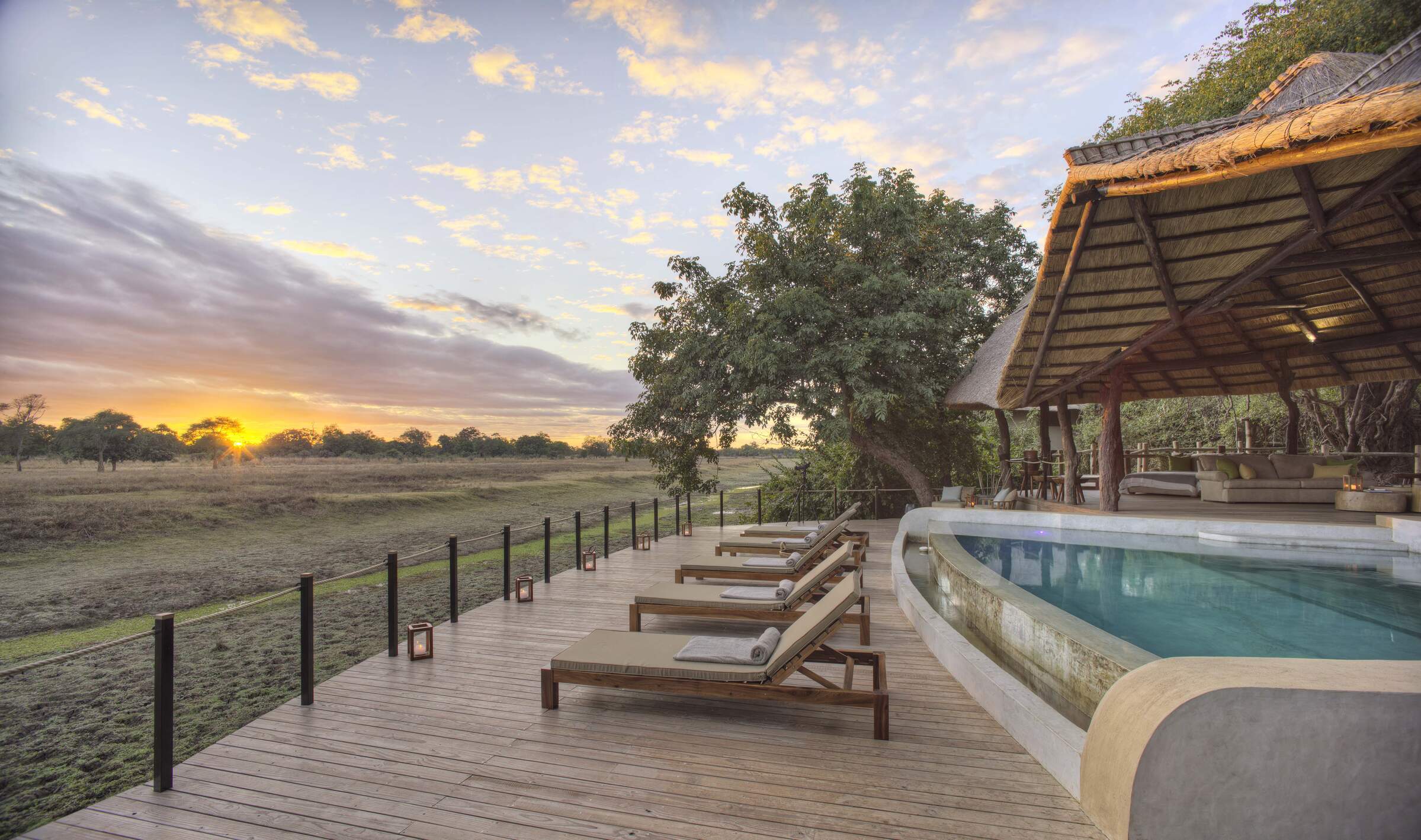
Lion Camp
Lion Camp is an established and comfortable camp with a swimming pool, located near to the game-rich Lion Plain in the northern part of South Luangwa National Park.
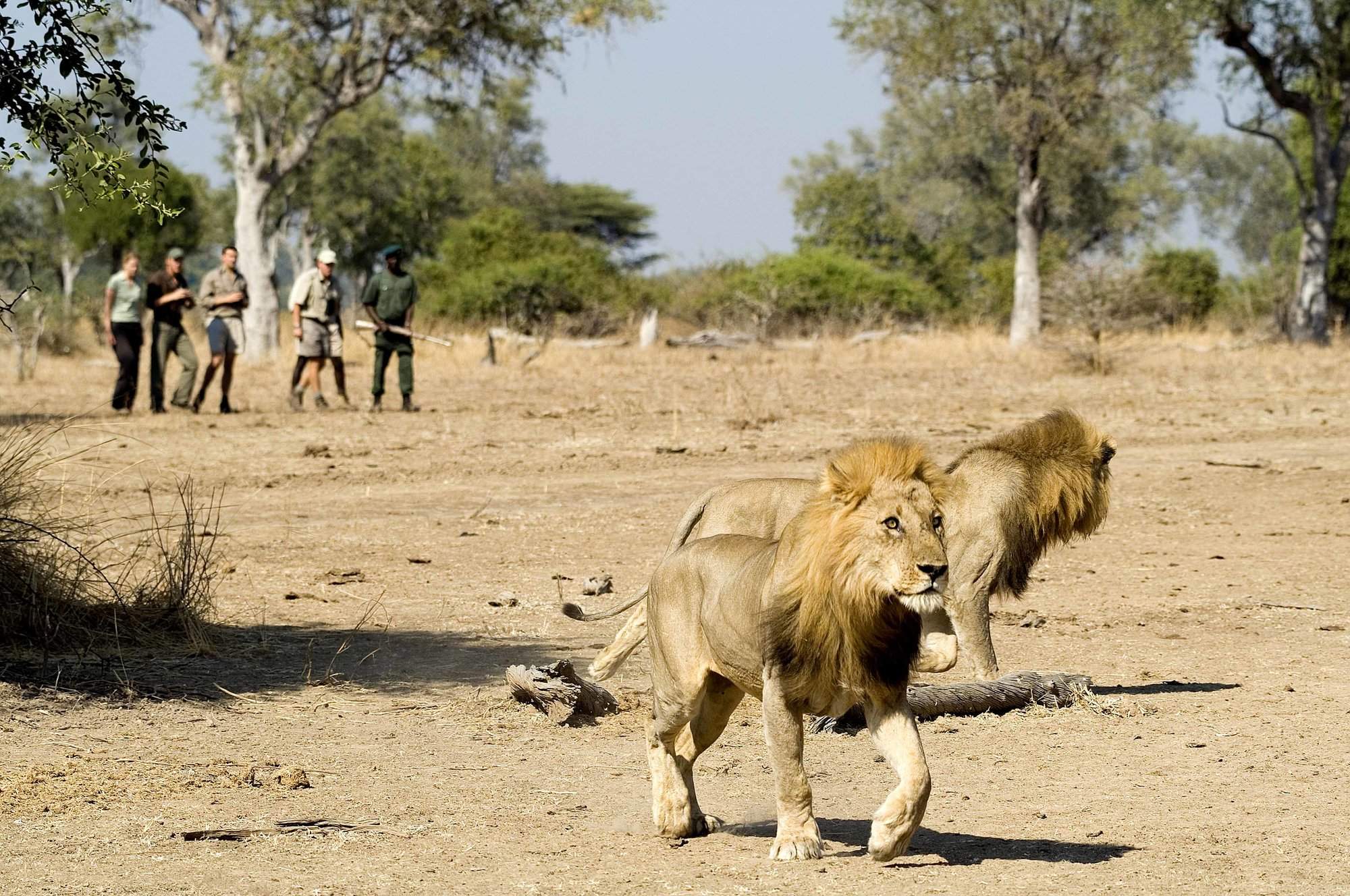
Robin Pope mobile
RPS mobile safari camps are at the heart of their set-itinerary walking safaris in South Luangwa National Park, which start and finish at a permanent camp.
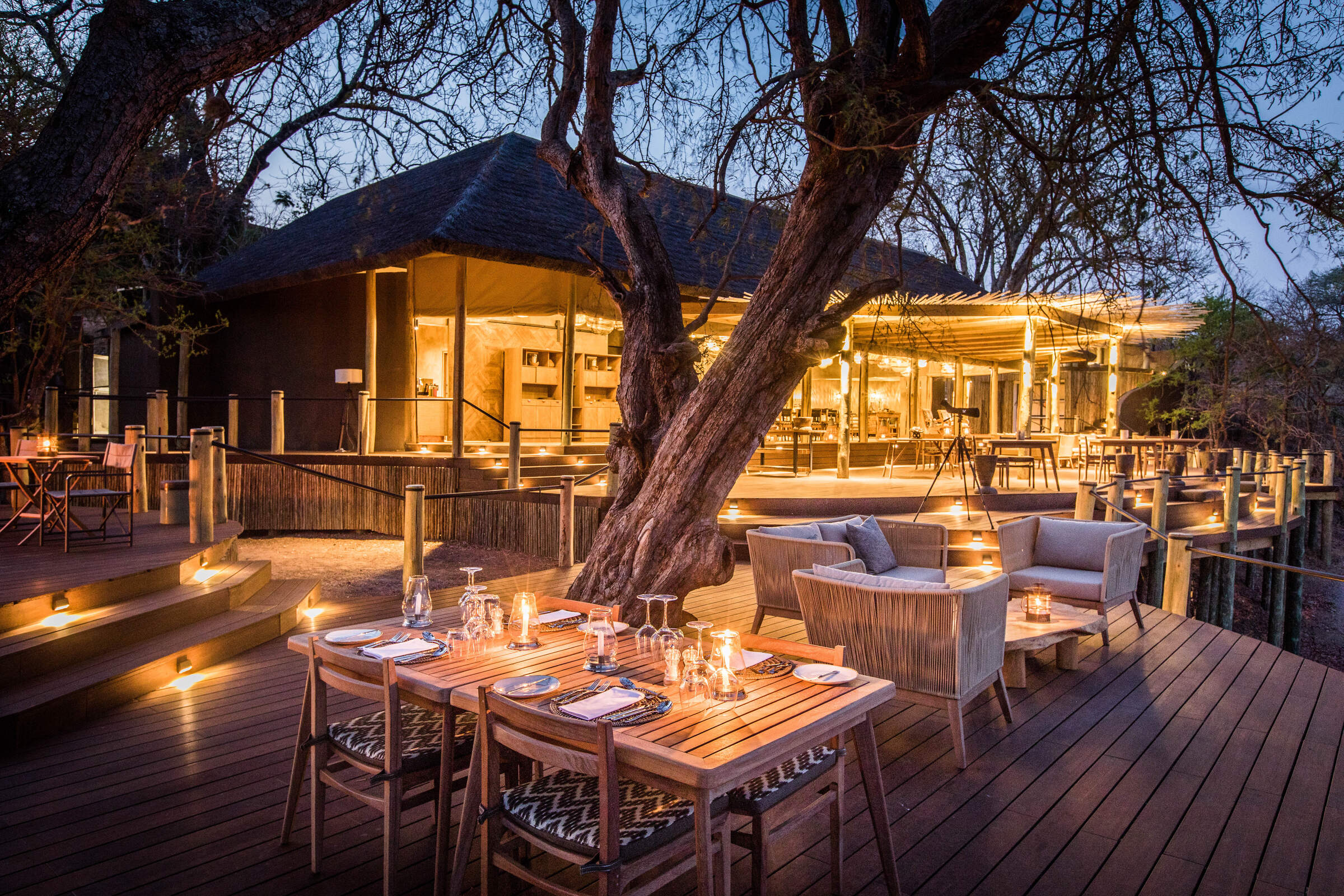
Puku Ridge
Puku Ridge is a luxurious designer camp set in a stunning location, high on a hill overlooking a floodplain within South Luangwa. Explore from here on 4WD safaris and walks.
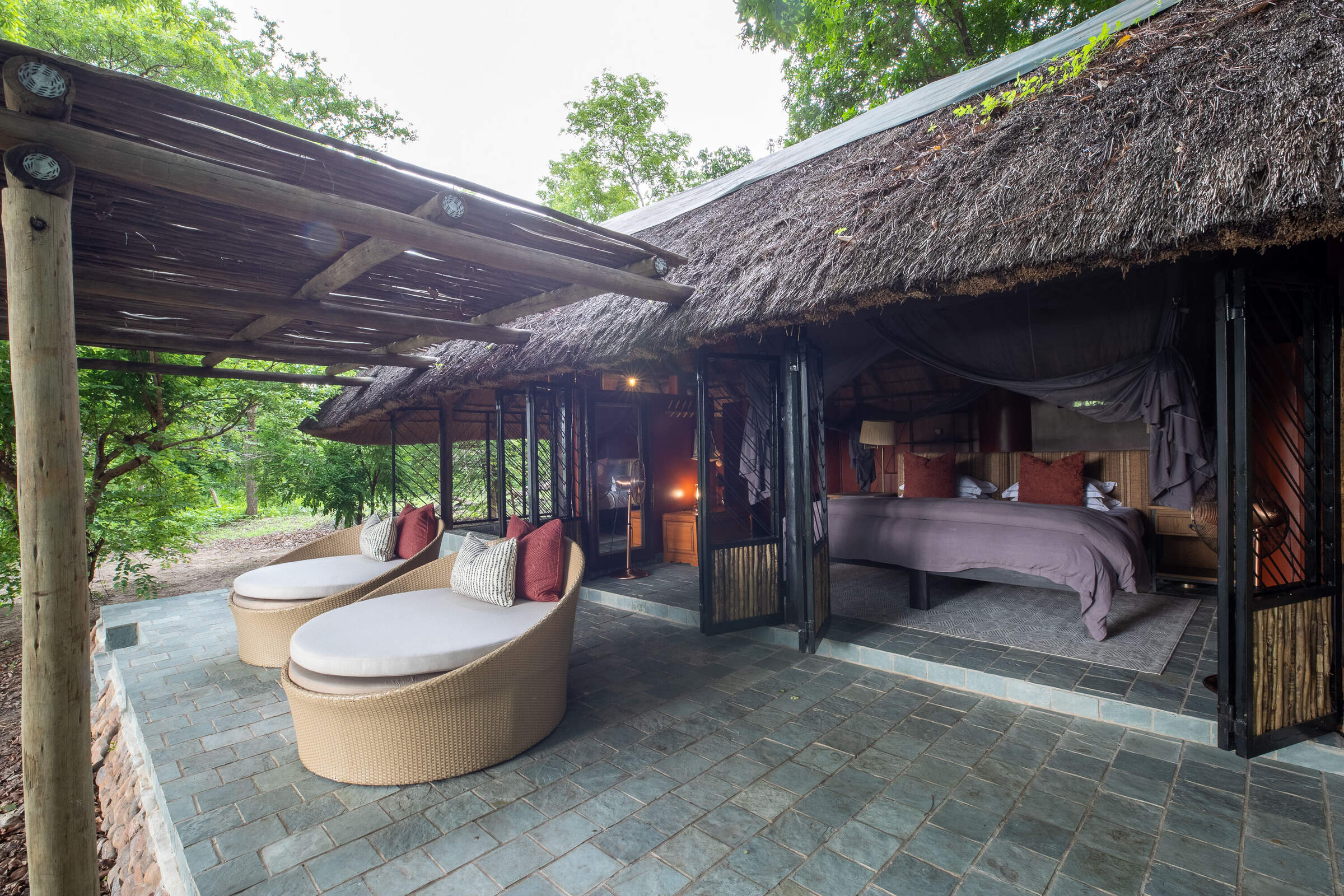
Kapamba Bushcamp
In the remote far south of South Luangwa National Park, Kapamba is a small and very comfortable bushcamp offering good walks and game drives.
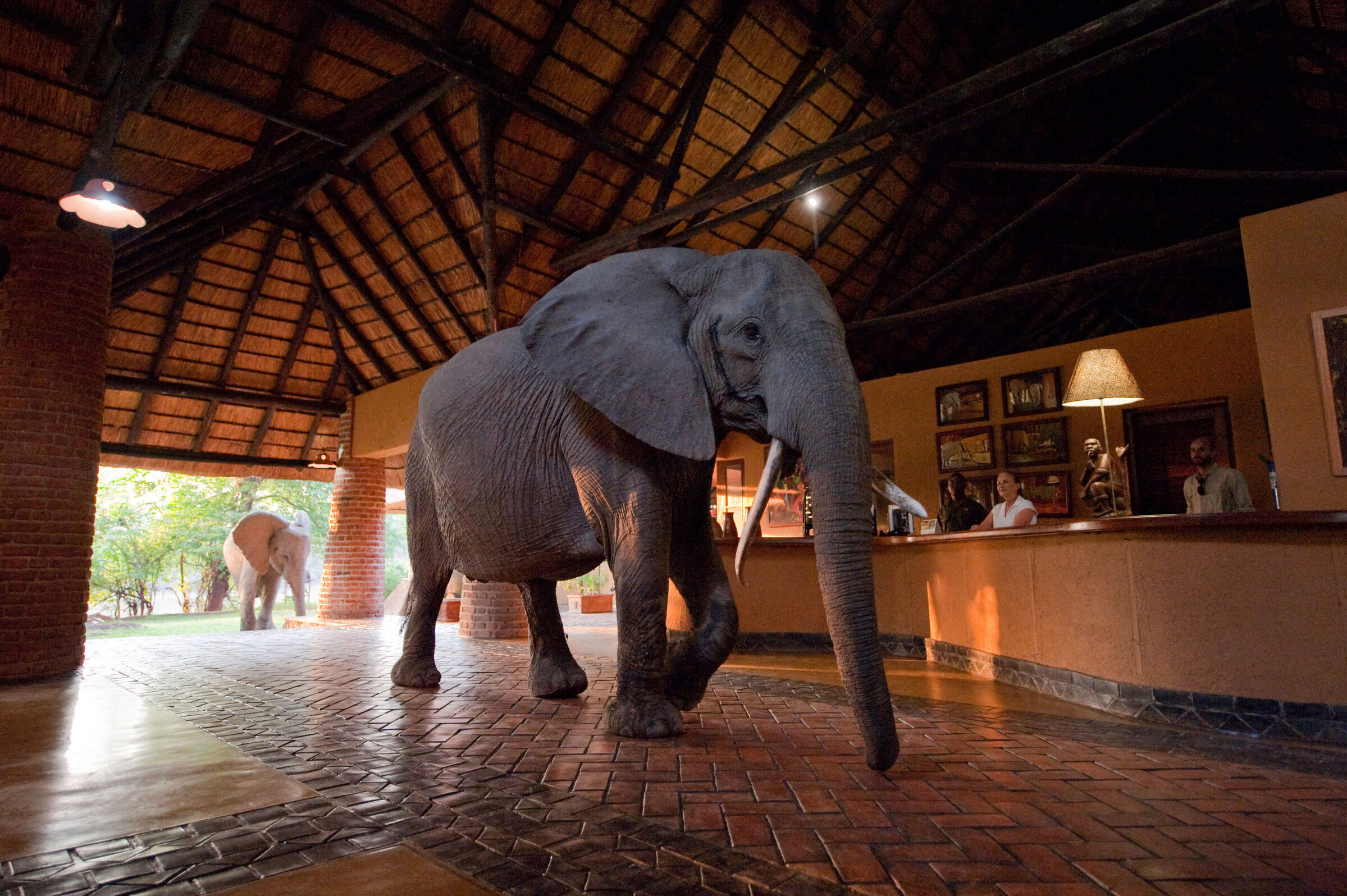
Mfuwe Lodge
In a game-rich area close to the South Luangwa’s main Mfuwe Gate, Mfuwe Lodge is relatively large by park standards, but it’s stylish, modern and family friendly.
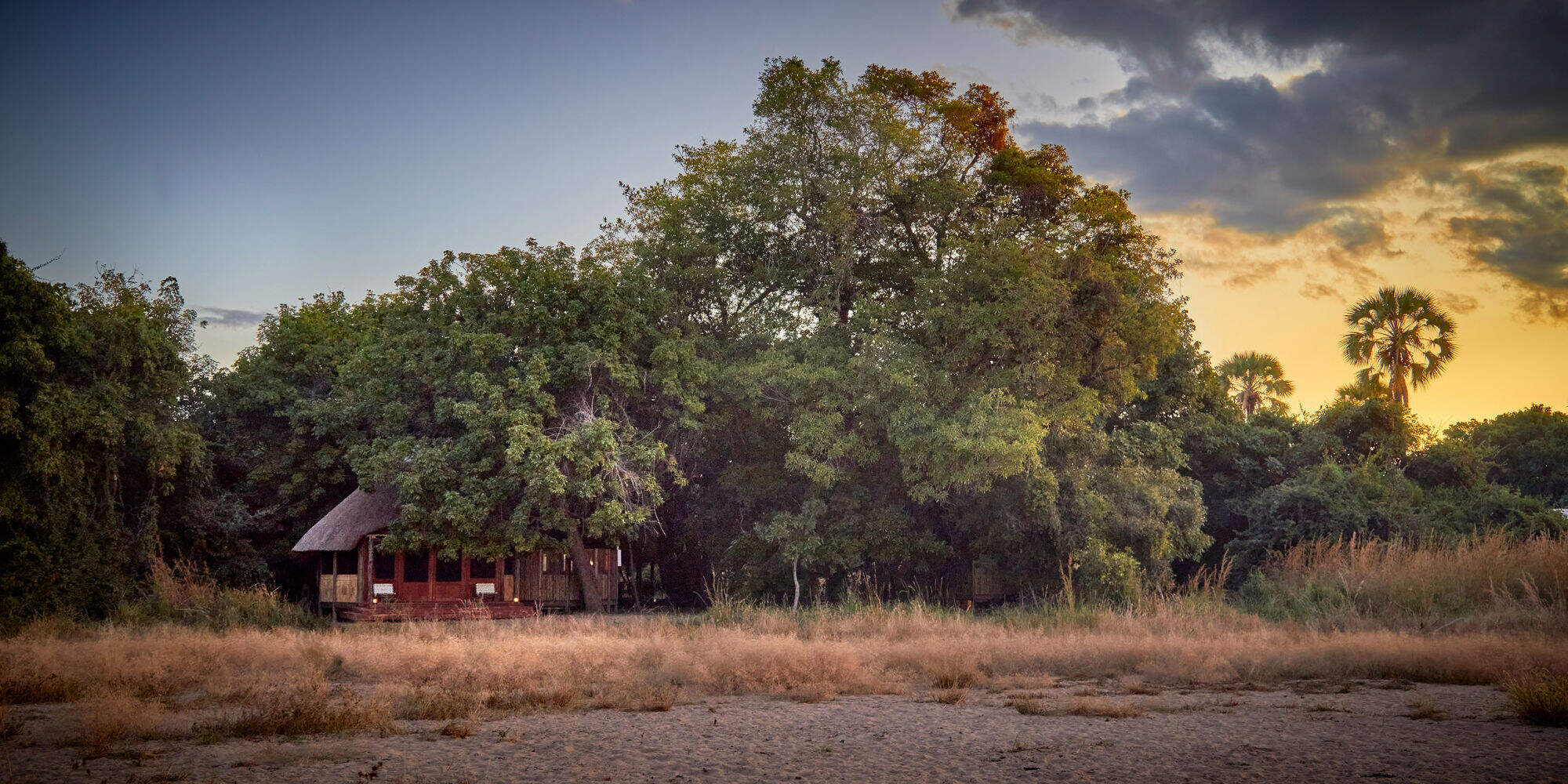
Kuyenda Bushcamp
Kuyenda Bushcamp is a classic bushcamp with particularly delightful hosts and offers top-class walking safaris in South Luangwa National Park.
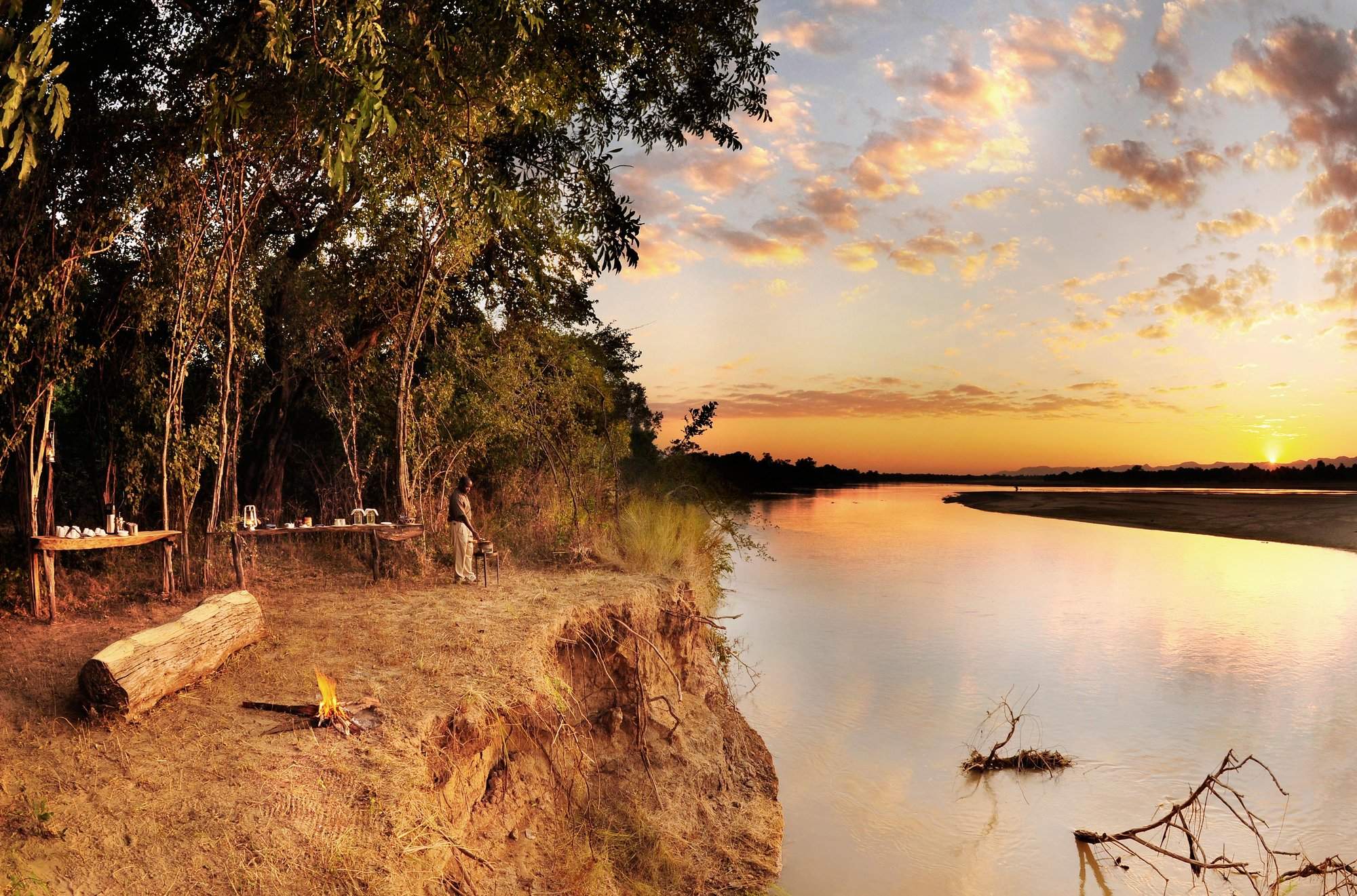
Bilimungwe Bushcamp
A smart bushcamp with four very spacious chalets, Bilimungwe offers interesting walking safaris in pretty riverine woodland, as well as day and night safari drives.
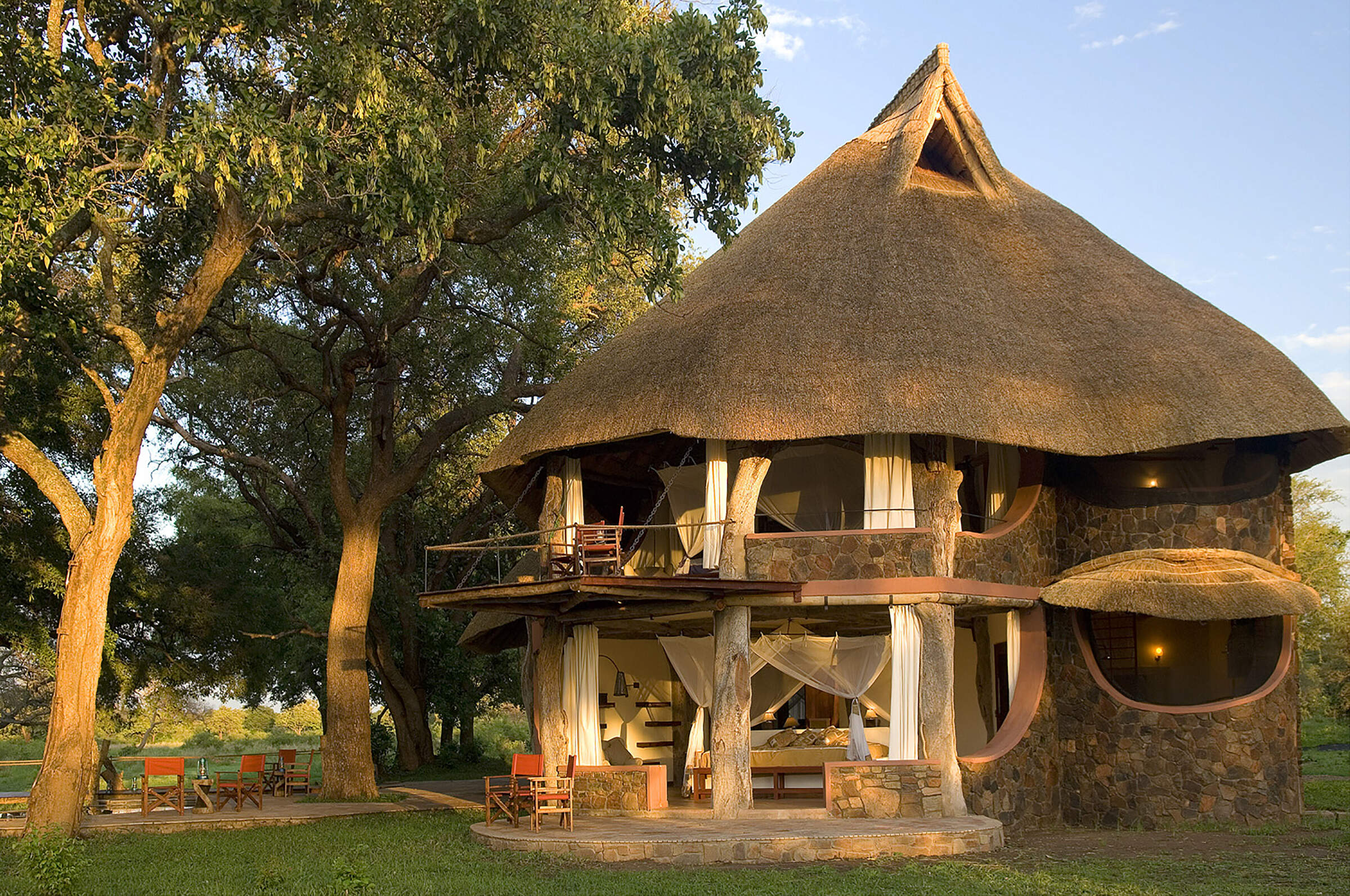
Luangwa Safari House
Luangwa Safari House is a vast and very smart four-bedroom house specifically designed for families and small groups, and offering an exclusive and flexible safari experience.
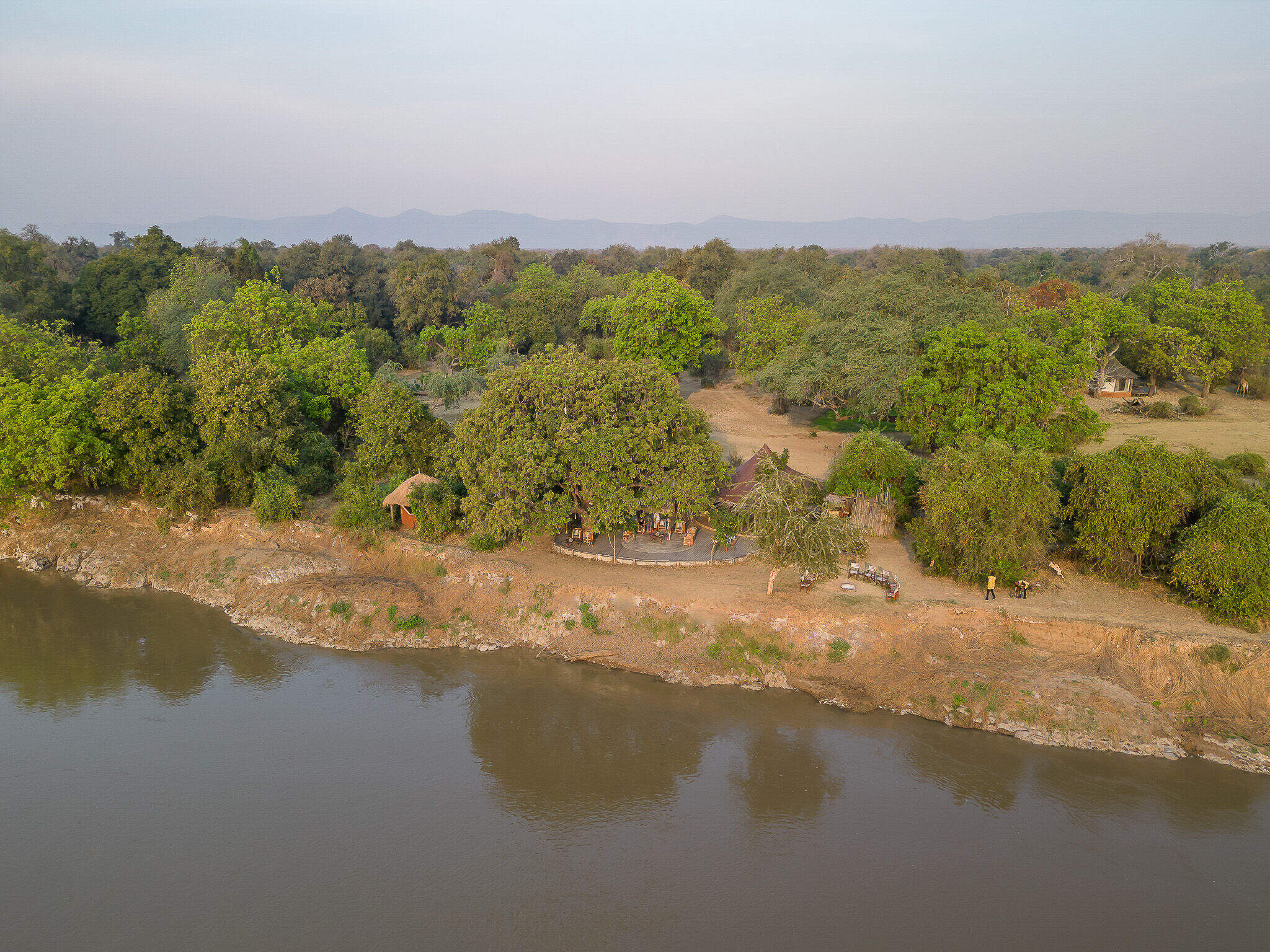
Three Rivers Camp
In the remote far south of South Luangwa National Park, Three Rivers Lodge sits at the confluence of three of the valleys rivers.
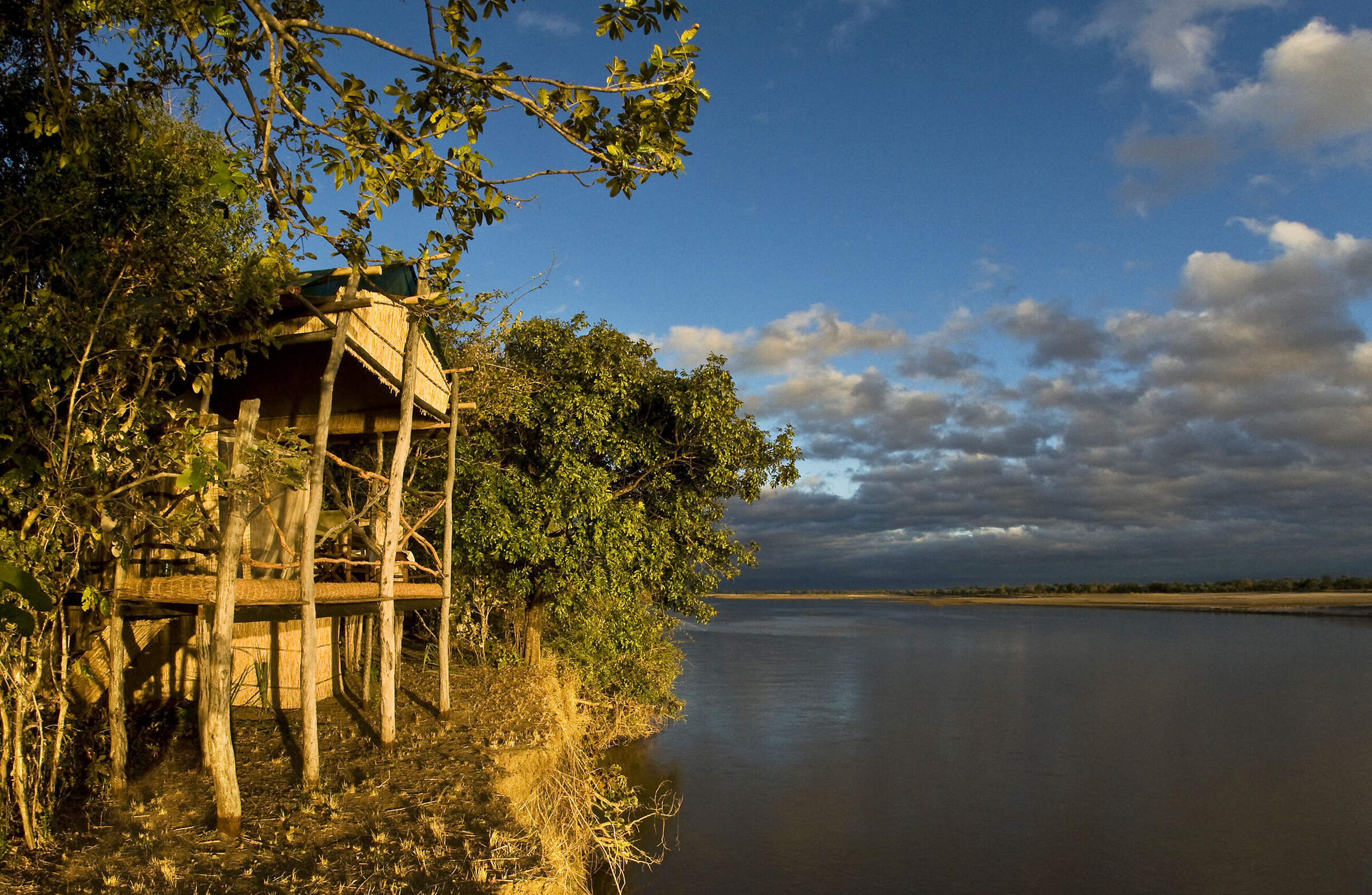
Island Bush Camp
Island Bushcamp is a good-value, rustic, walking-only camp, in arguably one of the most remote parts of the South Luangwa, well away from all other camps.
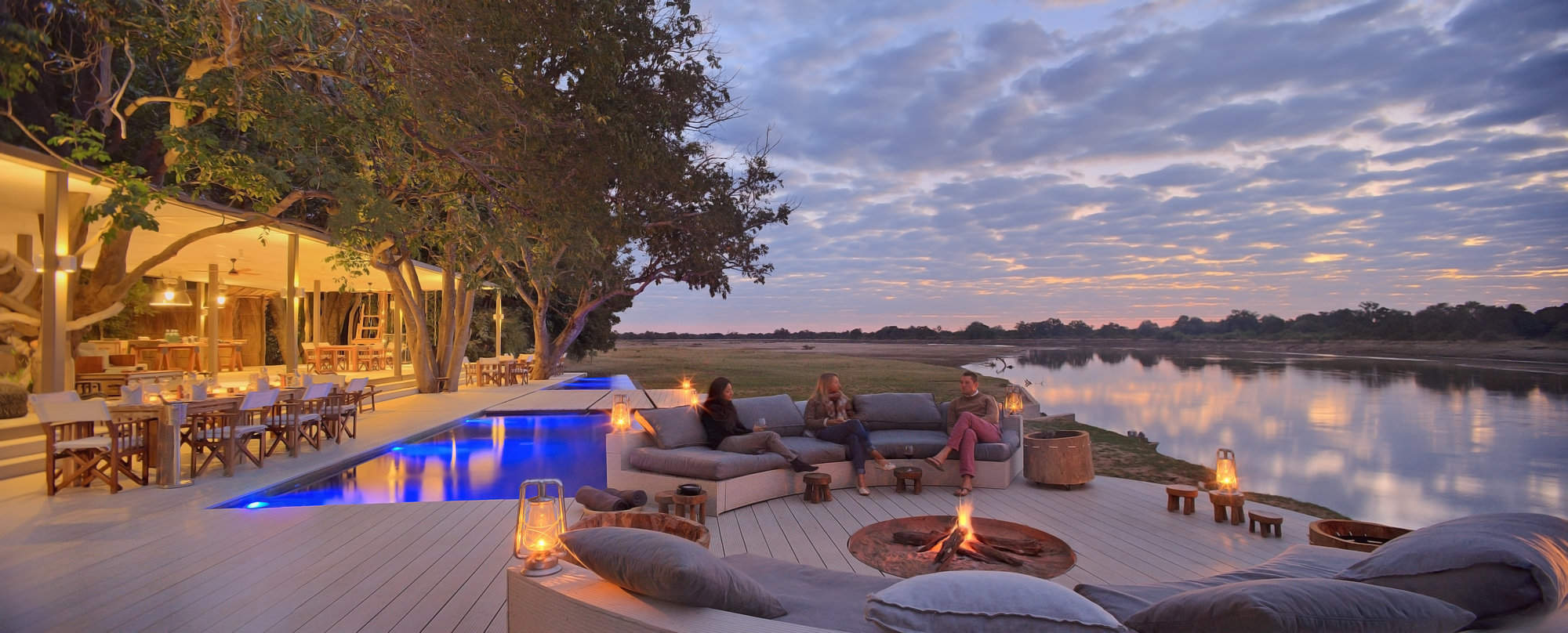
Chinzombo
Opened in early June 2013, Chinzombo offers luxurious and stylish accommodation with very high levels of service and excellent guiding.
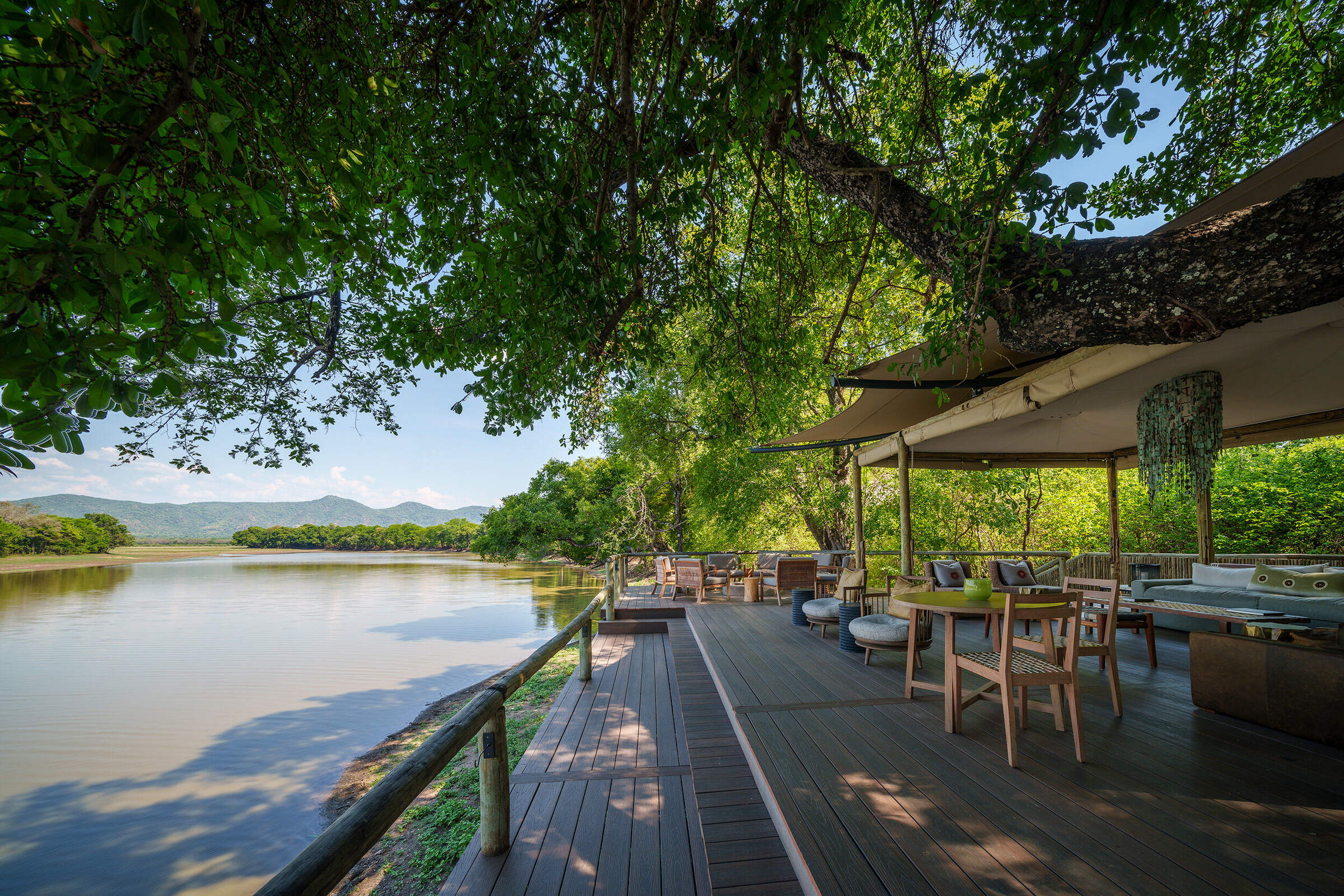
Chindeni
Chindeni Bushcamp is a very modern and minimalist camp, which is a far cry from your traditional bushcamp and unlike most of the other camps in South Luangwa.
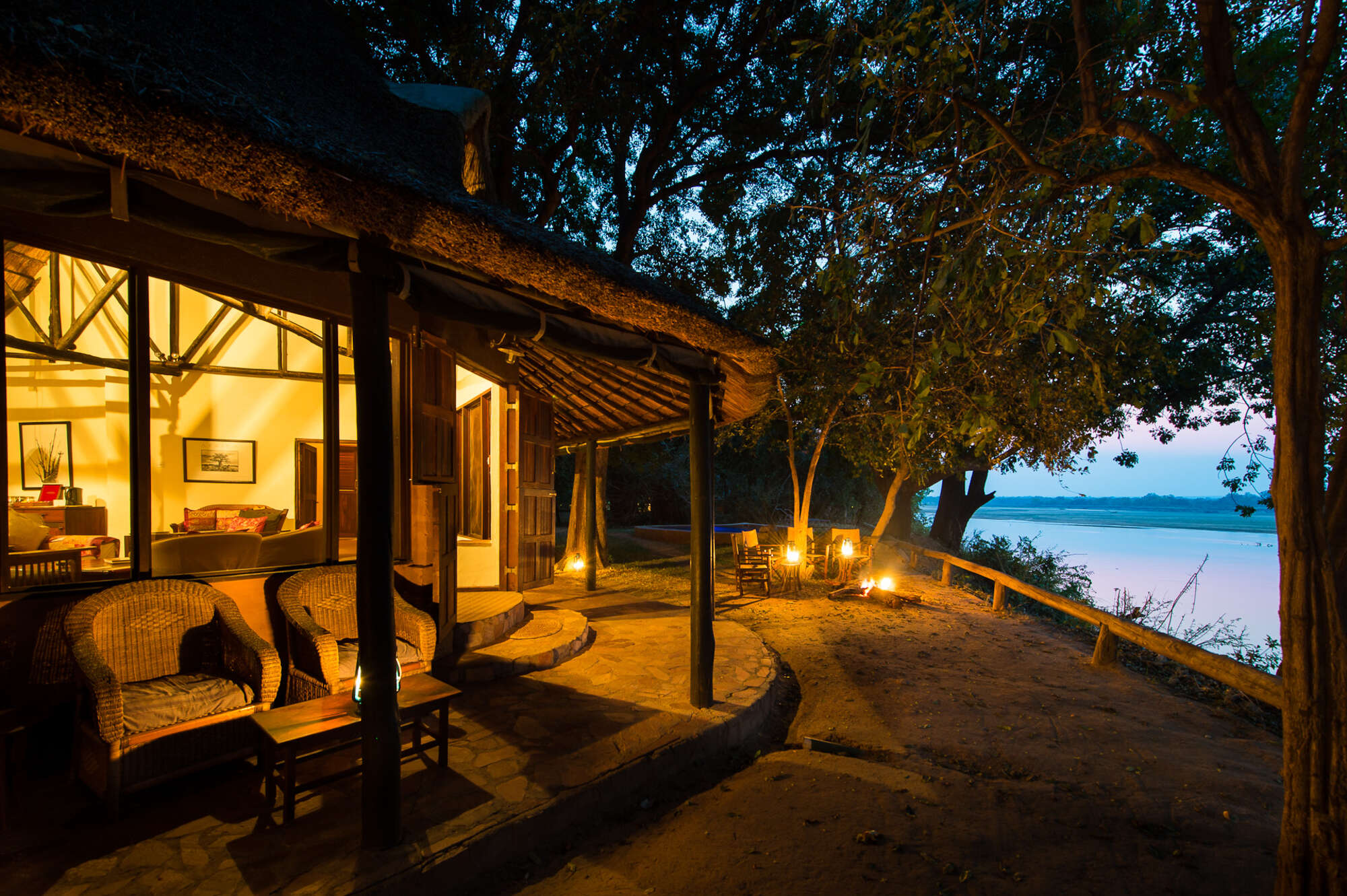
Robin's House
With your own expert guide, private vehicle, chef and valet, the two-bedroom Robin's House offers an exclusive, flexible safari experience – and is open year round.
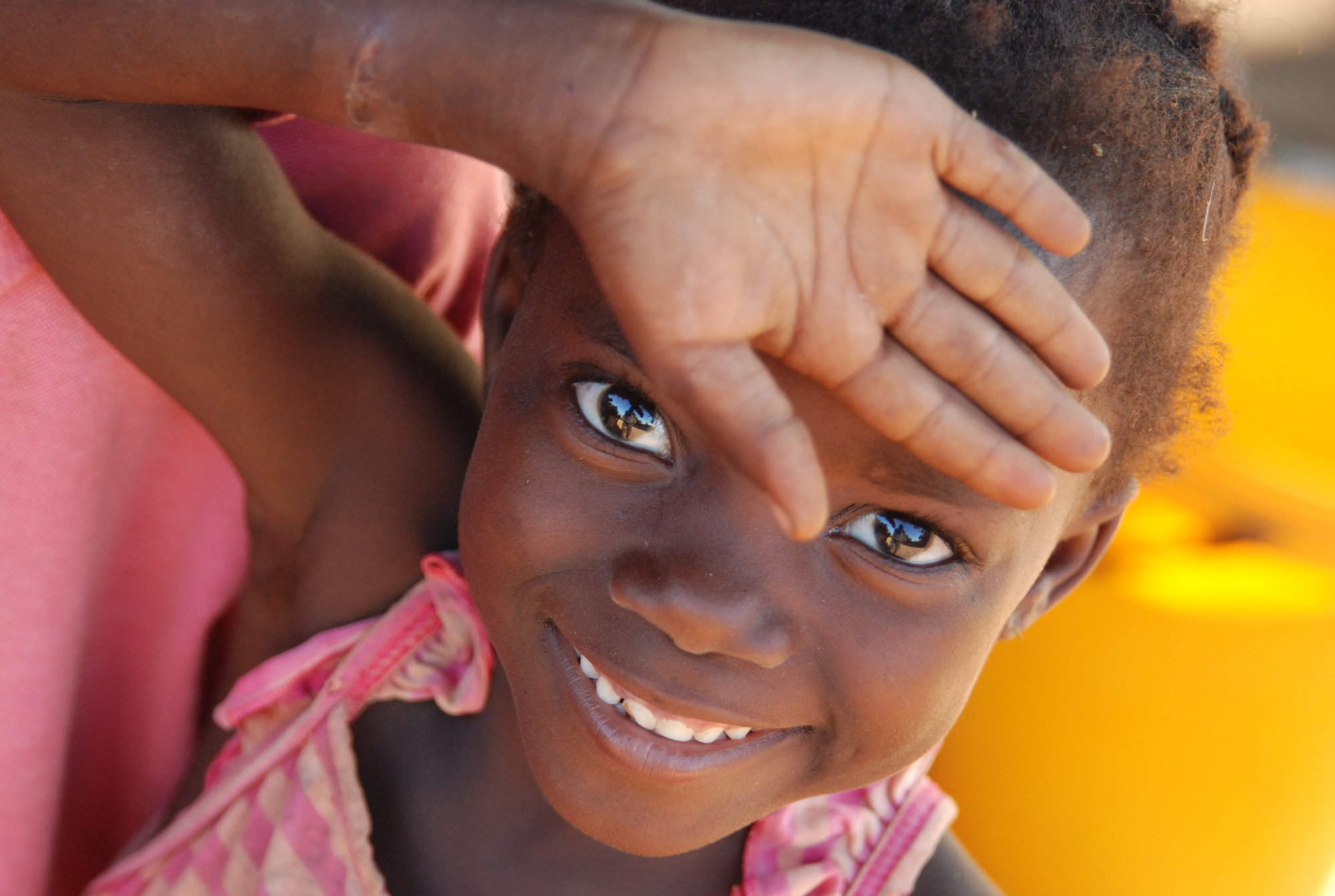
Kawaza Village
Kawaza Village – beside the South Luangwa National Park, offers guests the rare opportunity to appreciate local village life. Visit for a few hours or stay overnight.
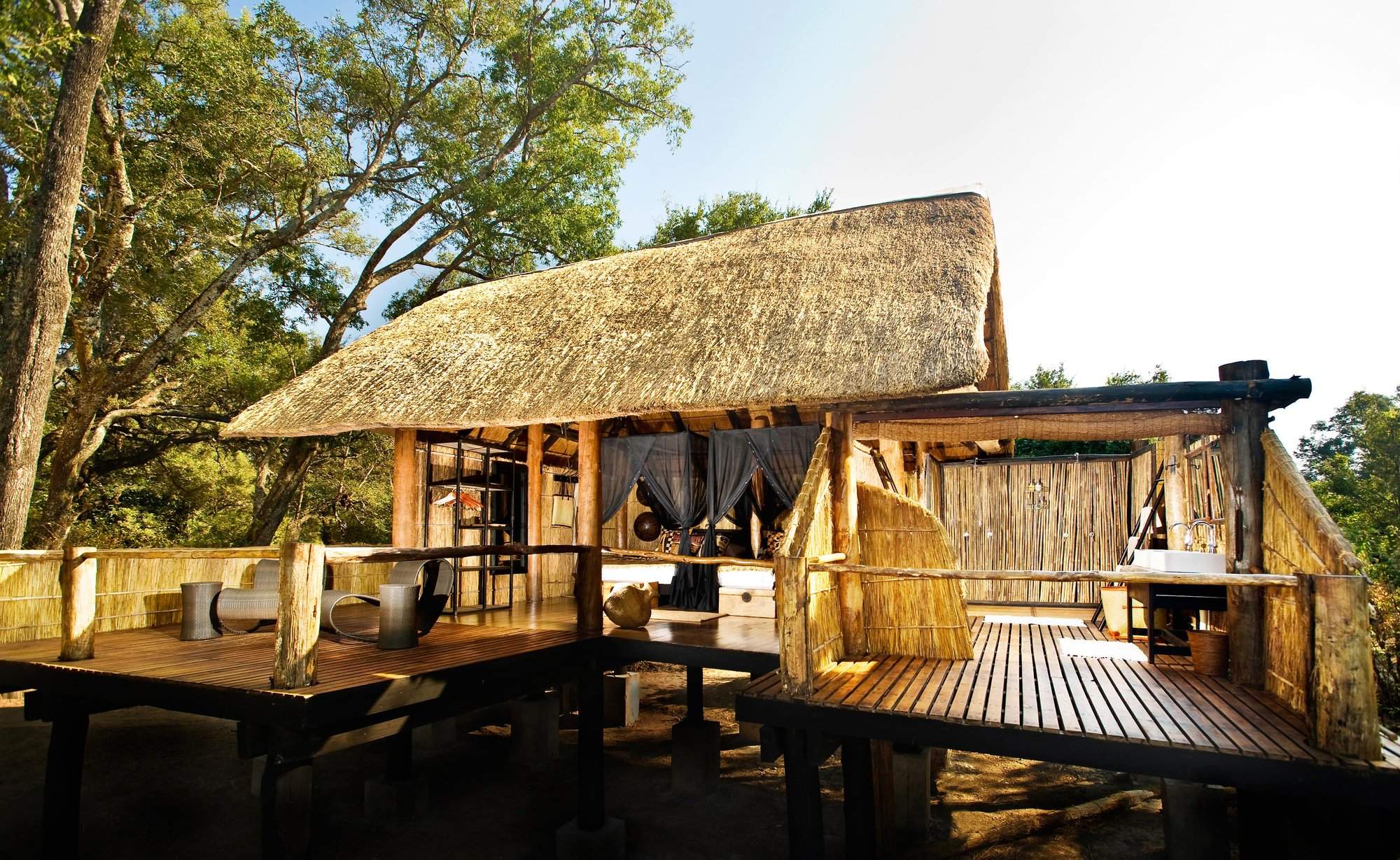
Chamilandu Bushcamp
A comfortable little bushcamp, Chamilandu has a picturesque setting by the Luangwa River, in an area with a range of habitats to explore on foot and by 4WD.
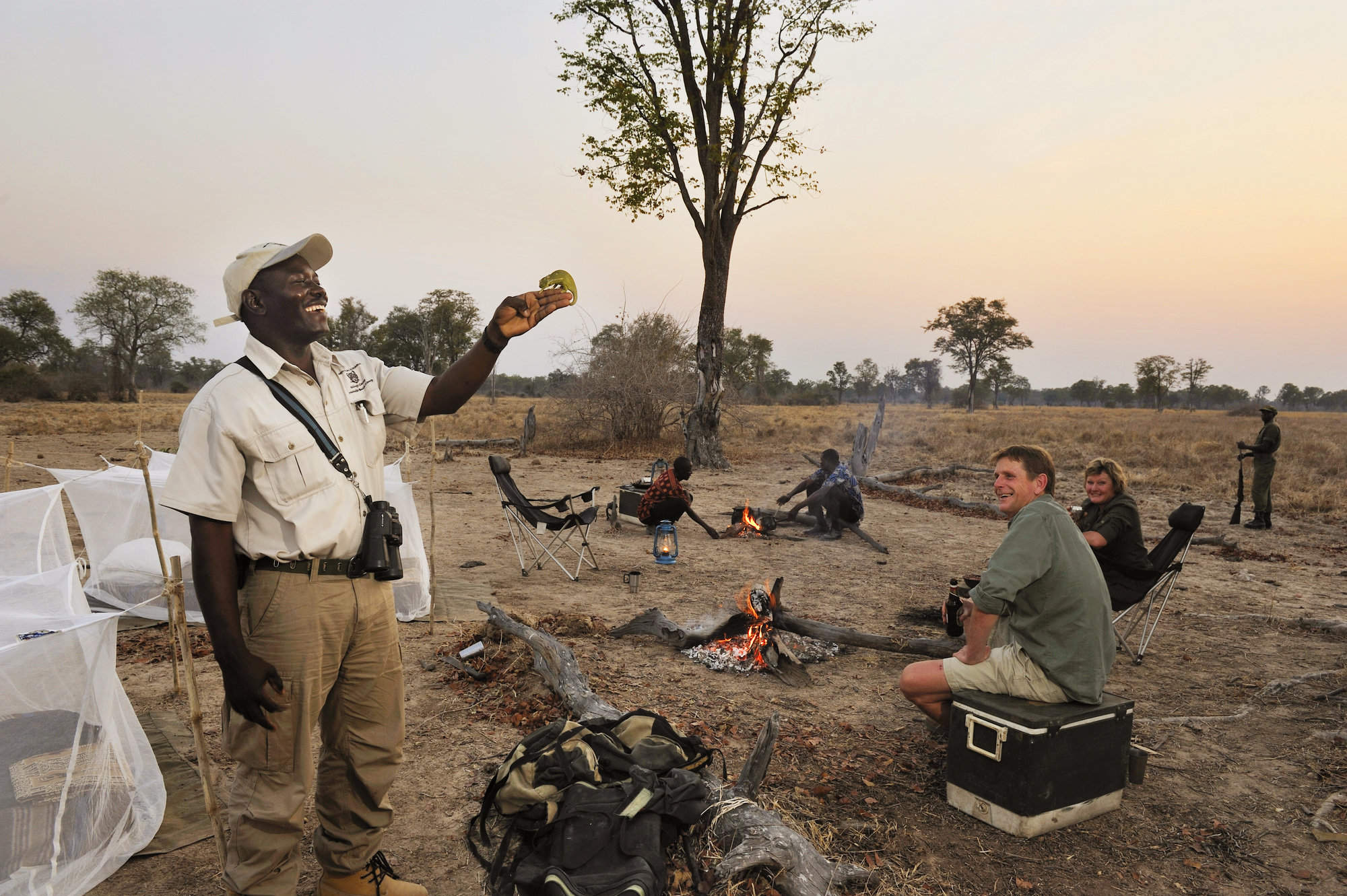
Mwamba Camp-out
The Mwamba-Camp Out allows you to have an incredibly adventurous night in the bush, sleeping under mosquito nets with activities led by some of the best guides in Zambia.
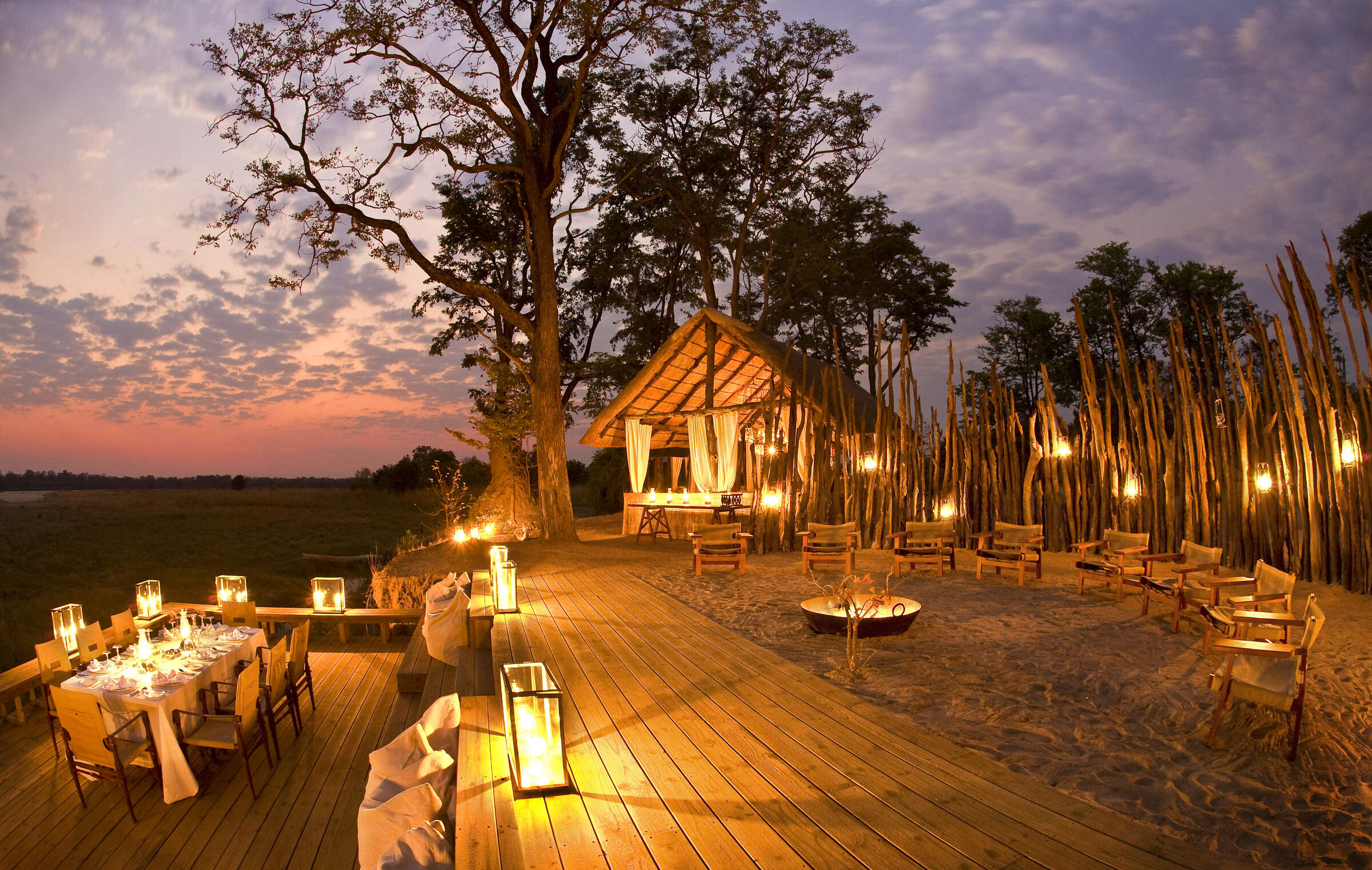
Zungulila
Zungulila is a small, comfortable tented bushcamp with an emphasis on walking safaris, in the remote southern section of the South Luangwa.
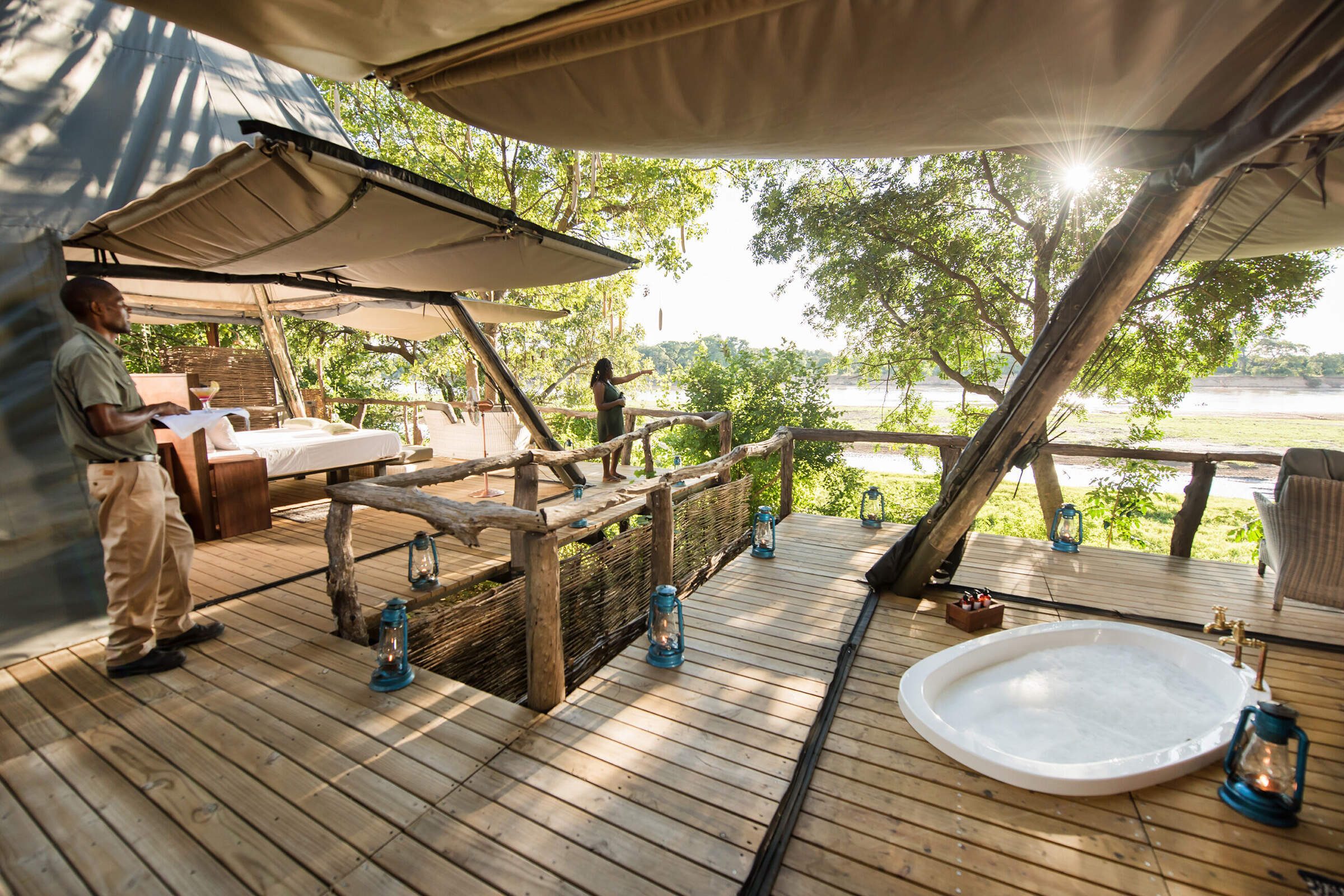
Shawa Luangwa
Opened in June 2021, Shawa Luangwa Camp is a small, intimate and rustic camp, with a good location in a remote section of the South Luangwa National Park.
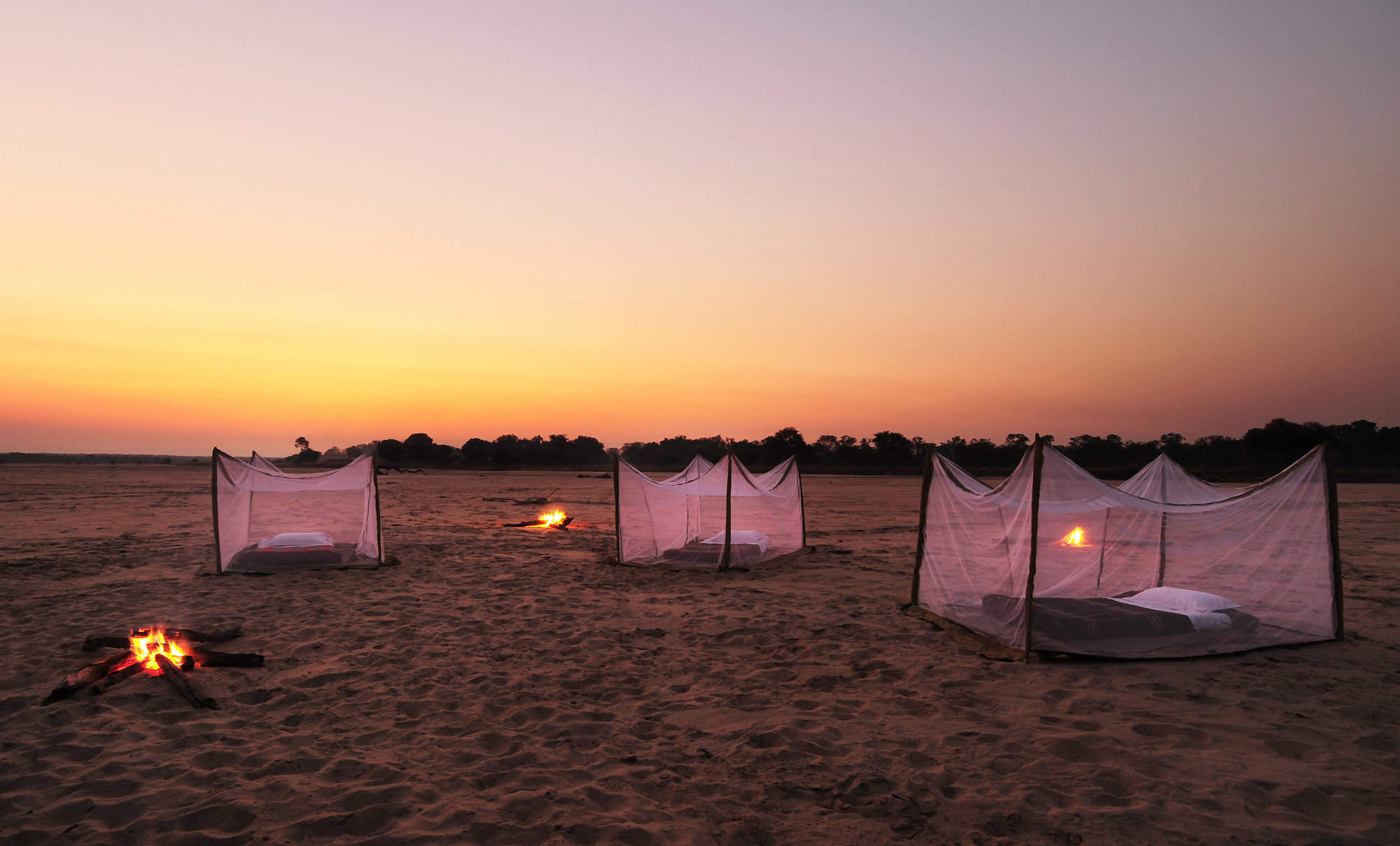
Luwi Riverbed Sleepout
For an adventurous night in South Luangwa National Park, come and sleep out in the bush, around a campfire, with an experienced guide and game scout.
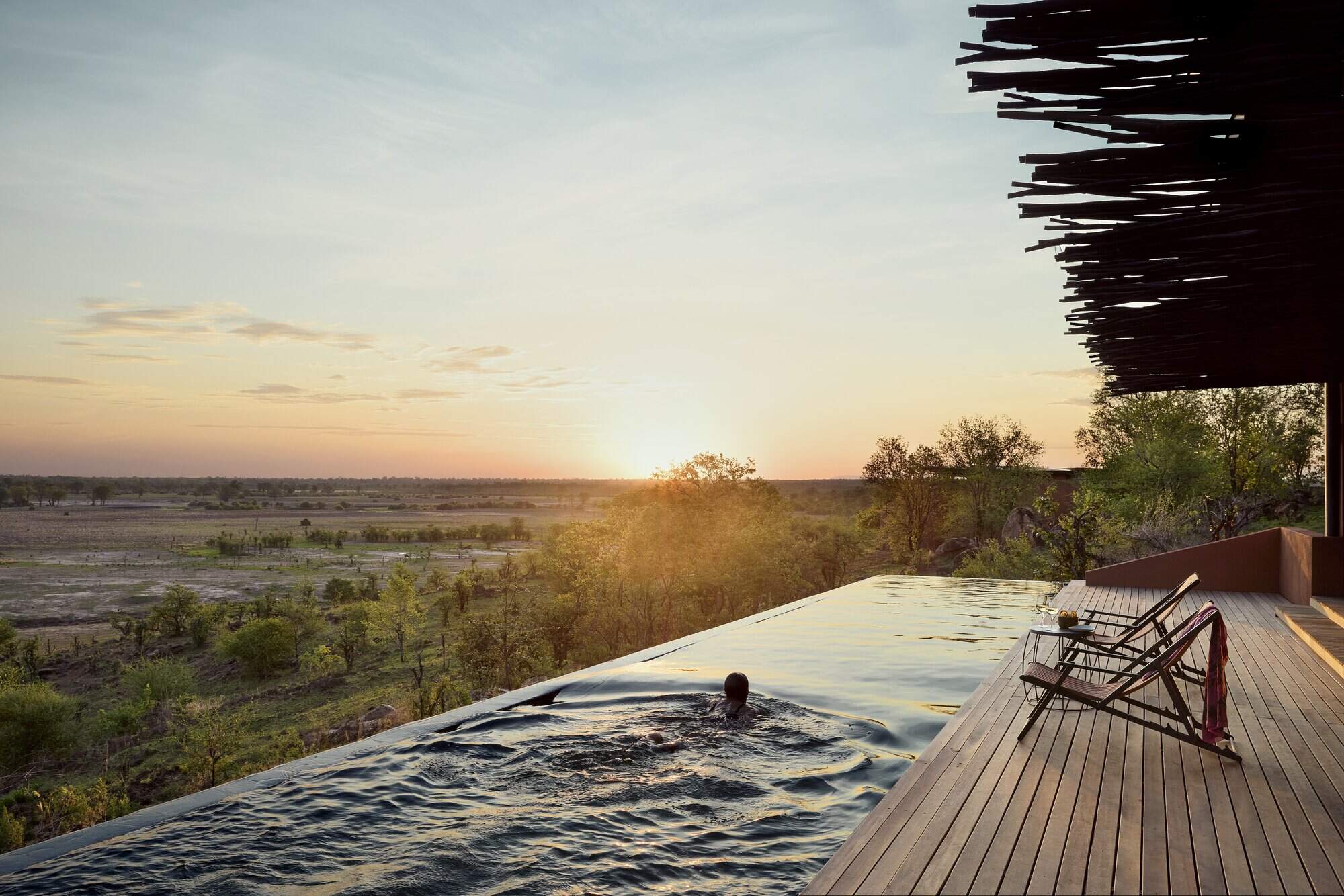
Chichele Lodge
Currently in the final stages of an extensive rebuild, Chichele Presidential Lodge stands high within the park, with superb views, and is due to reopen in early 2025.
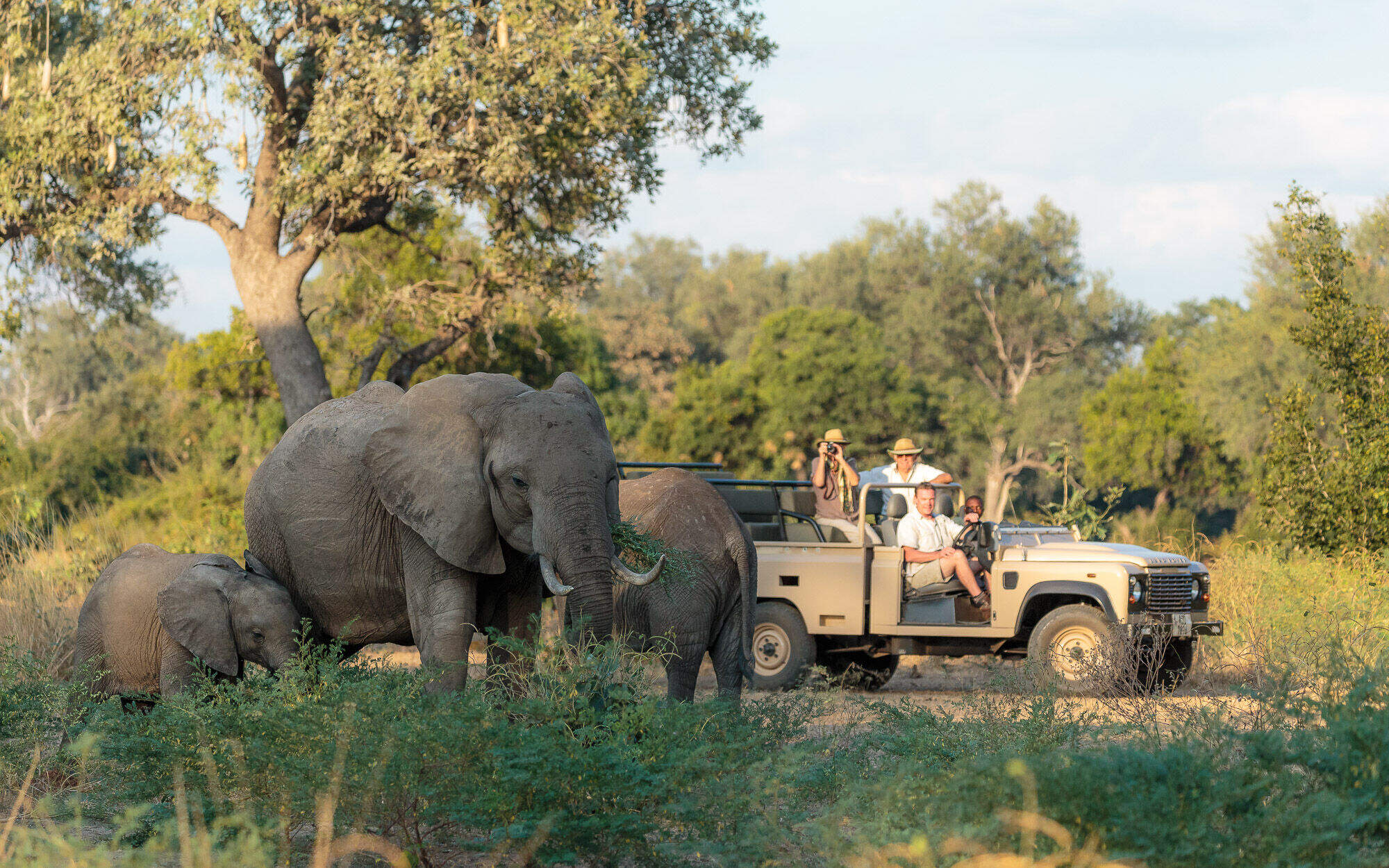
Nkonzi Camp
A simple and rustic bush camp, Nkonzi has a strong focus on walking safaris in this remote section of Zambia’s South Luangwa National Park.
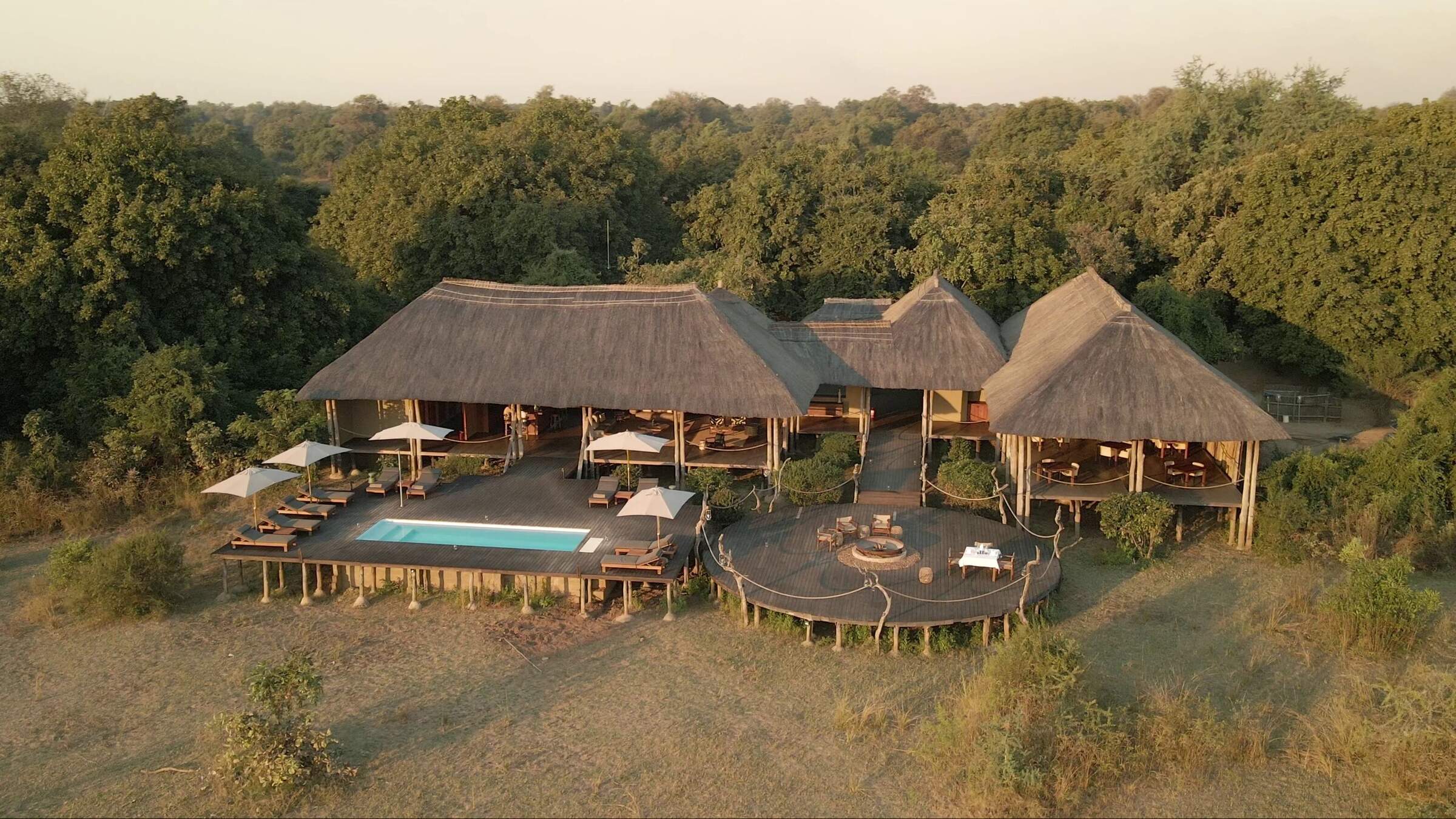
Chikunto
Chikunto Safari Lodge is a more traditional property in the South Luangwa National Park, sitting on a peninsula of land created by the meandering Luangwa River.
When to go to South Luangwa National Park
Our month by month guide: What it's like to visit Tafika in South Luangwa National Park
Jan
Feb
Mar
Apr
May
Jun
Jul
Aug
Sep
Oct
Nov
Dec
South Luangwa National Park in January
January marks the height of the wet season in South Luangwa. Expect frequent downpours, often lasting a few hours, with intermittent sunny periods. The mercury regularly climbs above 30°C, accompanied by high humidity. The park's landscape is verdant and lush, with crystal-clear air.
However, the abundance of water causes most larger animals to disperse, and the thick vegetation can hinder game viewing. Walking safaris are largely impractical during this time. Migratory birds, many in breeding plumage, boost the area's avian diversity. Most lodges close and the few that remain open offer their lowest rates. Only the central network of all-weather roads is reliably passable for 4WD safaris. Low numbers of visitors ensuring a tranquil park experience for those who do visit.
- Wet season peak, frequent showers
- Most lodges and all bush-camps are closed
- Lush vegetation, ideal for photography
- Large wildlife is scattered, can be challenging to spot
- Few tourists, budget-friendly rates
Our view
This is not a great time to visit
Weather in January
South Luangwa National Park in February
February continues the ‘green season’ trend in South Luangwa National Park, with impressive thunderstorms delivering short bursts of rain most days, punctuated by clear skies. The park remains awash with water, affecting wildlife distribution and lodge operations.
Dense vegetation limits game viewing opportunities on safari and walking safaris aren’t usually possible. However, the swollen Luangwa River allows for unique boating experiences unavailable during drier months. Despite challenging conditions, patient visitors may be rewarded with sightings of animals caring for their young. The handful of operational lodges maintain low rates, and the park sees few visitors during this period.
- Continued wet season, regular downpours
- All bush-camps and most lodges are closed
- Verdant scenery, photogenic landscapes
- Game viewing challenging due to thick foliage
- Low visitor numbers, economical pricing
Our view
This is not a great time to visit
Weather in February
South Luangwa National Park in March
March signals the tail end of South Luangwa's rainy season, with heavy showers still frequent. Water levels peak, so driving off the park’s all-weather road network remains challenging. Daytime temperatures consistently exceed 30°C, with rain-induced humidity remaining high.
Most lodges are still closed, and thick vegetation continues to impact game viewing and walking safaris. However, this period can offer exceptional sightings of animals with their offspring, and predator activity often increases. Wild dogs have historically been particularly active in the park during this time. The combination of clear air and increasingly blue skies provides excellent photographic opportunities. Birdwatching remains superb as migratory species prepare for their winter journey.
- Wet season persists, intermittent rain
- Many lodges remain closed
- Abundant greenery, picturesque settings
- Young animals plentiful, but hard to see
- Minimal crowds, cost-effective travel
Our view
This is not a great time to visit
Weather in March
South Luangwa National Park in April
April represents a transitional period in South Luangwa National Park as the rains shift from intense downpours to lighter, less frequent showers. The park's scenery remains incredibly green and vibrant, though larger wildlife can be harder to spot on safaris.
Some lodges begin to reopen while seasonal bushcamps remain closed as they prepare for the upcoming dry season. The Luangwa River reaches often its highest level in April, creating a spectacular sight. Despite the challenges, this period can offer unique experiences for those willing to brave the unpredictable conditions – and accept a greatly reduced choice of places to stay.
- Wet season waning, occasional showers
- Some lodges begin reopening
- Landscape still lush, great for photographers
- Wildlife viewing slowly improving
- Few visitors, attractive off-season rates
Our view
This is not a great time to visit
Weather in April
South Luangwa National Park in May
May is a lovely month; it typically heralds the start of the dry season in South Luangwa. While occasional showers may occur, most days are clear and sunny. As winter approaches, temperatures begin to drop, with daytime highs around 26°C.
The drying landscape improves access within the park, and most lodges reopen. Some standing water remains, but game viewing noticeably improves as the vegetation thins out. The clear air continues to benefit photographers. Late May is very popular among the Luangwa’s ‘safari regulars’ who seek to capitalise on good weather, improved wildlife sightings, newly-opened camps (including some seasonal bush-camps) and the final weeks of low-season rates at many lodges.
- Dry season onset, clearer skies
- Most lodges and some bush-camps operational
- Vegetation still green, crisp air
- Game viewing conditions improving
- Last month for lower accommodation prices
Our view
A good time to visit, with pros & cons
Weather in May
South Luangwa National Park in June
June in South Luangwa National Park is characterised by virtually rainless days and abundant sunshine. Humidity levels plummet, and winter's approach brings cooler temperatures, with nighttime lows around 10°C and daytime highs of 25°C.
The landscape remains lush, but the thinning vegetation significantly enhances visibility for game viewing, the conditions are ideal for walking safaris. All the lodges and bushcamps in the park are operational by early June. While some offer shoulder season rates, others are already running with high-season pricing. Wildlife begins to concentrate around water sources, setting the stage for excellent game viewing in the coming months.
- Consistently sunny, cooler nights
- All South Luangwa lodges open
- Wildlife sightings becoming more frequent
- Ideal conditions for walking safaris
- Viewing of the Victoria Falls at its best
Our view
A very good time to visit
Weather in June
South Luangwa National Park in July
As the dry season progresses in South Luangwa, July sees vegetation and grasses dying back, with water becoming increasingly scarce. Wildlife congregates around remaining water sources, most notably along the Luangwa River, leading to excellent game viewing opportunities.
July marks the heart of winter, with daytime temperatures in the 20s Celsius, whilst nighttime lows can drop to single digits. Early morning and late evening game drives can be particularly chilly, with lodges often providing blankets and hot water bottles. Bring your hats, coats and gloves! Visitor numbers rise significantly, and space at popular small camps can become limited. Nearly all properties now charge their highest rates.
- Warm days, chilly evenings
- Game viewing notably improved
- Excellent visibility for walking safaris
- High season prices for most camps and lodges
- Comfortable daytime temperatures
Our view
A very good time to visit
Weather in July
South Luangwa National Park in August
August in the national park offers some of the year's best game viewing opportunities. South Luangwa’s vegetation has largely died back, and wildlife clusters around remaining water sources.
Rain is extremely unlikely, with sunny days largely guaranteed, though a haze may sometimes appear on the horizon due to dust and smoke in the air. Nighttime temperatures can dip below 5°C, but daytime highs reach the 20s Celsius. Warm clothing is essential for morning and evening drives. This is one of the most popular months to visit the park for a safari, with lodges and camps charging peak rates and often booking up far in advance.
- Very dry warm days and cold nights
- Prime wildlife viewing near water sources
- Perfect weather for walking safaris
- Peak season means highest prices
- Some haze may affect photography
Our view
Fantastic: the very best time to visit
Weather in August
South Luangwa National Park in September
September is arguably the very best time to visit South Luangwa National Park. It probably hasn’t rained for many months, humidity is low, and temperatures are just beginning to climb.
Mornings are more comfortable for 4WD safaris, rising to daytime typical highs in the low 30s Celsius. Water scarcity forces the wildlife to congregate around remaining sources, particularly around the Luangwa River, where most of the camps and lodges are situated. There high game densities lead to increased chances of inter-species interactions. It’s peak season for lodges and camps charge which are often fully booked. A little haze may affect long-distance views and photography. The Luangwa River's water levels continue to drop, concentrating hippos and crocodiles life in the remaining stretches.
- Dry and hot, clear skies
- Exceptional month for wildlife observation
- Landscape sometimes hazy due to dust and smoke
- Peak season, lodges often fully booked
- Higher prices for accommodation
Our view
Fantastic: the very best time to visit
Weather in September
South Luangwa National Park in October
October sees the dry season peak in South Luangwa at its most intense, with the landscape increasing parched. Occasional showers may occur as the promise of rain approaches. Temperatures can soar above 40°C during the day, rarely dropping below 20°C at night.
This heat can be draining, so walking safaris will set off early in the morning to beat the heat and sitting in an open 4WD on safaris can feel like facing a large hair-drier. Heat-haze and smoke may obscure the horizon as the Luangwa River becomes a series of pools, crowded with hippos and crocodiles. Other wildlife cautiously approaches these water sources, leading to thrilling predator-prey interactions. Game viewing is at its absolute best with the best chance of witnessing hunts.
- Optimal wildlife viewing conditions
- Very hot days and nights
- Dusty, hazy atmosphere is challenging for photos
- Some lodges start lowering their rates
- Less crowded than previous months
Our view
A very good time to visit
Weather in October
South Luangwa National Park in November
November typically witnesses the end of the dry season in South Luangwa. While the onset of rains is unpredictable, temperatures remain consistently high and humidity builds as the wet season approaches.
Early November may still be dry, but spectacular thunderstorms usually arrive, often later in the month, triggering rapid green growth when they do come – and an explosion of life from insects and smaller animals. Everything seems to come to life! When pools of water becomes more readily available away from the Luangwa River the wildlife quickly disperses. Some camps and all the seasonal bush-camps camps close; those that remain open reduce their rates. The rains quickly clear the air of dust and smoke, improving visibility and photographic conditions.
- Unpredictable month: depends on the rains
- Hot and humid – then the set season begins
- Wildlife dispersing as vegetation thickens
- Lower accommodation rates, fewer tourists
- Improved conditions for landscape photography
Our view
A good time to visit, with pros & cons
Weather in November
South Luangwa National Park in December
December usually marks the first full month of South Luangwa's wet season. Heavy thunderstorms become frequent, interspersed with sunny intervals. Daytime temperatures often exceed 30°C, accompanied by high humidity.
The rainfall transforms the landscape, encouraging lush vegetation growth. It’s a time renewal when insects, birds and smaller wildlife abound. While the larger species of wildlife remains in the park, wildlife viewing becomes more challenging due to the thick greenery and dispersed animal populations. Many lodges and all seasonal bush-camps are now closed as access to the park’s outlying areas becomes difficult. The few lodges that remain open offer lower rates and see few visitors. The rains clear the air, restoring vibrant blue skies and crystal-clear air which delights photographers.
- Rainy season in full swing
- Most lodges closed or offering low rates
- Wildlife harder to spot in thick vegetation
- Few visitors, budget-friendly period
- Lush green scenery, very photogenic landscapes
Our view
This is not a great time to visit
Weather in December

Looking for inspiration on where to travel next?
Visit our trip chooser to explore your options and find inspiration for your perfect African adventure
Inspire me